
Welcome to
Relics Page
10:
B17 42-30156


Relics Page 1: Arnhem Relics
Relics Page 2: Seafire MKIII NN618
Relics
Relics Page 3: Merlin Relics from a Lancaster
Relics Page 4: Stirling Relics
Relics
Page 5:
Hawker Relics
Relics Page 6: Various Relics
Relics Page 7 Spitfire Relics
Relics
Page 8
Mosquito Relics
Relics Page
9: Blenheim Relics
Relics Page 10 B17 42-30156
This section
contains 100% genuine relics of the great aerial conflict Second
World War including the Battle of Britain. We have added this
section due to numerous enquires for this sort of personal history.
All items will have been
legally recovered and
supported with
authentification. Many
parts listed in other sections of the site can be linked to the
correct aircraft types. The following pieces listed on these pages
are from aircraft crash sites and details of the, Squadron, Pilot
,exact date, combat details, aircraft type, and serial number. In
most cases if not already supplied it will be possible for a small
fee to receive copies of the Squadron Operational record book and
official combat reports which are available from the record office
at Kew. We have found that its allot more economical to employ the
services of a professional
researcher. Its costs
around £50 to locate and take copies of original documents.
Obviously these are crash relics and will not be in a usable
condition, its the history that counts and it is possible for
example to build up a collection of a
Battle of Britain items
from start of the battle until the end . Spitfire Spares does not
support the recovery of wreckage from anything classified as a War
grave or any recovery not fully compliant with the current
legislation. Respect for
the Brave aircrew is paramount
and we will not offer or purchase any personal items recovered from
aircrew killed in action serving their Country.

Click
on the picture for Rocket relics
B17 42-30156
Hustling Sue
Every part in
Relics comes with a certificate listing the History as far as we
know it with every part purchased.
The following parts were
purchased on one of our trips to Holland
see this link
they sat in the store
until recently rediscovered. It took many hours of research and help
from lots of experts on the B17 to identify as many of the parts
as possible.
This aircraft crashed
and parts were recovered in
Vriescheloo which
is located in Groningen (province)
Netherlands.
It has an
absolutely incredible story the pure courage of its crew and an
eye opening incite into what those brave men went through.
Delivered Cheyenne 17/4/43; Smoky Hill 24/4/43;
Presque Is 16/5/43; Assigned 423BS/306BG [RD-Z] Thurleigh
22/6/43; Missing in Action Hanover 26/7/43 with Wes Courson,
Co-pilot: Roy Bronson, Navigator: Ted Grezlak, Bombardier: Henry
Lynch, Flight engineer/top turret gunner: John Champion, Waist
gunner: Cedric White,Tail gunner: Bill Lamb all taken as 7
Prisoners of War. Radio Operator: Bill Dayton, Ball turret
gunner: Dock Thomas, Waist gunner: Bob Stevens{wia & drowned in
River Ems. Three Killed in Action. Flak over Frisian took off
vertical stabiliser, crashed Hofkamp Farm, Vriescheloo, Hol.
Missing Air Crew Report 127.
On a mission to Hannover. Lt. Wesley Courson's plane from the
423rd of the 306 BG. A/C damaged by AAA fire inbound to target,
made it to target, fell out of formation and was attacked by
fighters near border on the way back.
I found information that Hustling Sue was shot down by
Lieutenant Gerhard Dittmann of the 12./NJG 1 (flying a Bf 110
G-4 from Leeuwarden airfield) or by Major Anton Mader of the
Stab/JG 11 (flying a Bf 109 G-6 from Jever airfield) at
Vriescheloo, the Netherlands, however according to the Pilots
testimony it would seems they were attacked by multiple FW 190s.
The Radio operator was killed by fighter fire on board, all
other crew bailed out of burning aircraft.
2 crew members found dead from wounds, still in their
parachutes, others captured that day and sent to Dulag Luft. See
USAAF Missing Air Crew Report # 127.
This is from
the Pilots own words and highlights just how brutal these
missions could be along with the immense bravery of the crews.
2nd Lt. Wesley E. Courson
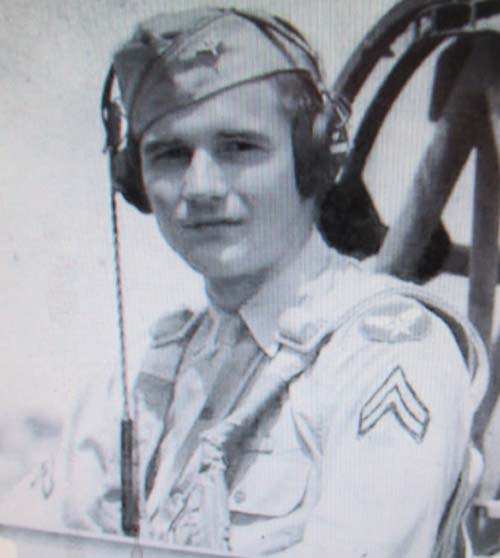
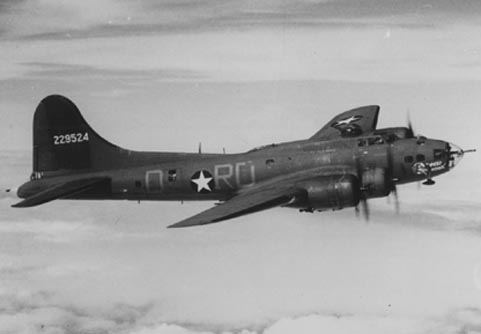
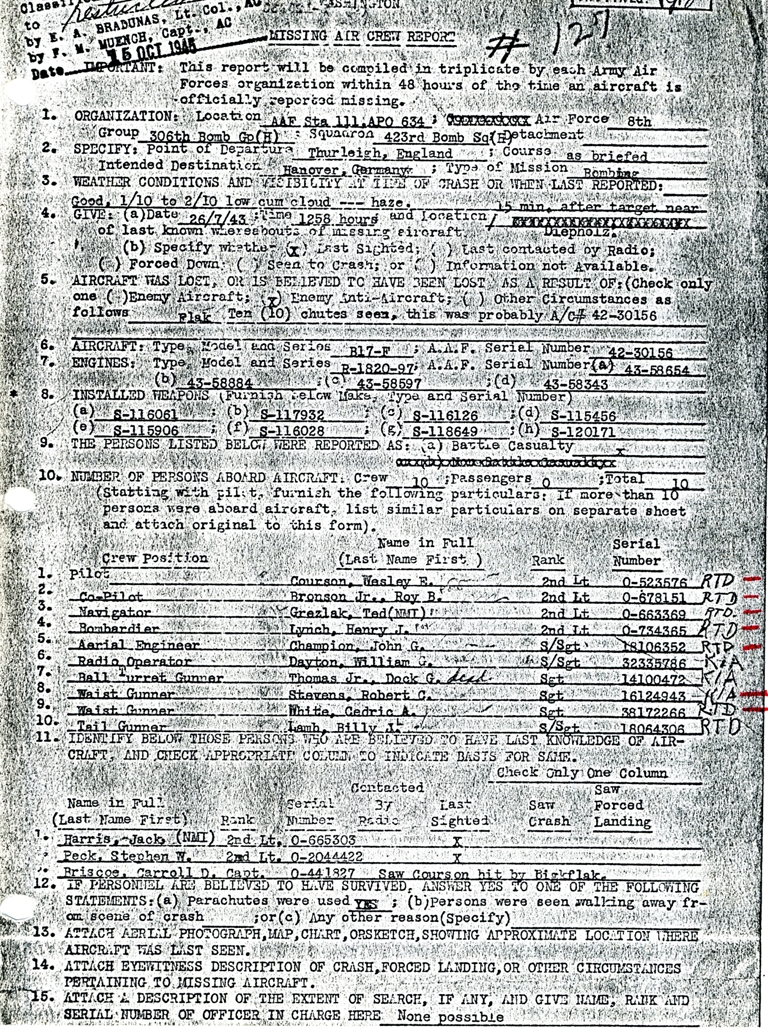
Above middle
not Hustling Sue but is from 423 Squadron. Above right the
official missing crew report 127. Click on the image to enlarge
it.
After basic training, Courson trained as an aircraft mechanic at
several bases. During that time, he applied for flight school
and was accepted. Upon completion of basic, primary and advanced
flight training, Courson was given his pilot’s wings and
commissioned a 2nd Lieutenant.
He
was sent to Hendricks Field at Sebring, Florida, where he
trained to fly the B-17 bomber.
Learning
to fly the B-17 took him all across the country for several
months. In May 1943, he was given a crew and orders to prepare
for a transatlantic flight to England. Upon landing in
England, Courson and his crew were assigned to the 306th Bomb
Group, 423rd Bombing Squadron.
Their first four flights into combat were fairly routine with
only minor damage to their aircraft.
Their 5th mission began on the morning of July 26, 1943.
Courson would recall later
“Our fifth mission proved to be the most and the worst. More
flak and fighter planes than all previous runs together. Higher
altitude mission at 27,500 ft. for it was a hot spot we were
hitting that day.
The submarine depot and repair installations in Hanover,
Germany.”
That mission for Courson and his B-17 crew proved to be their
last of the war. As their B-17 neared the target, Courson and
his co-pilot, Lt. Bronson, struggled to maintain control. In his
diary, Courson described their dire situation,
“The
flak looked like black clouds….suddenly, there was a resounding
explosion just beneath us.
The sound and the pressure hit our ears simultaneously and
lifted the plane with a jar. Immediately, the four superchargers
went wild, I had absolutely no control of manifold pressure,any
attempt at changing the prop pitch setting with the thought of
feathering engines one and four set up such vibration that it
was beyond structural safety. Fighting to hold in formation,
Bronson and myself were soaked in perspiration, the bomb run to
the target was an eternity.
When
the bombardier, Lt. Lynch, let the 6,000 lb. load go, we shot up
200 ft.”
Still trying to maintain their place in the formation, both
pilots were fighting the controls to maintain altitude. About
that time, the formation turned left and lowered their altitude
for the return trip to England.
That manoeuvre brought more trouble for Courson’s plane. “We
tried to come on down with them but our flaps began to rip off
and lose their effect.”
Losing
their ability to stay within the formation made them a target of
the German fighter planes.
“They had spotted us as a cripple and were moving in for the
kill. Most of the fighters were FW-190s, they were coming in
fast and hitting hard, the tail-gunner called in all shook-up,
the best I could understand was that the barrels of his guns had
been shot off, It happened faster and faster, I saw the top of
the left wing open up with at least four gaping holes
The right waist gunner called and said the 1st radio engineer
was on the radio-room floor, his whole head is blown off.” About
that time the right waist gunner was hit. Courson called for the
tail gunner to take over the waist gun.
“
I couldn’t spare the co-pilot because he had his feet against
the control column to hold it forward, without that, I couldn’t
hold against the forces. I also wanted the other officers and
men to stay at their guns and keep them hot.”
The gunners were calling out hits and claiming some kills.
Courson couldn’t verify any kills because of the confusion.
Courson was suddenly jarred by an explosion.
“I
heard the high-pitched bang of a 20mm round at the same time the
hot concussion hit the back of my head. I looked back to see the
1st engineer fall out of the top turret,I had to also look at
his handsome face that was now spurting blood from his eyes and
cheeks, but he got off the floor saying something about the
plexiglass dome blowing up in his face, I yelled to him to get
his parachute adjusted and stay where I could yell to him.
The
1st engineer asked Courson about his parachute which was located
on the top step of the catwalk. He retrieved it and helped
Courson strap it on. Courson noted, “That action on his part may
well be the reason that I was later able to get out of the
aircraft.”
The fighters were still pressing home their attack.
“They
were coming in lined-up three to five in a row and their leading
edges looked like a fireworks display, the number three engine
showed fire, we tried to blow CO2 but nothing came out, number
two engine was mostly oil and smoke, the acrid stench of burning
was everywhere. I looked back to see what was causing it and I
still don’t know what could have set the entire floor of the
radio room on fire. The tops of both wings had been chewed
up by 20mm fire, the trailing edge of the left wing was ragged
and a large piece flapped a couple of times then blew away, so
this was the way it was, no way to move' no way to go but down.”
With the intercom gone, Courson yelled to the Engineer, “Champ,
it’s time to go. I’ll be giving the three bell rings
continuously but yell to everyone to bail out, we can’t let go
of the controls so tell them to throw anyone on the floor out
and hold onto their ripcords. That was the last thing I knew
about that went on in the back."
Courson
instructed the Bombardier to destroy the Norden bombsight. He
recalled, “I could hear the .45 caliber as Lynch shot up the
bombsight and what sounded like everything else in the nose, If
the Germans hadn’t shot us down by then he would have done it
for them.”
It was now time for Courson and Bronson to bail out.
The Co-pilot went first. Fearing that the plane would fall off
to the left and go into a spin once he let go of the controls,
Courson decided to open the bomb-bay doors.
“That
was the biggest hole I could think of to go through. I didn’t
know the door controls and locks had been shot away and that
they would be slamming open and shut in the wind and they were
very heavy doors.”
He
decided to risk it anyway and jump when the doors offered an
opening.
As
he jumped, the plane did a sharp roll that caused him to be
struck as he went through the doors. Courson recalled,
“They
knocked the living hell out of me. I knew I was hurt and I knew
I was falling.
There was lots of wind flurry and whistling sounds and body
numbness that had pain mixed with it.
I
fell forever. When the parachute caught the wind in a jolting
wallop it knocked me out cold. At some point I became aware that
I was being escorted down by two circling FW-190s.
I
could see the earth looming larger…it met me hard and didn’t
give an inch.
I
am lucky to have come through that beating with only a
dislocated right knee, torn lateral ligaments in that area, and
possibly a hairline crack in the pelvic region.” As Courson lay
there in confusion, still in lots of pain, he noticed a man
standing nearby.
Courson remembered the man saying “Netherlands,” which gave him
some hope. That hope was short-lived when five German Border
Guards arrived.
|
Click on the
pictures to enlarge them.
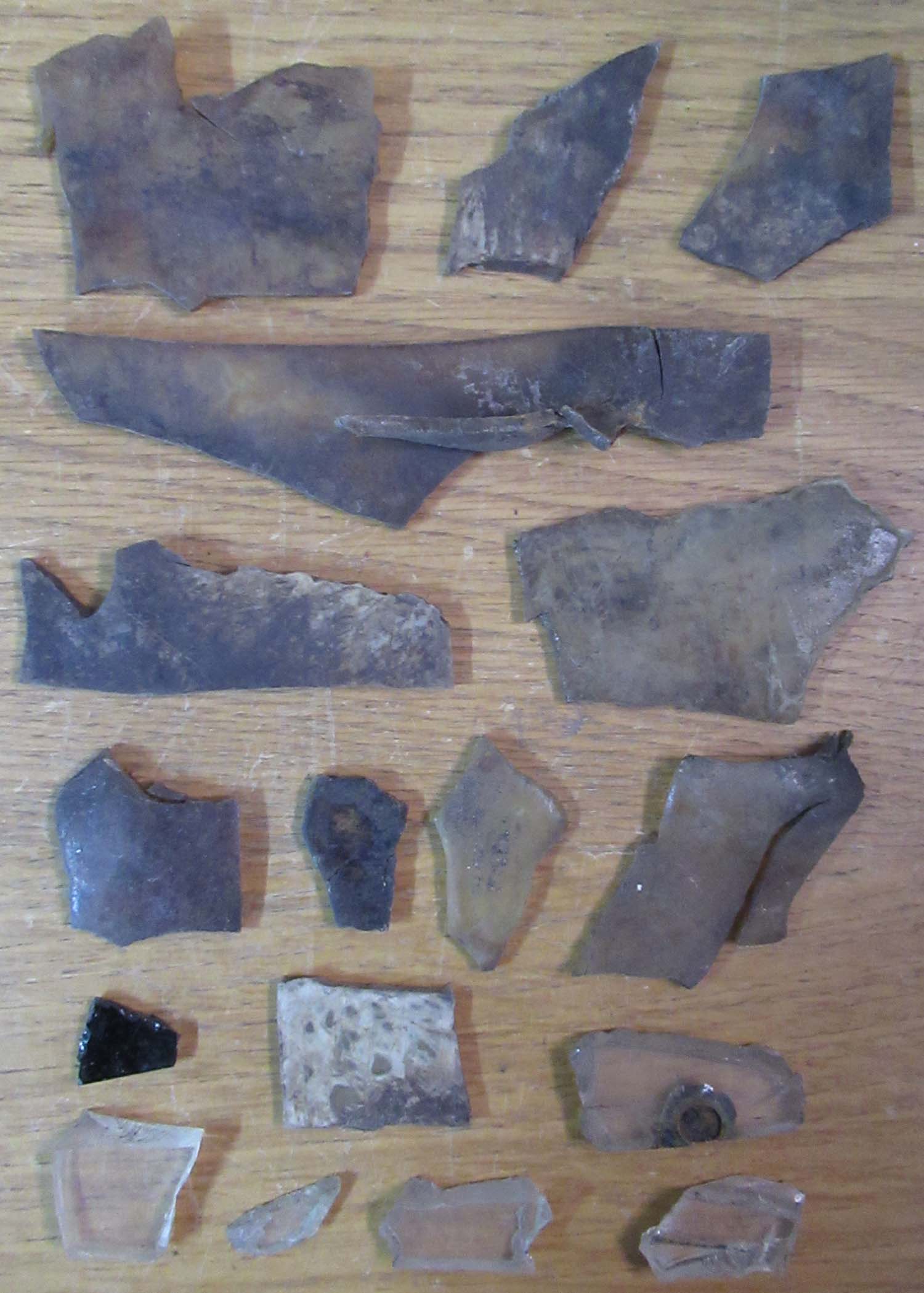
|
B17 Hustling Sue
perspex (nos 27 pg 10 Relics )
This is a
collection of perspex from Hustling Sue you will receive
what's in the pictures.
Click on the
pictures to enlarge them.
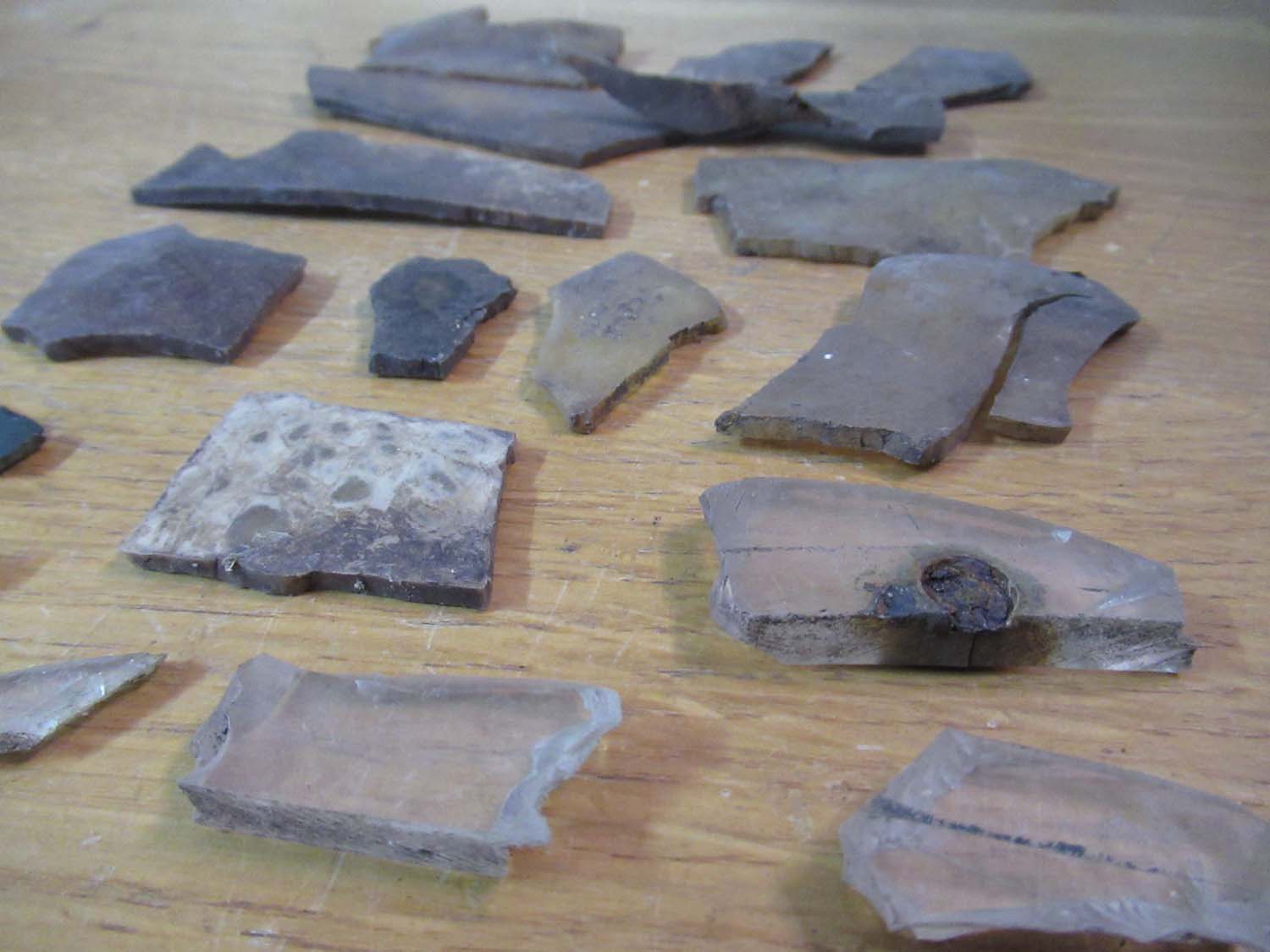
Out of stock more wanted
please contact me
` |
|
Click on the
pictures to enlarge them.
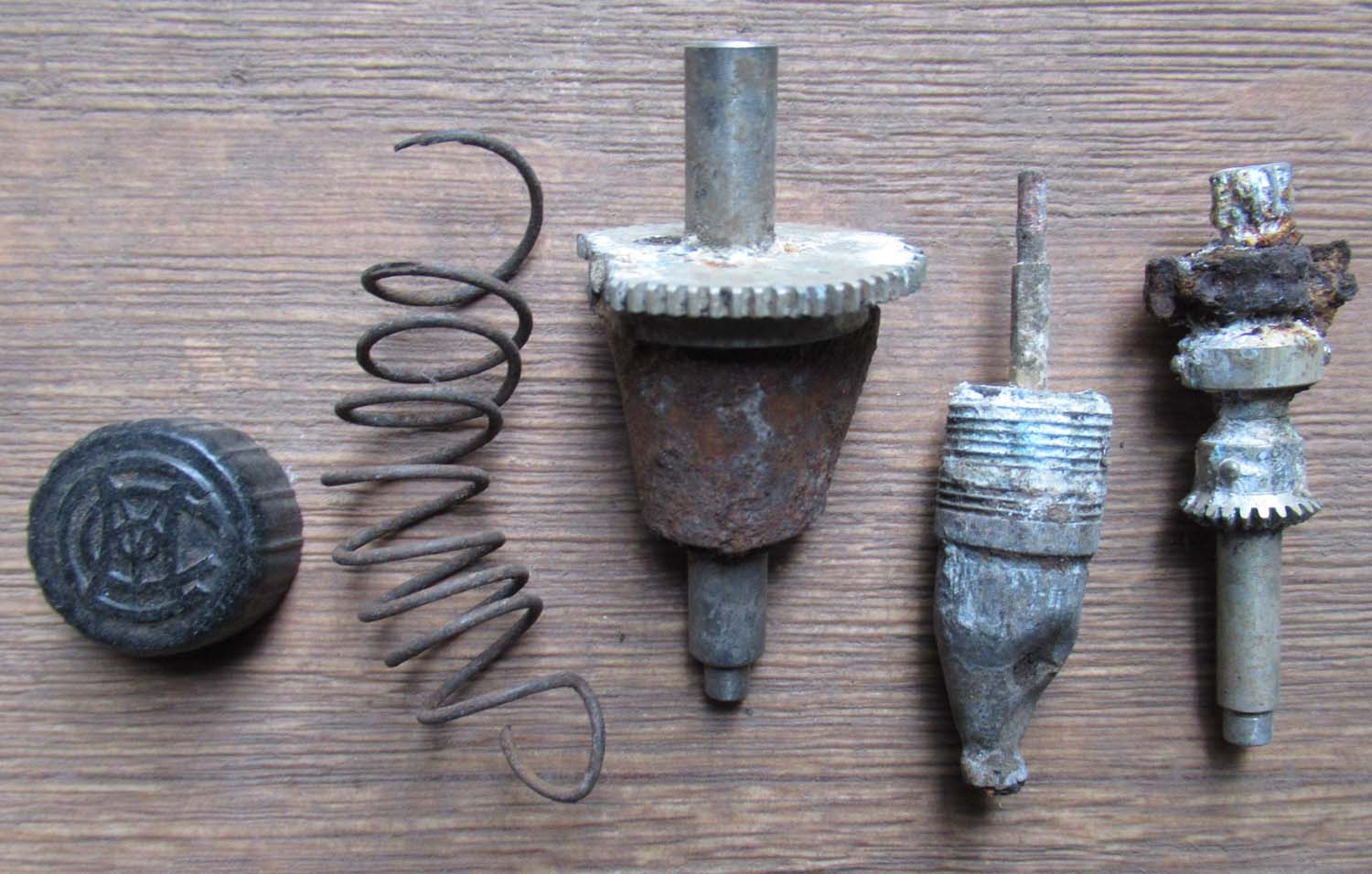
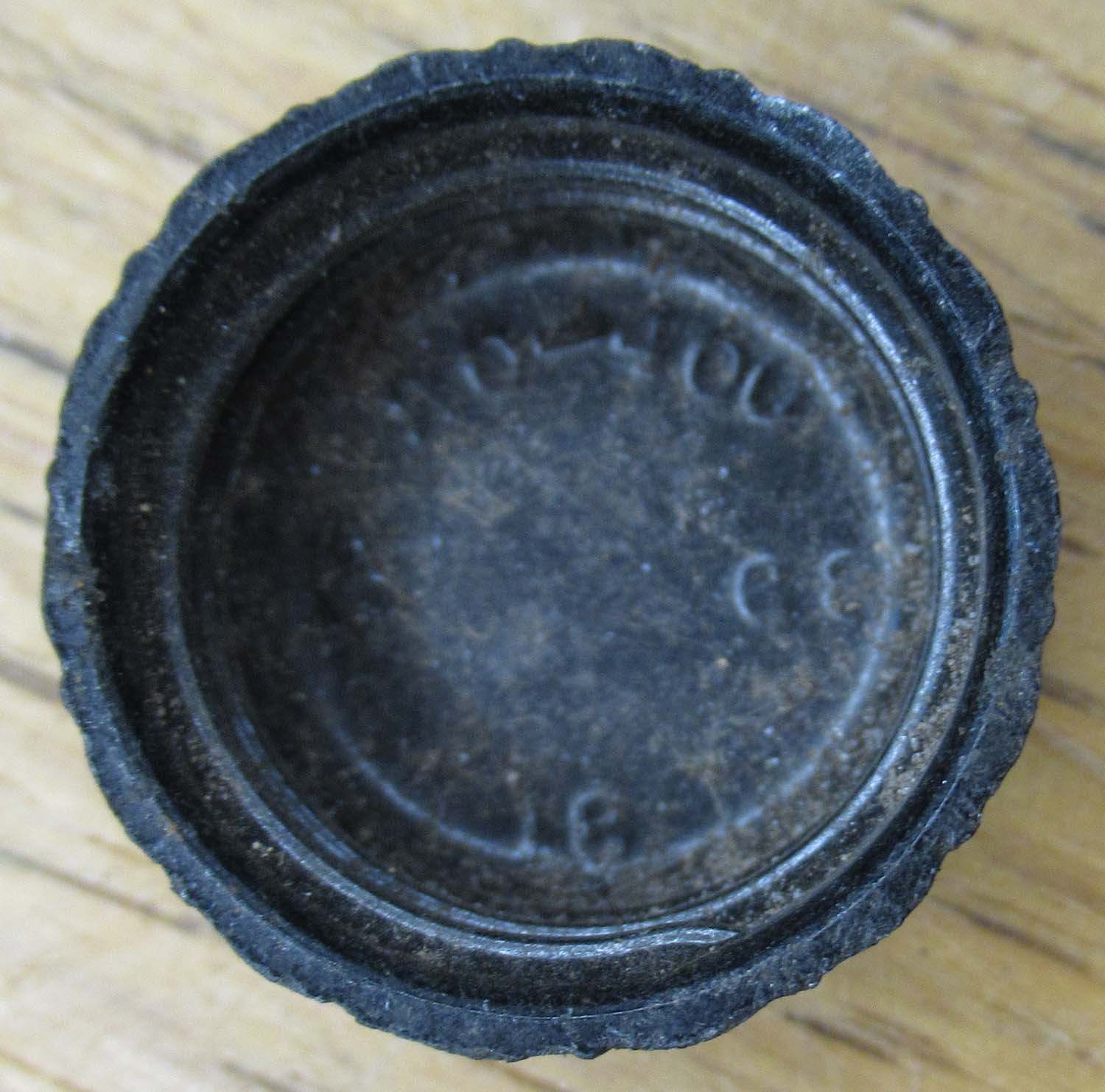
|
B17 Hustling Sue
parts (nos 26 pg 10 Relics )
This is a
collection of parts from Hustling Sue you will receive
what's in the pictures, these are probably Gunsight or
bombsight parts..
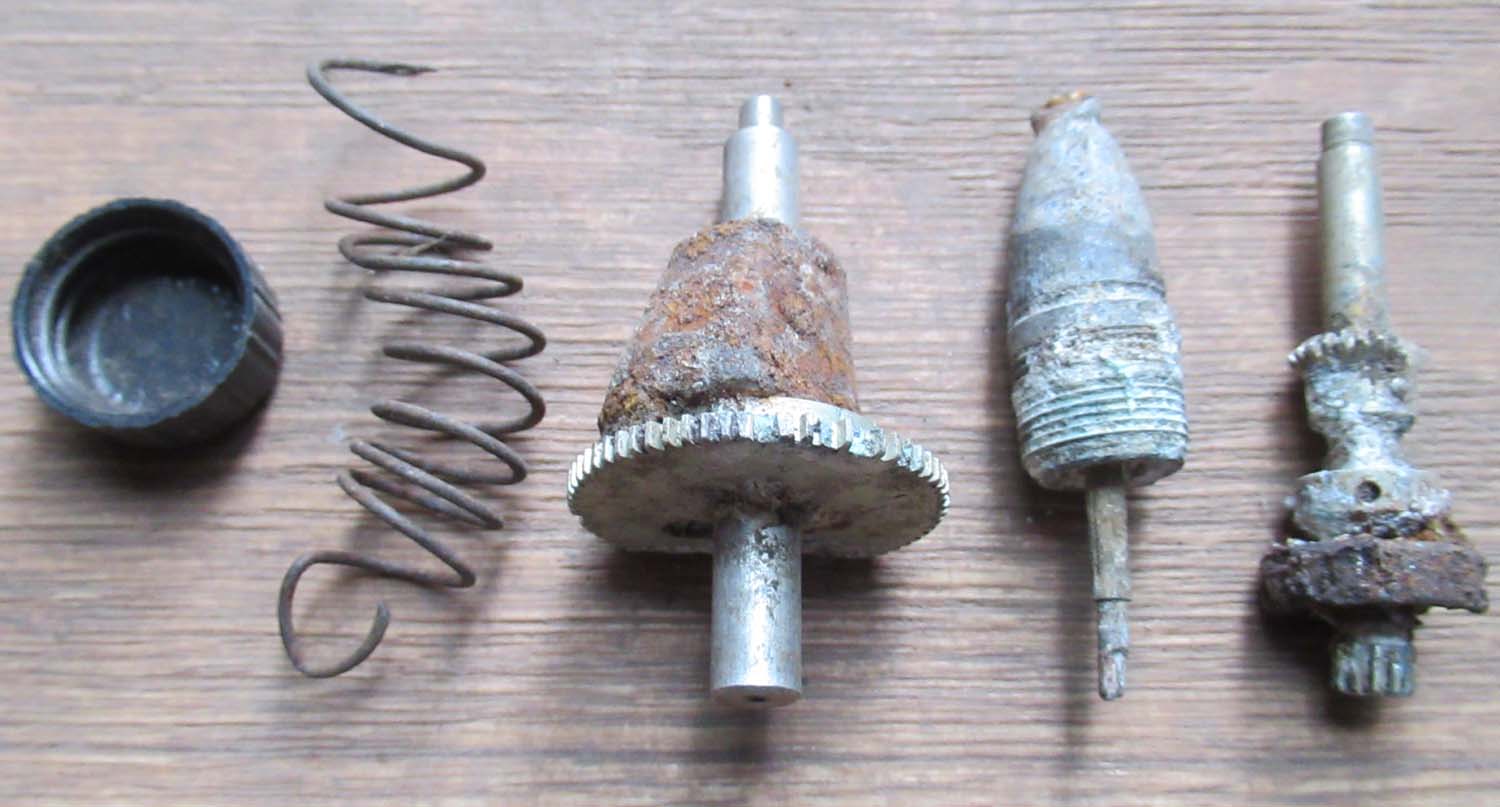
Click on the
pictures to enlarge them.
£40


` |
|
Click on the
pictures to enlarge them.
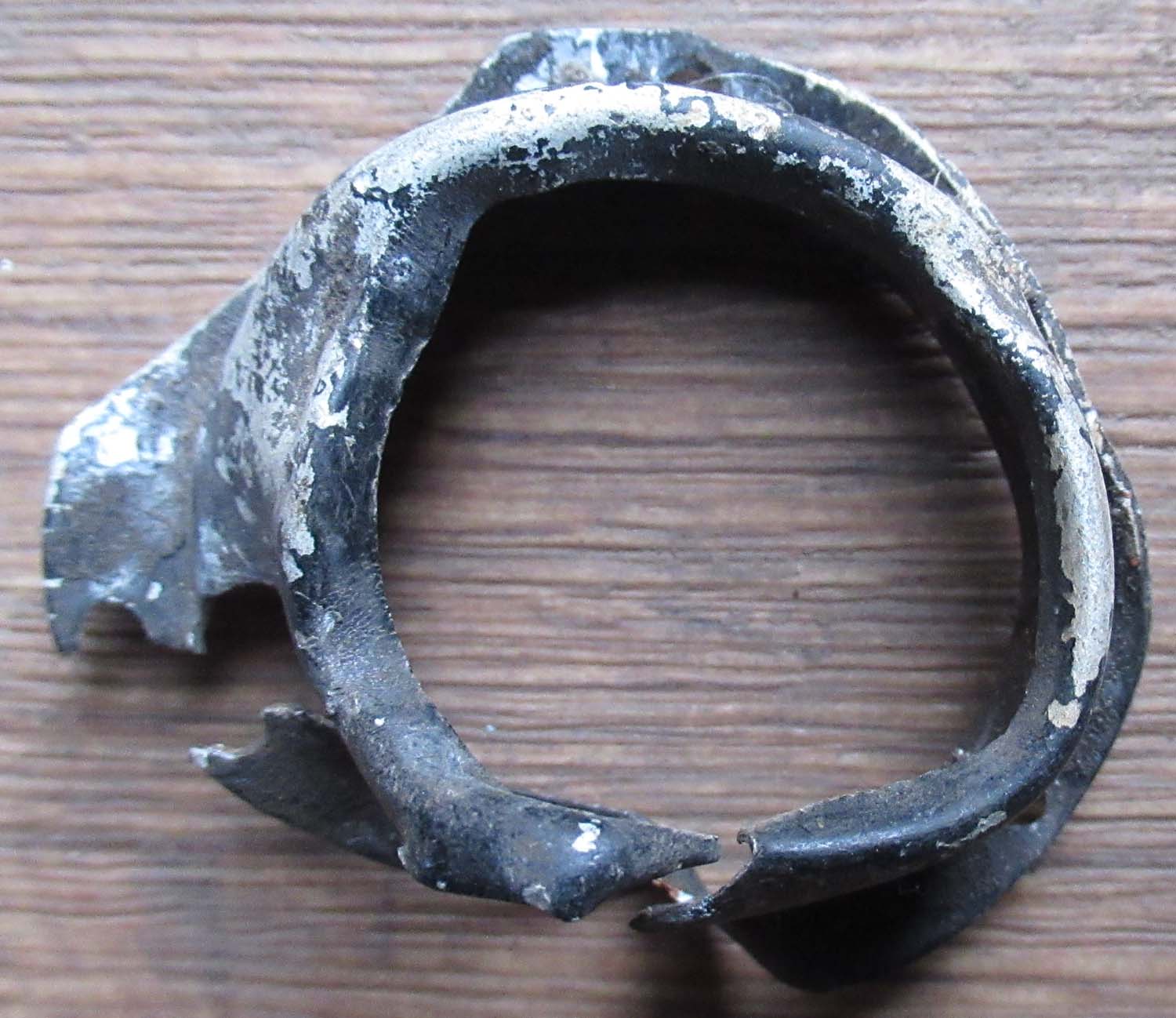

|
B17 Hustling Sue piece (nos 25 pg 10 Relics )
This is a
part from Hustling Sue you will receive
what's in the picture.
Click on the
pictures to enlarge them.
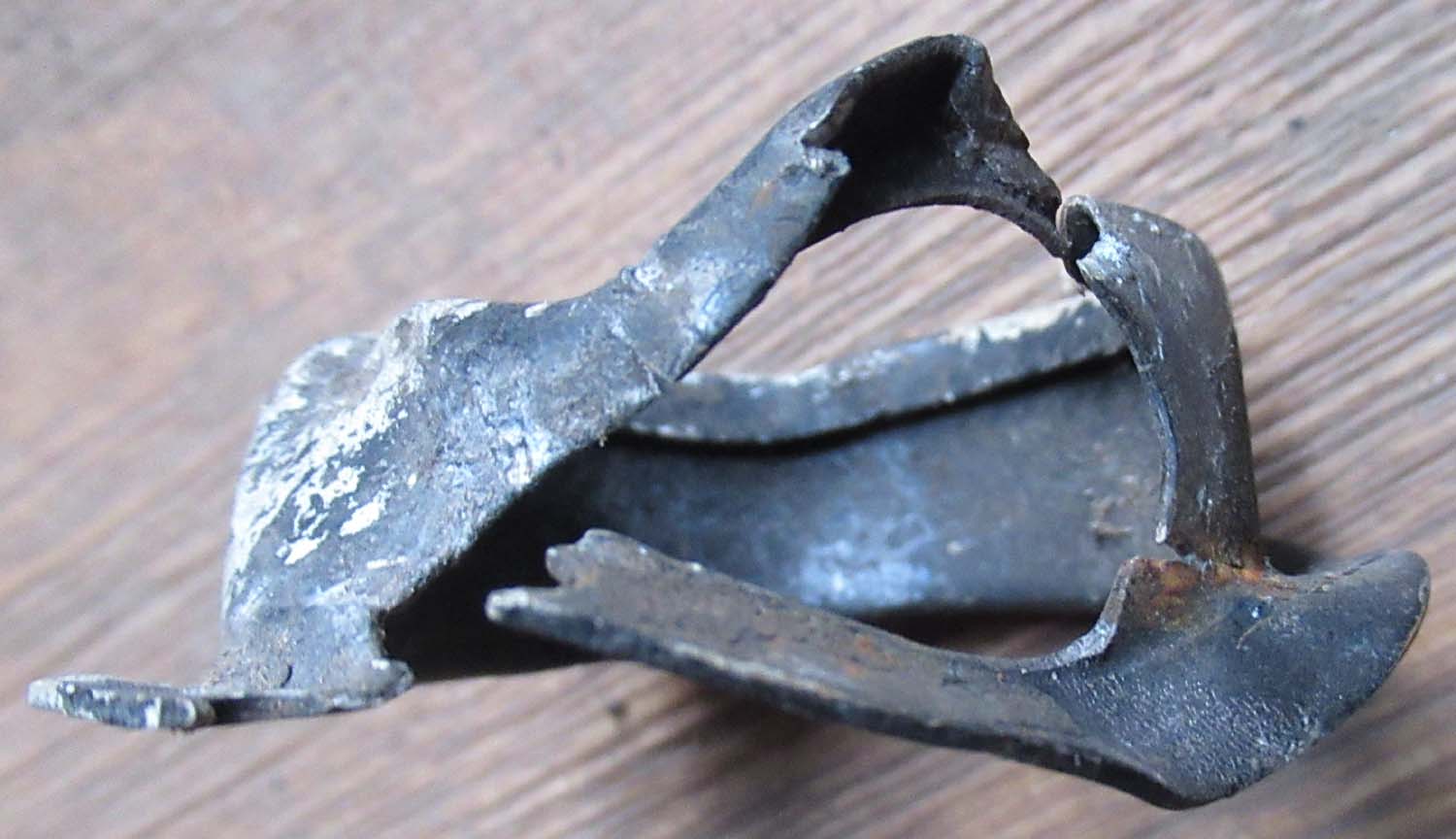
£25


` |
|
Click on the
pictures to enlarge them.
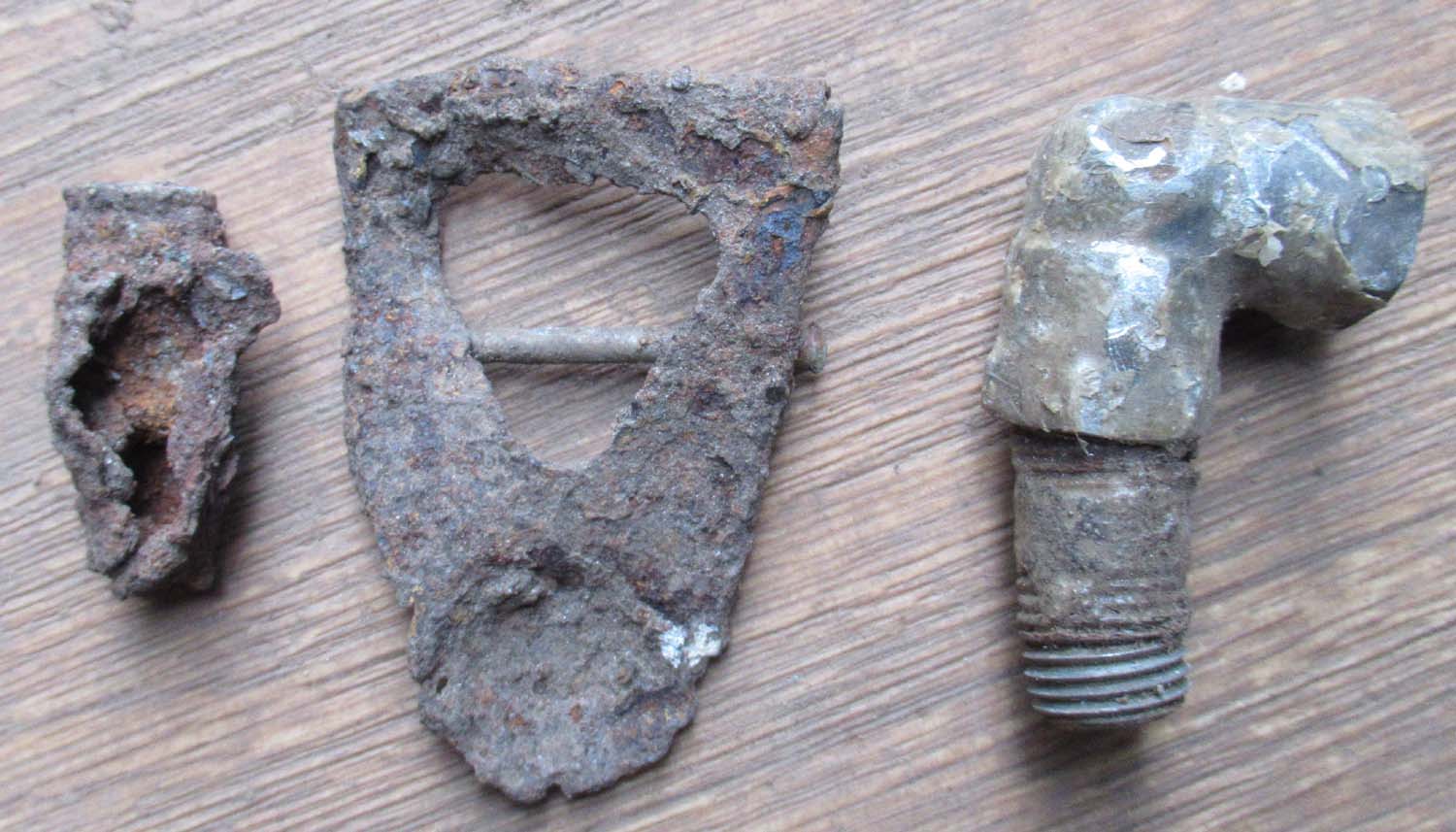
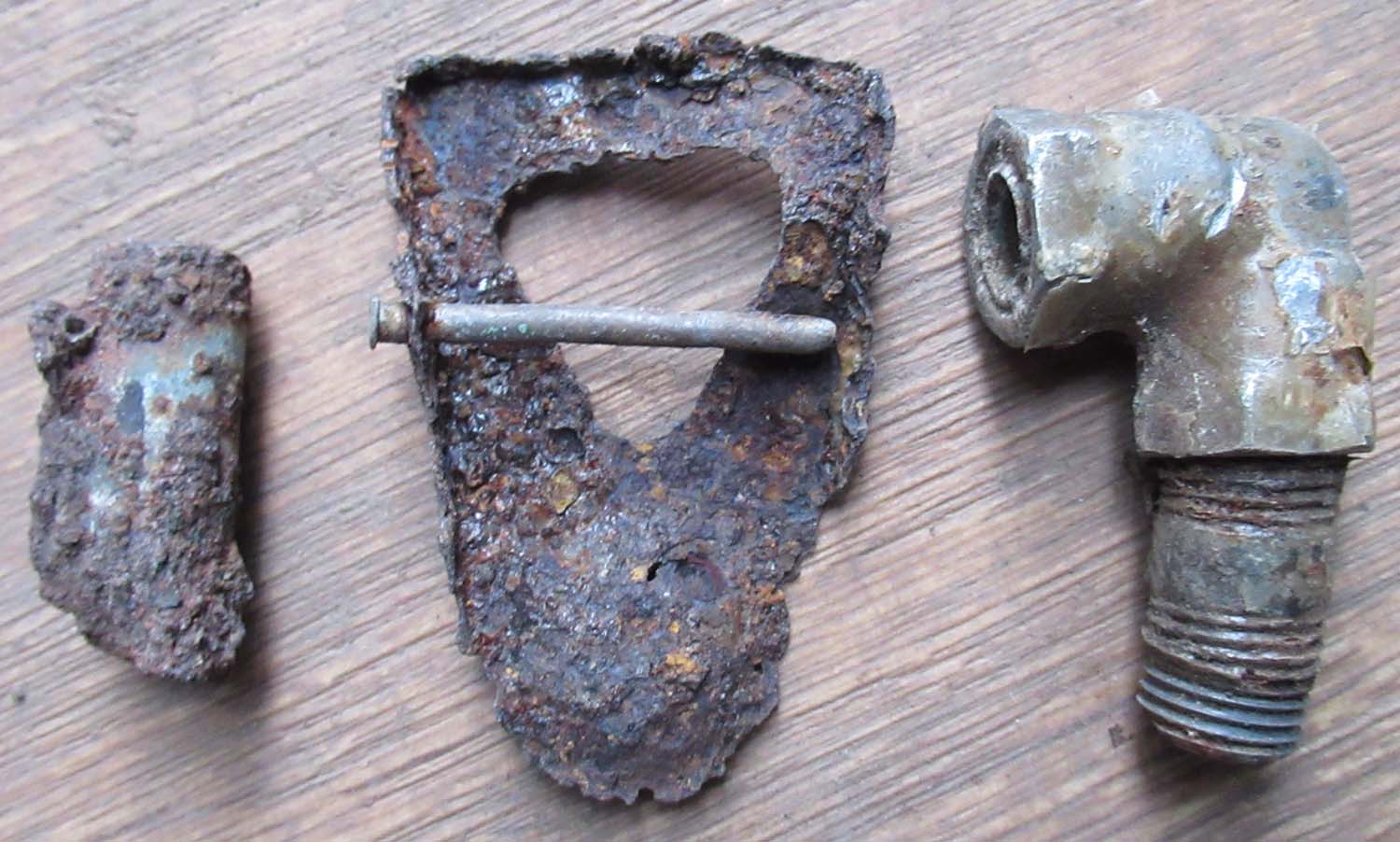
|
B17 Hustling Sue
various pieces (nos 24 pg 10 Relics )
This is a
collection of fragments from Hustling Sue you will receive
everything in the pictures.
Click on the
pictures to enlarge them.
£35


` |
|
Click on the
pictures to enlarge them.
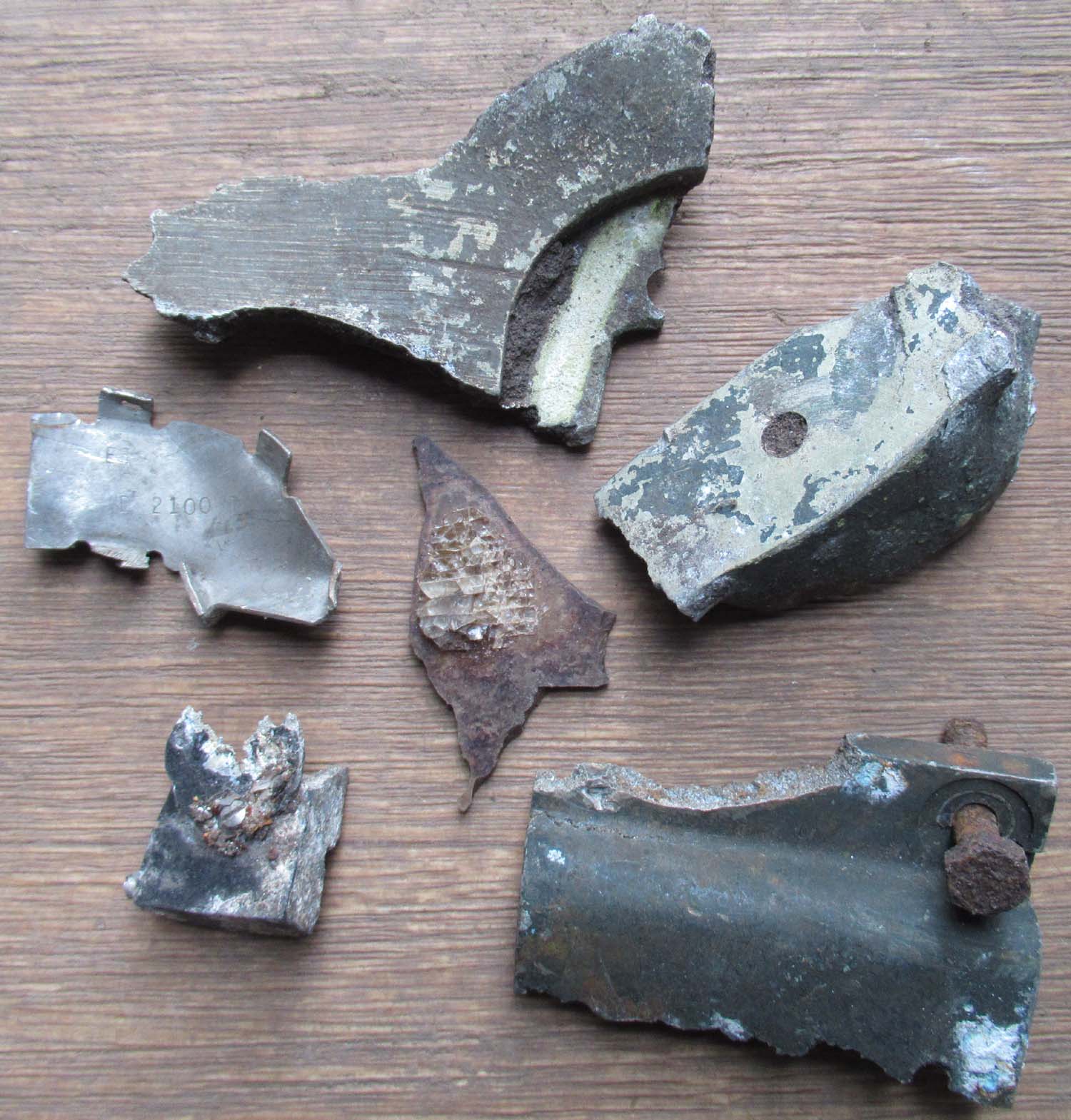
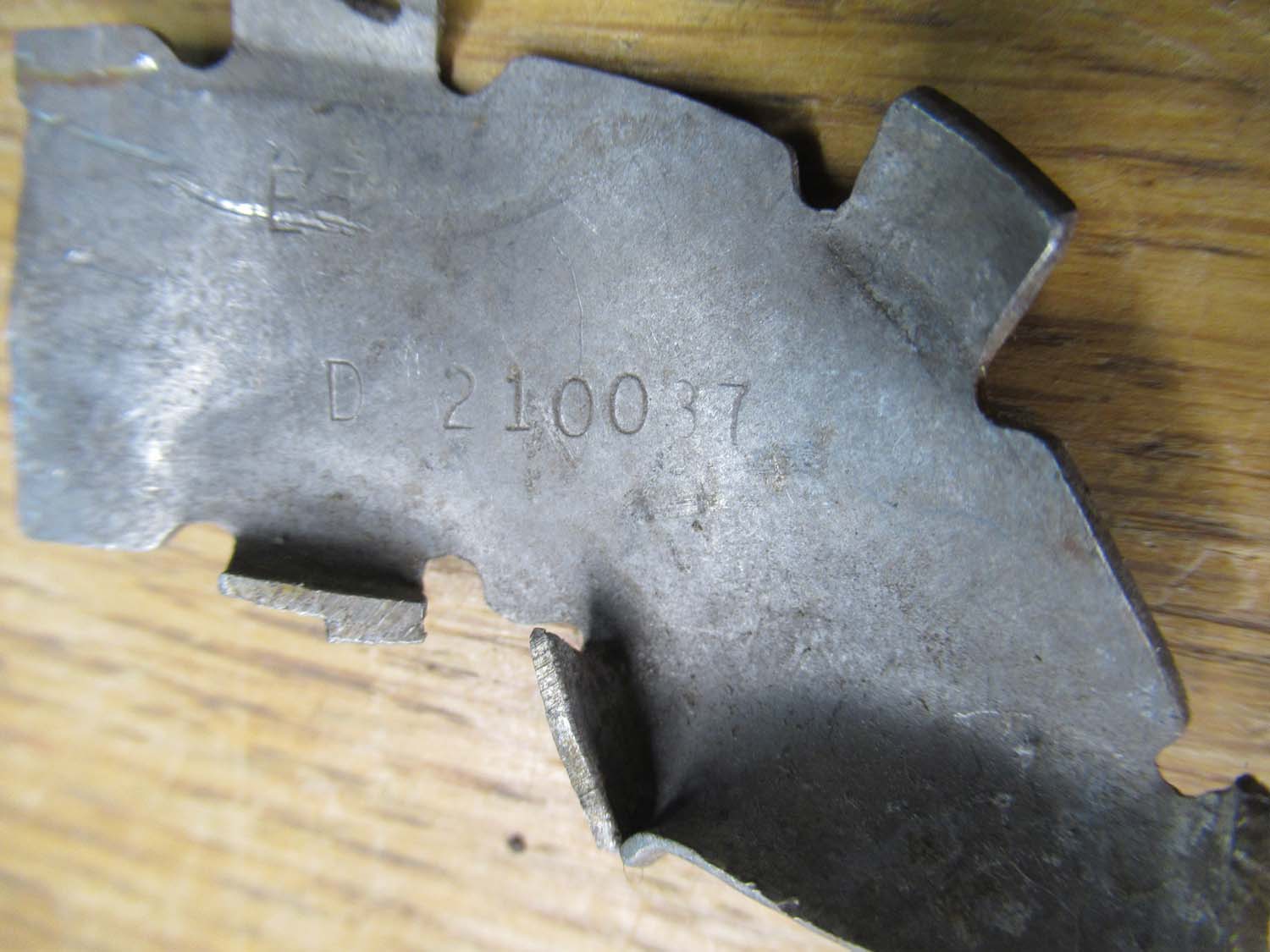
|
B17 Hustling Sue
various pieces (nos 23 pg 10 Relics )
This is a
collection of fragments from Hustling Sue you will receive
everything in the pictures.
Click on the
pictures to enlarge them.
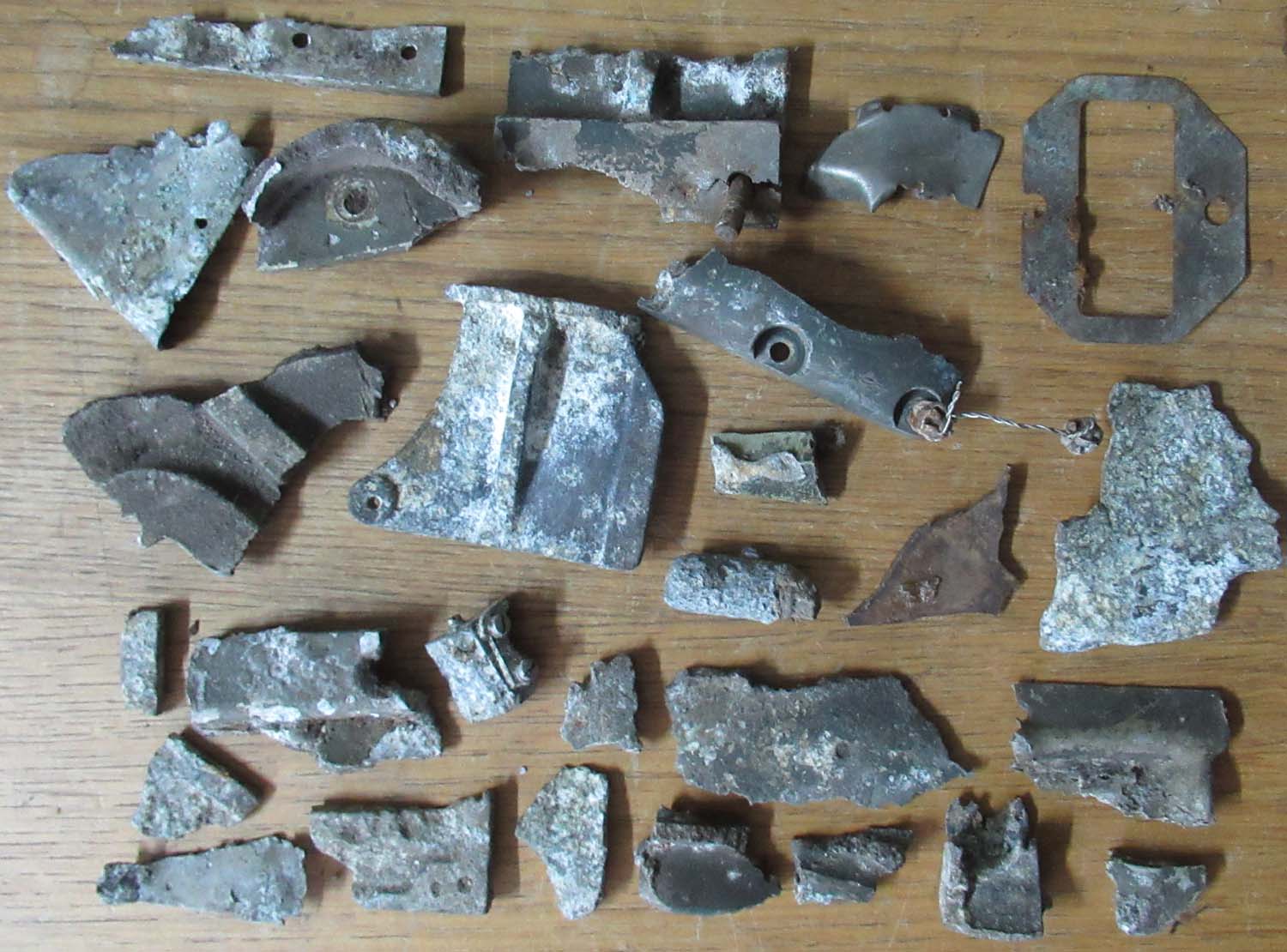
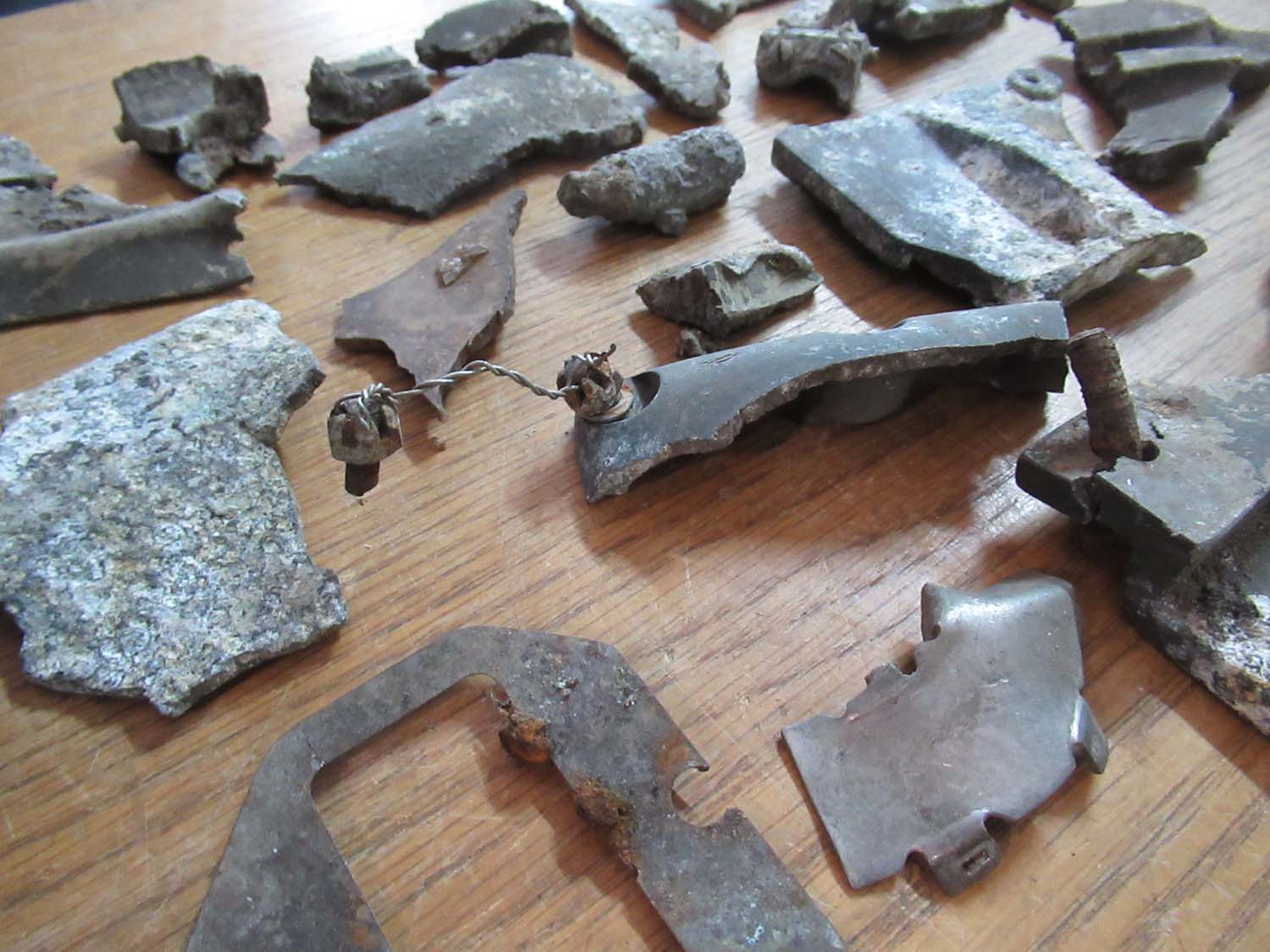
Out of stock more wanted
please contact me
|
|
Click on the
pictures to enlarge them.
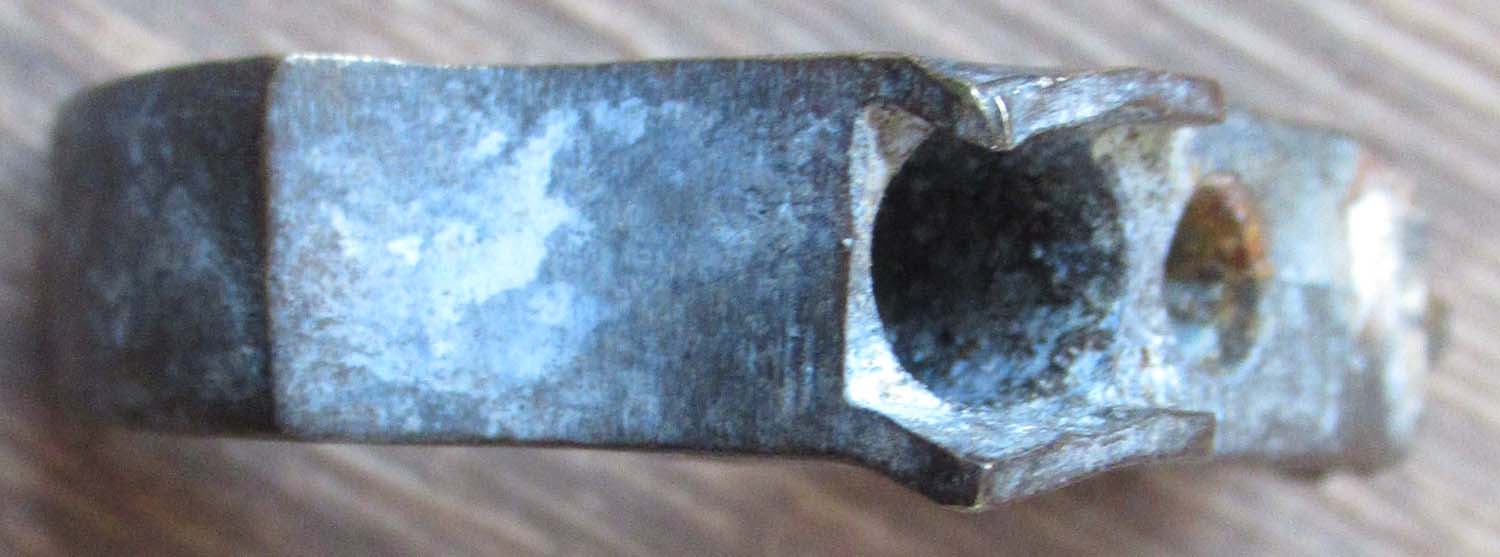
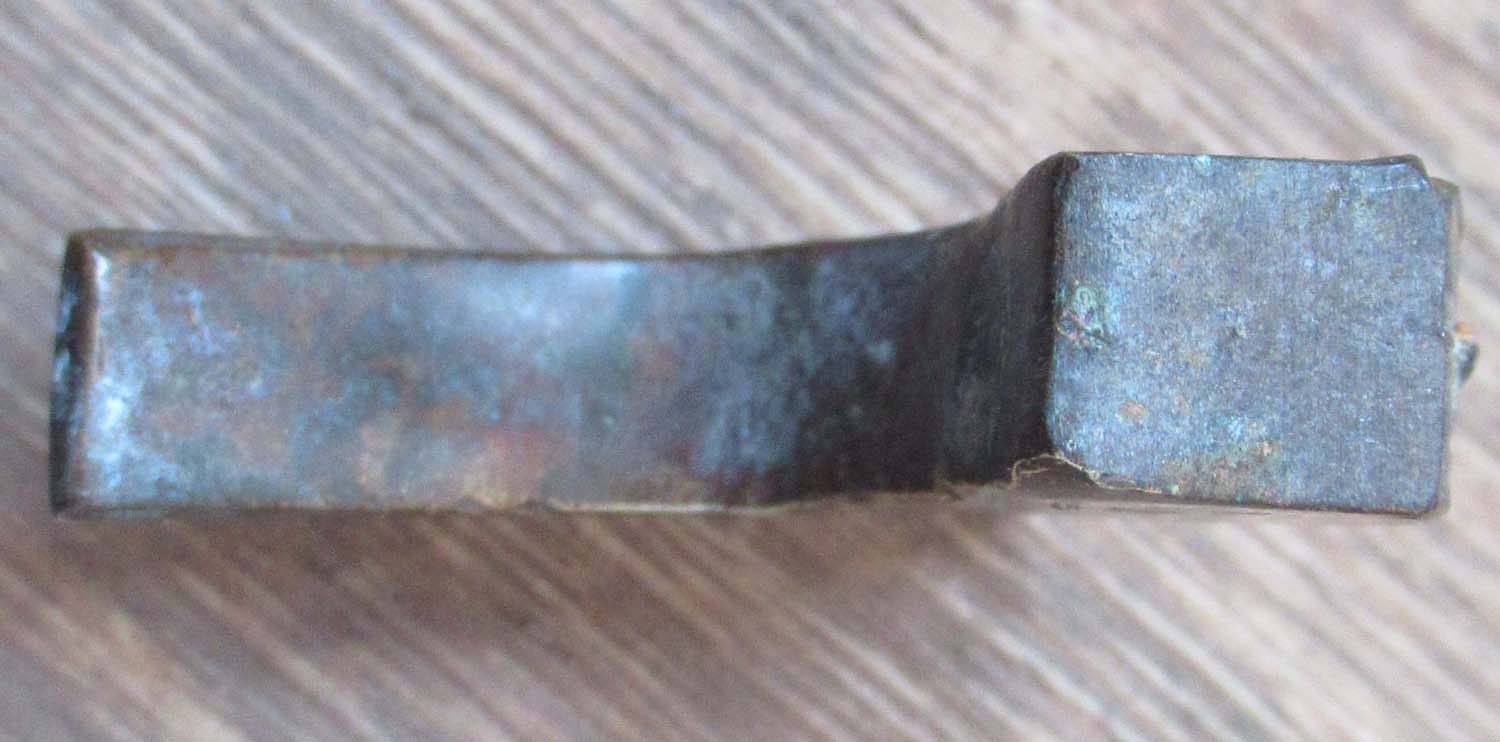
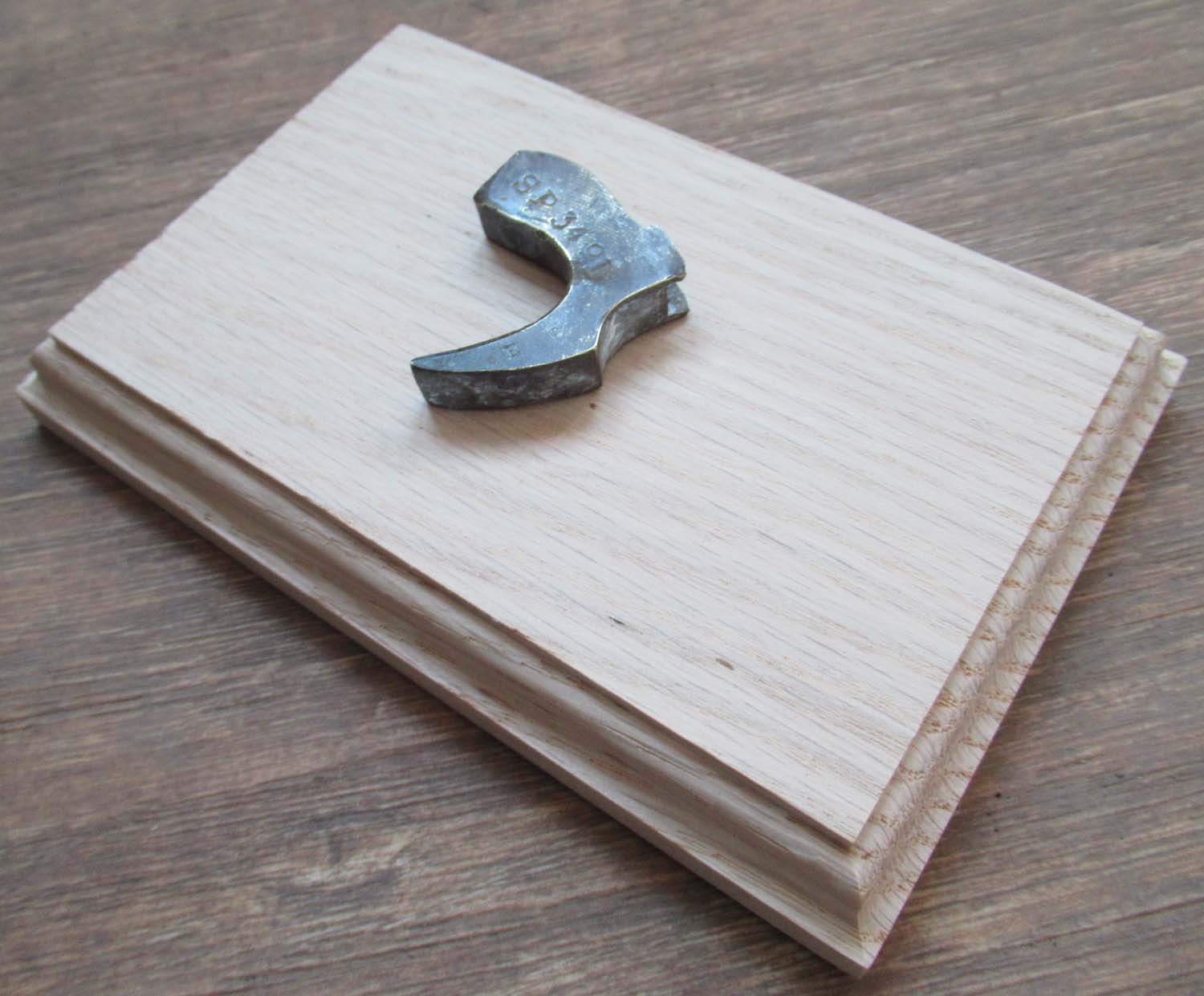
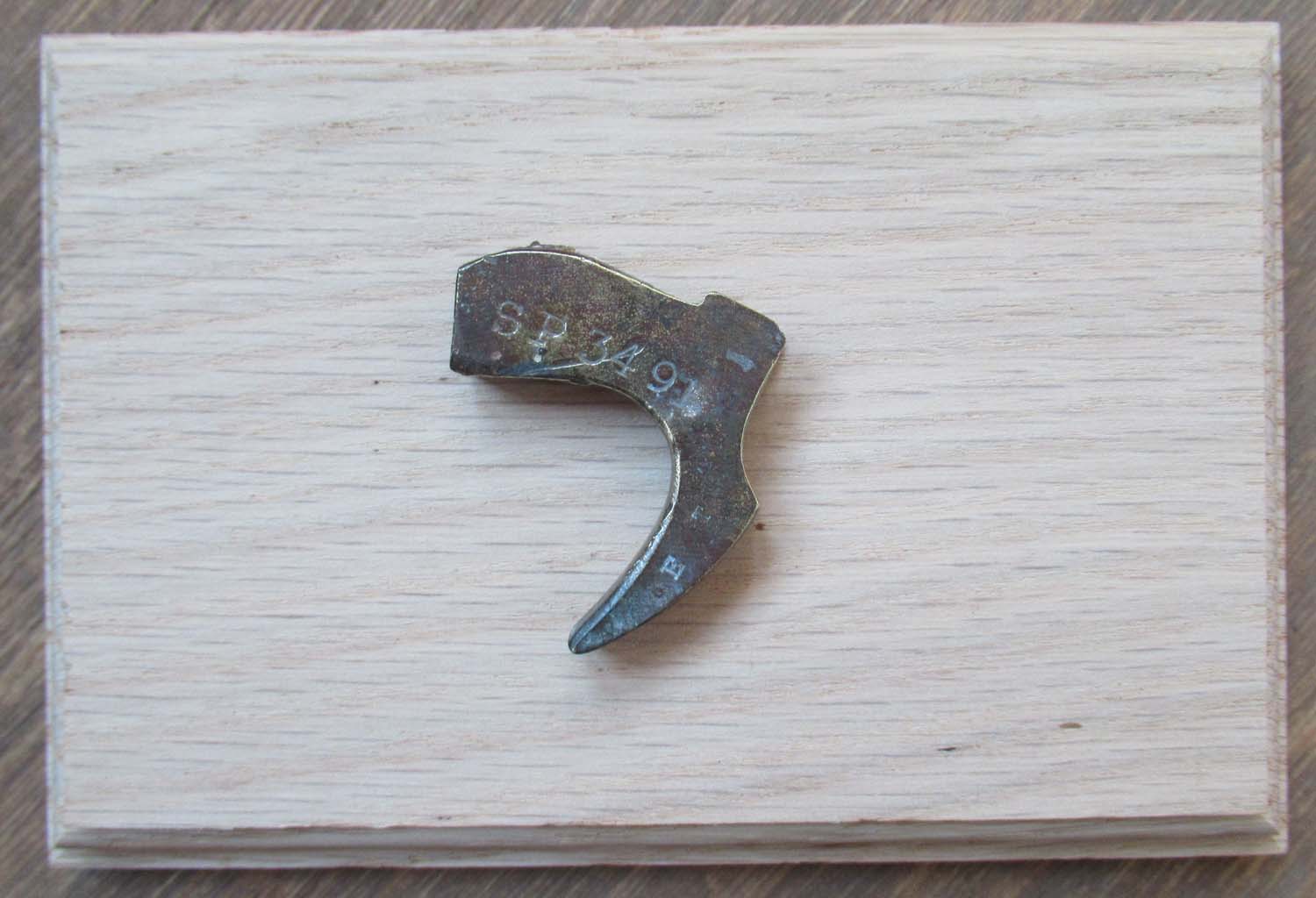
|
B17 Hustling Sue
Sperry turret trigger (nos 22 pg 10 Relics )
This piece
came from Hustling Sue, it really looks like a trigger and I
have spent several hours trying to find the part number so
far without success. Its not from the Waste or lower ball
turret but it could possibly be part of the Mid upper which
I am unable to find drawings for the firing mechanism. It will come with a wooden
base to mount it on , it comes not fixed to the base as the purchaser
may want to display it differently but we will attach it if
required. If you can give me a positive ID please
contact me.
The part
number looks like a Sperry number
SP 3491 also has
E T on it
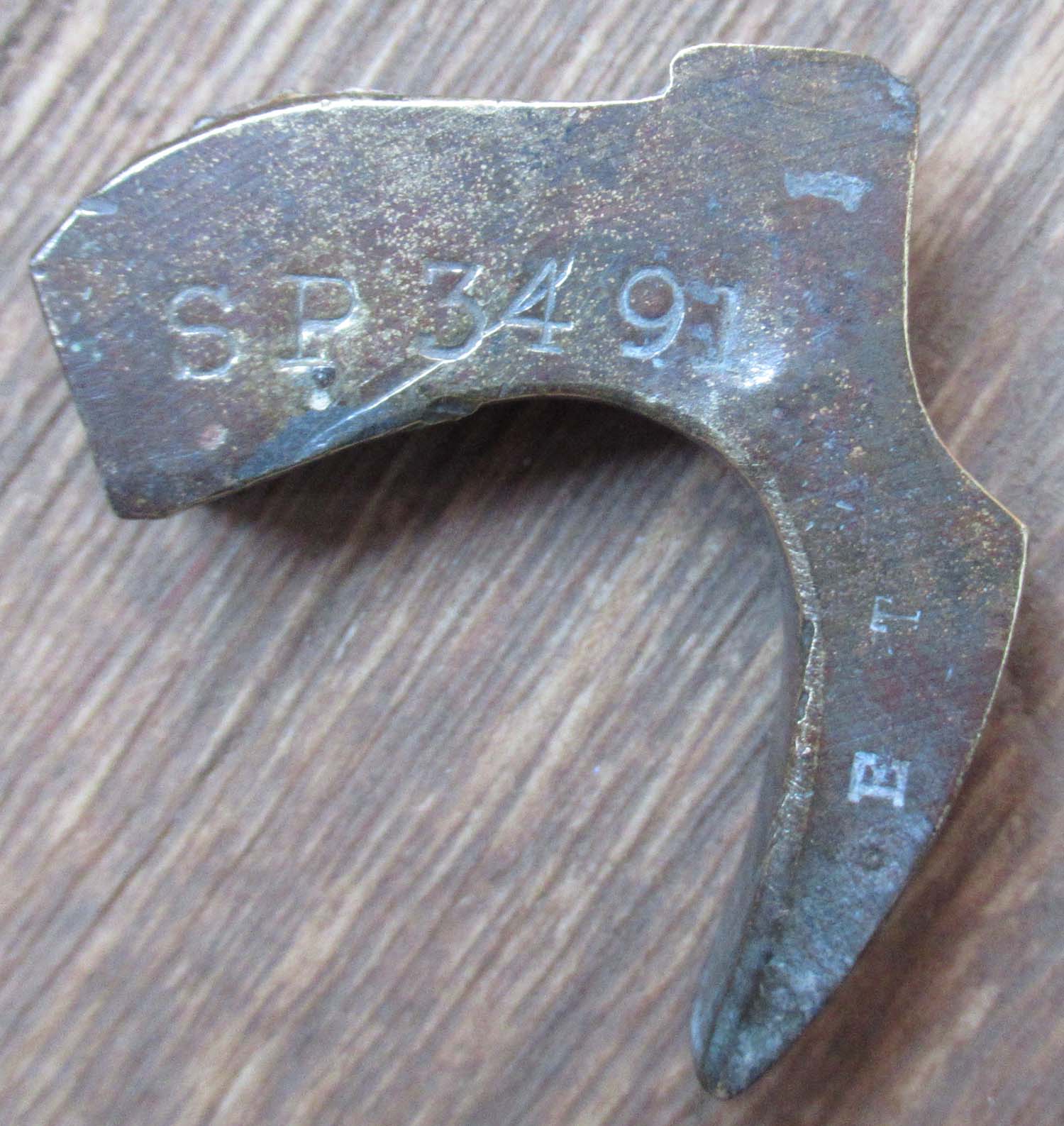
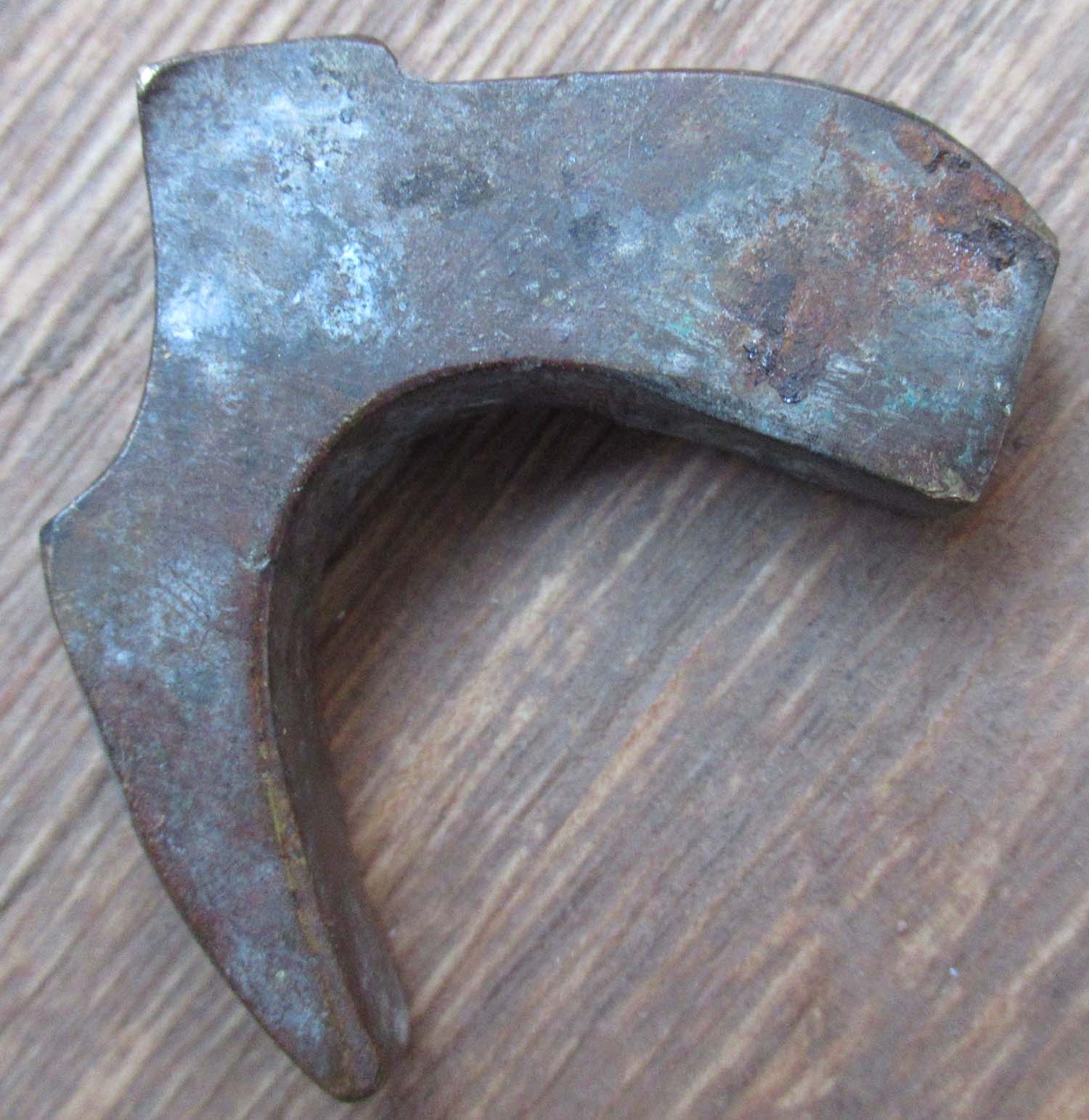
Click on the
pictures to enlarge them.
£150


` |
|
Click on the
pictures to enlarge them.
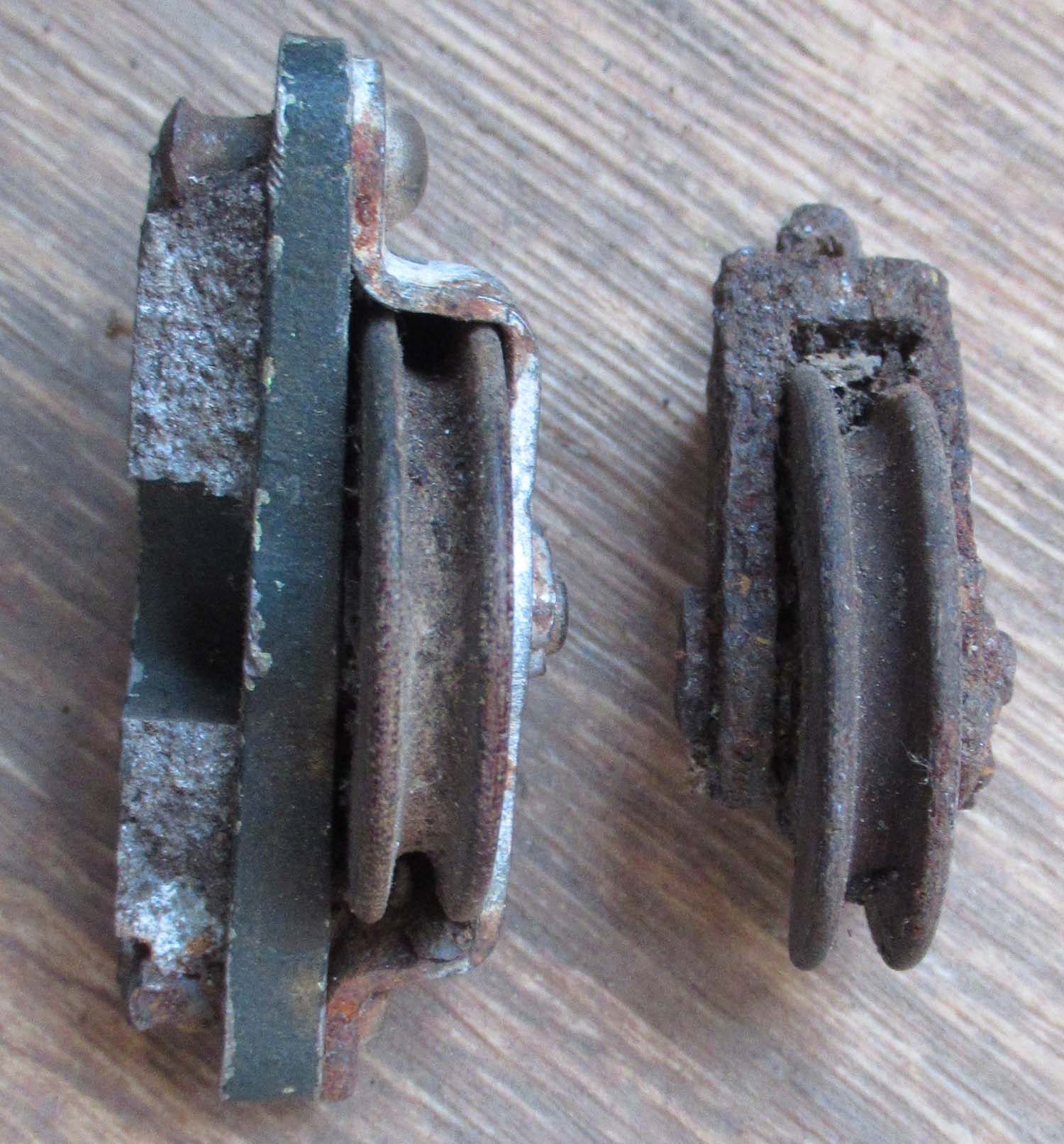
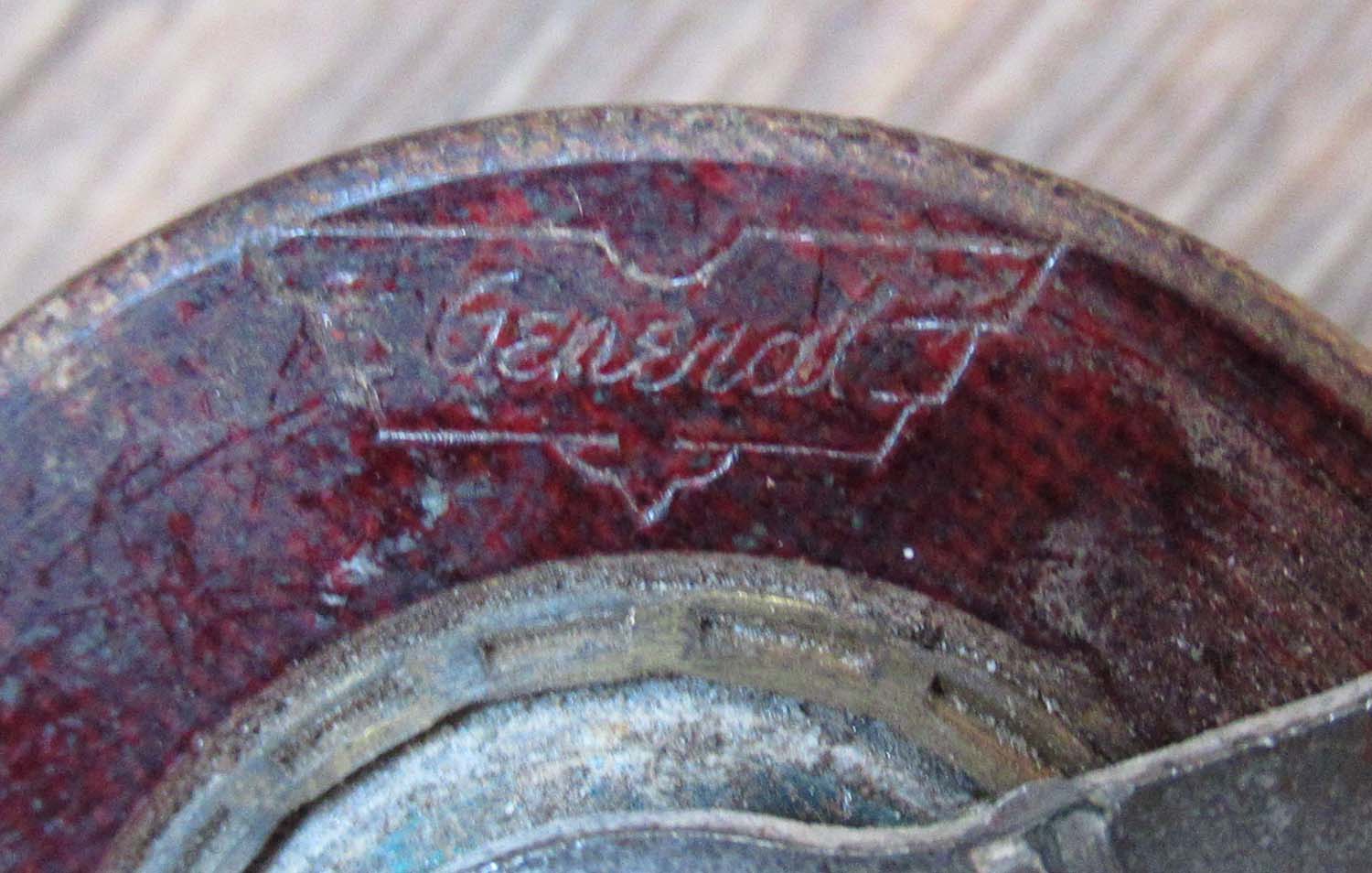
|
B17 Hustling Sue
pulley wheels (nos 21 pg 10 Relics )
Here is
a a pair of pulleys from Hustling Sue.
The part
number on the red one is 210256 possibly an R or an 8.
Click on the
pictures to enlarge them.
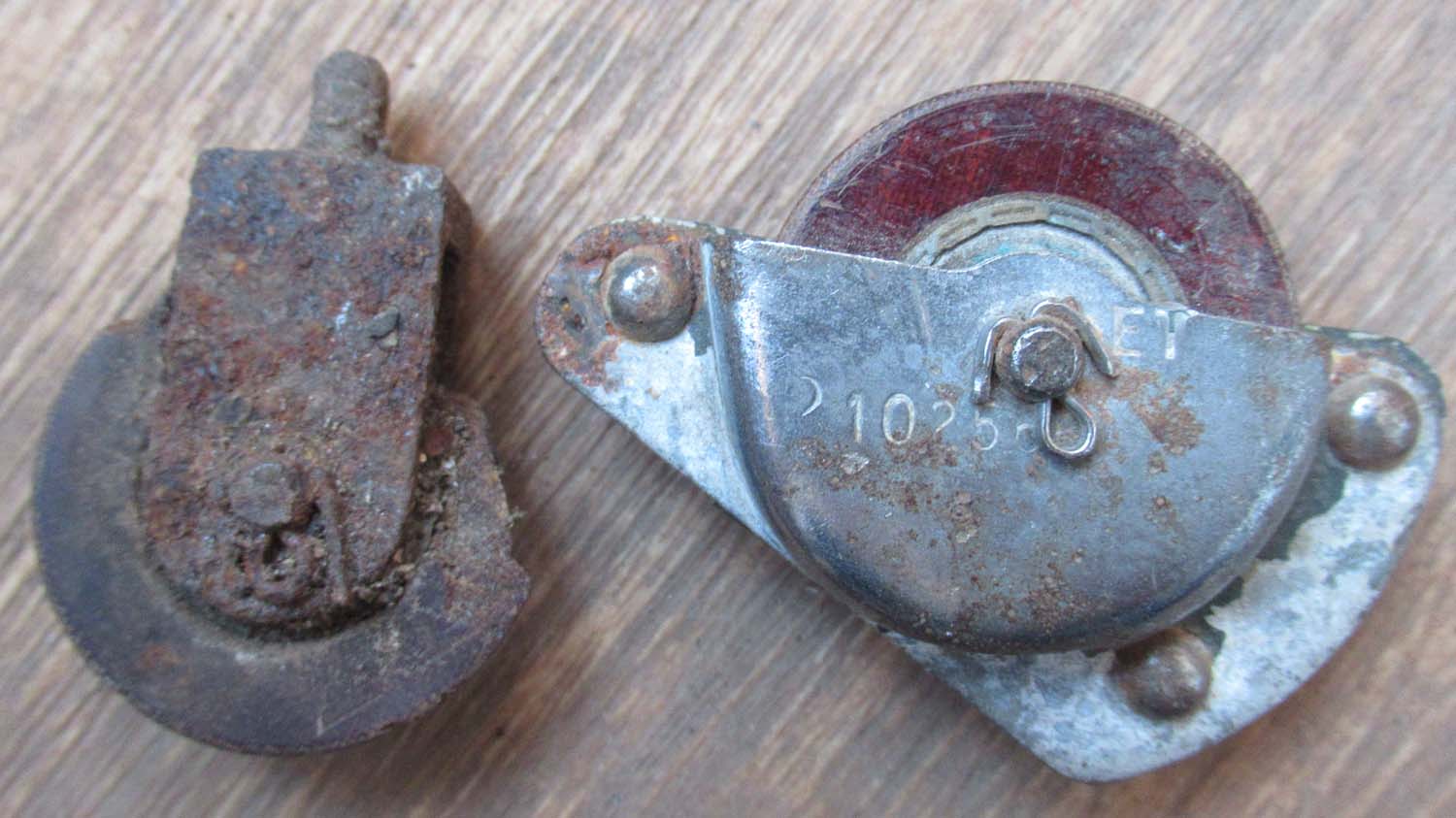
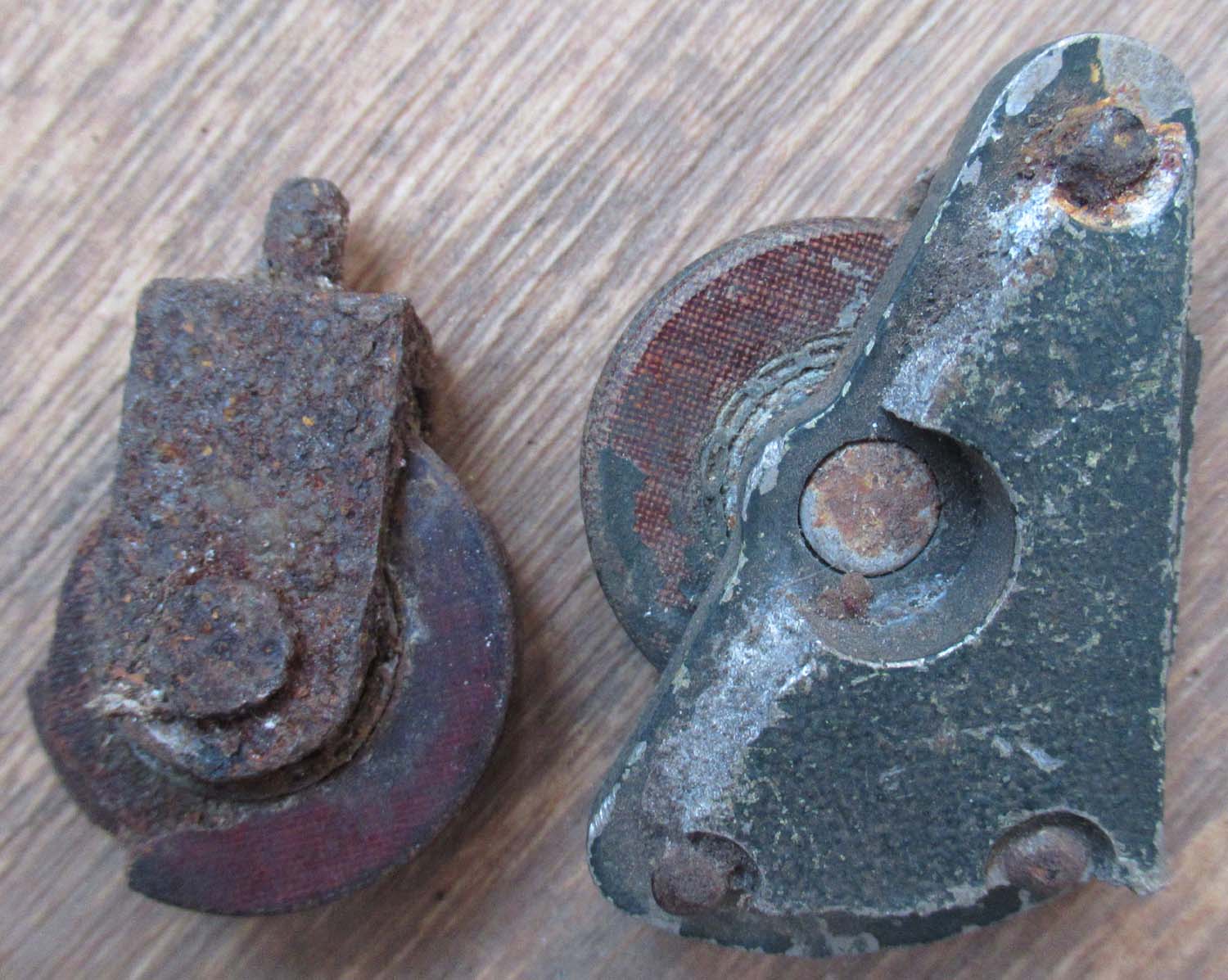
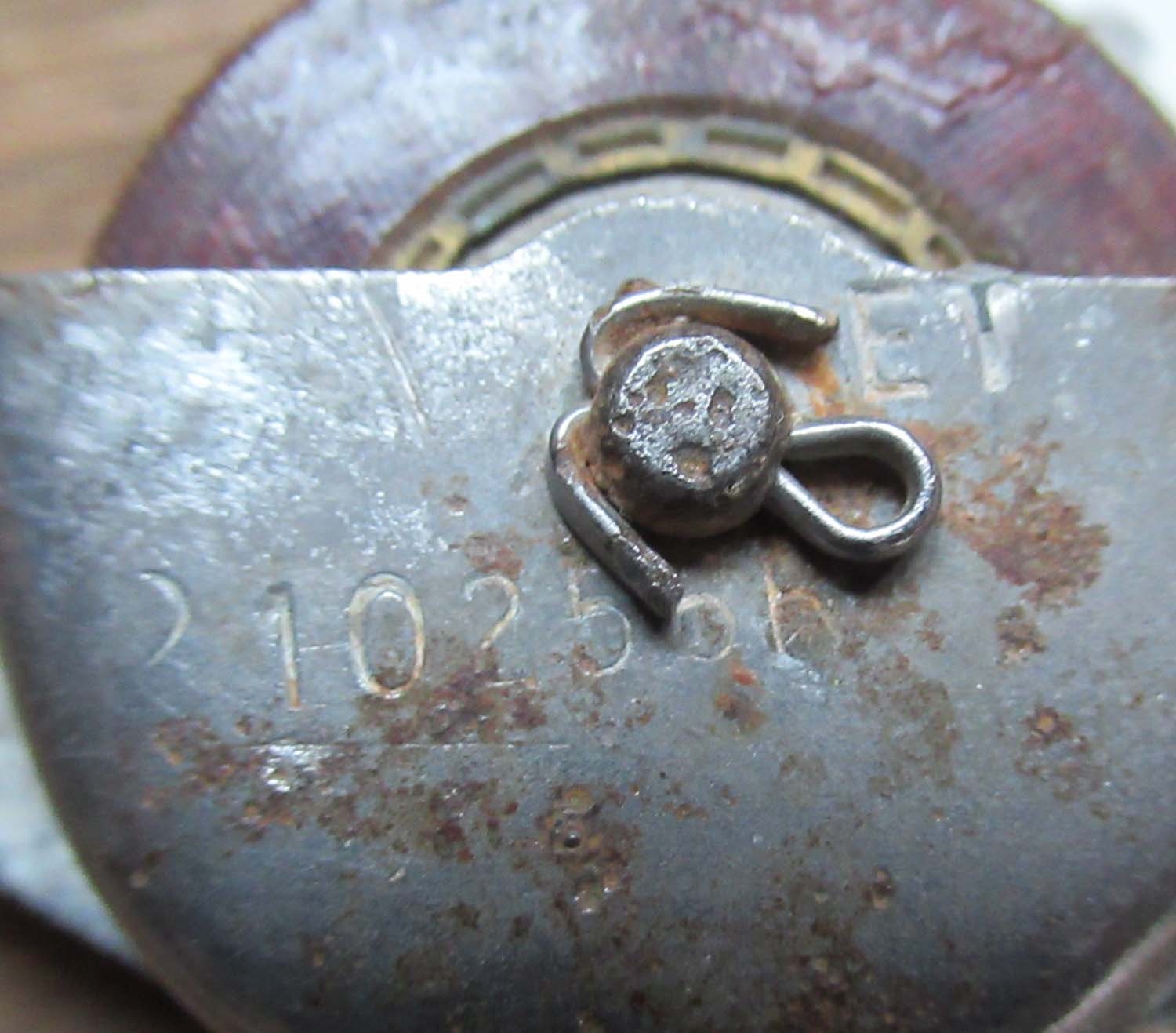
£75


` |
|
Click on the
pictures to enlarge them.
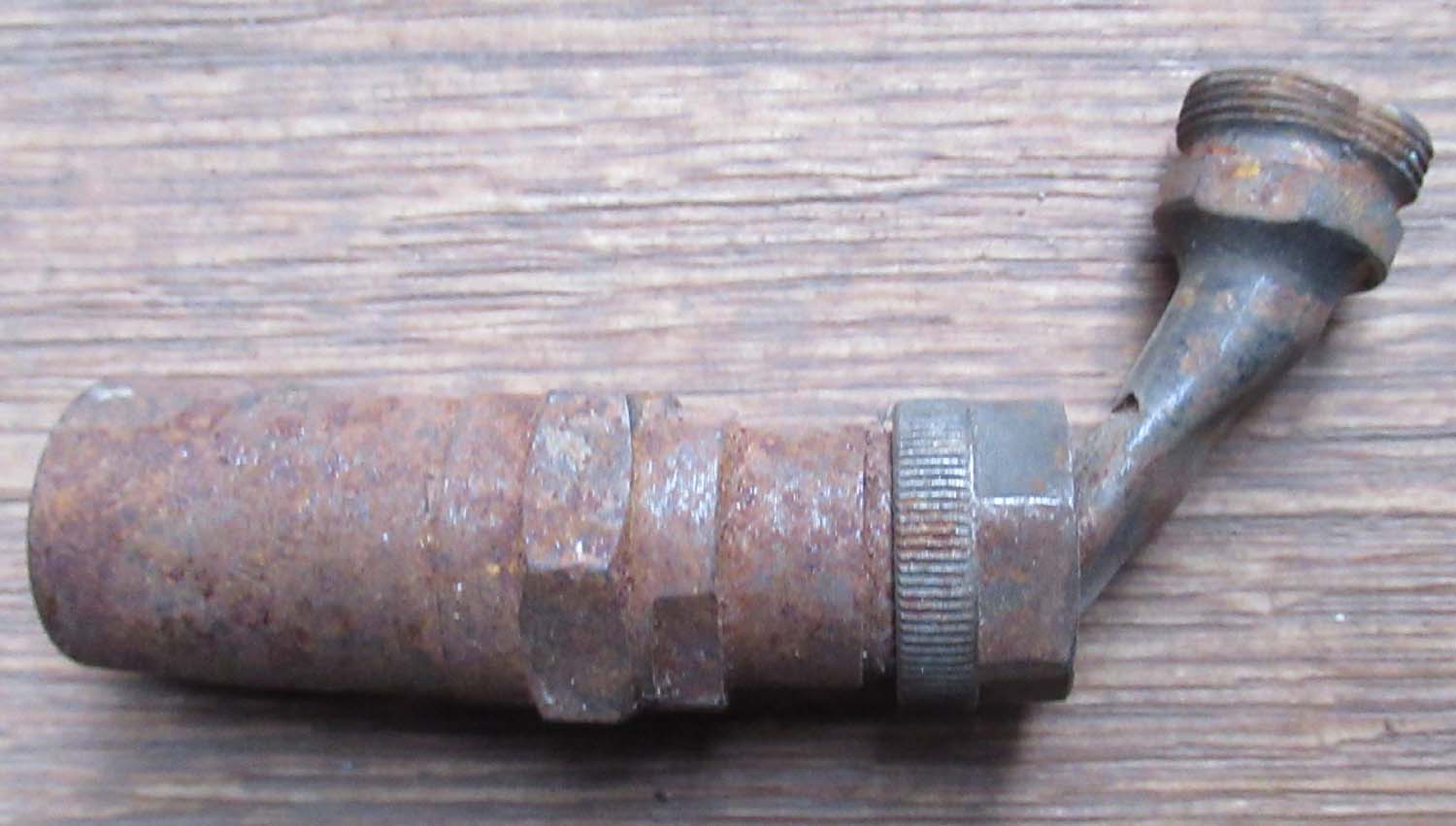
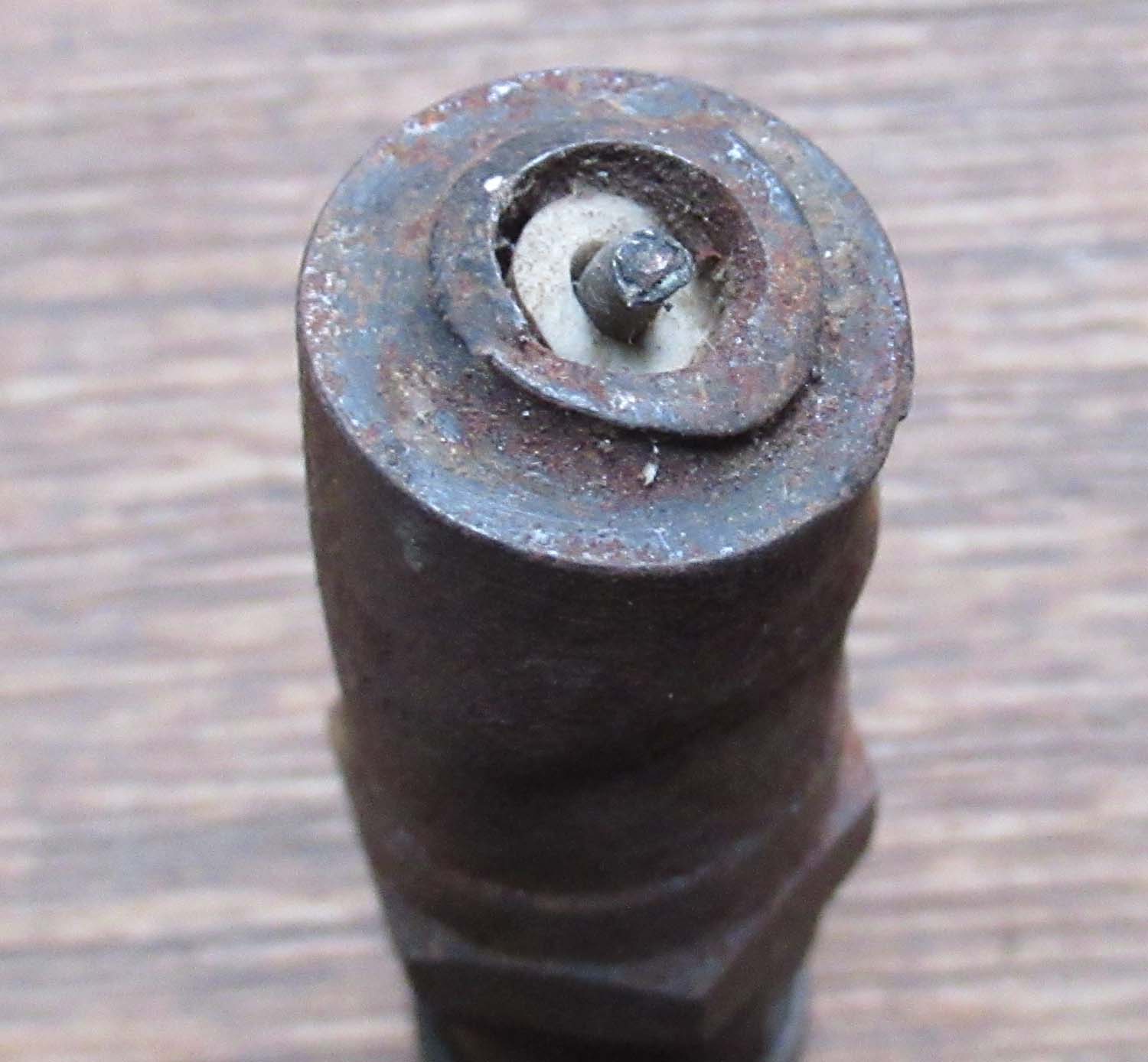
|
B17 Hustling Sue
spark plug (nos 20 pg 10 Relics )
Here is
a spark plug from one of Hustling Sues engines.
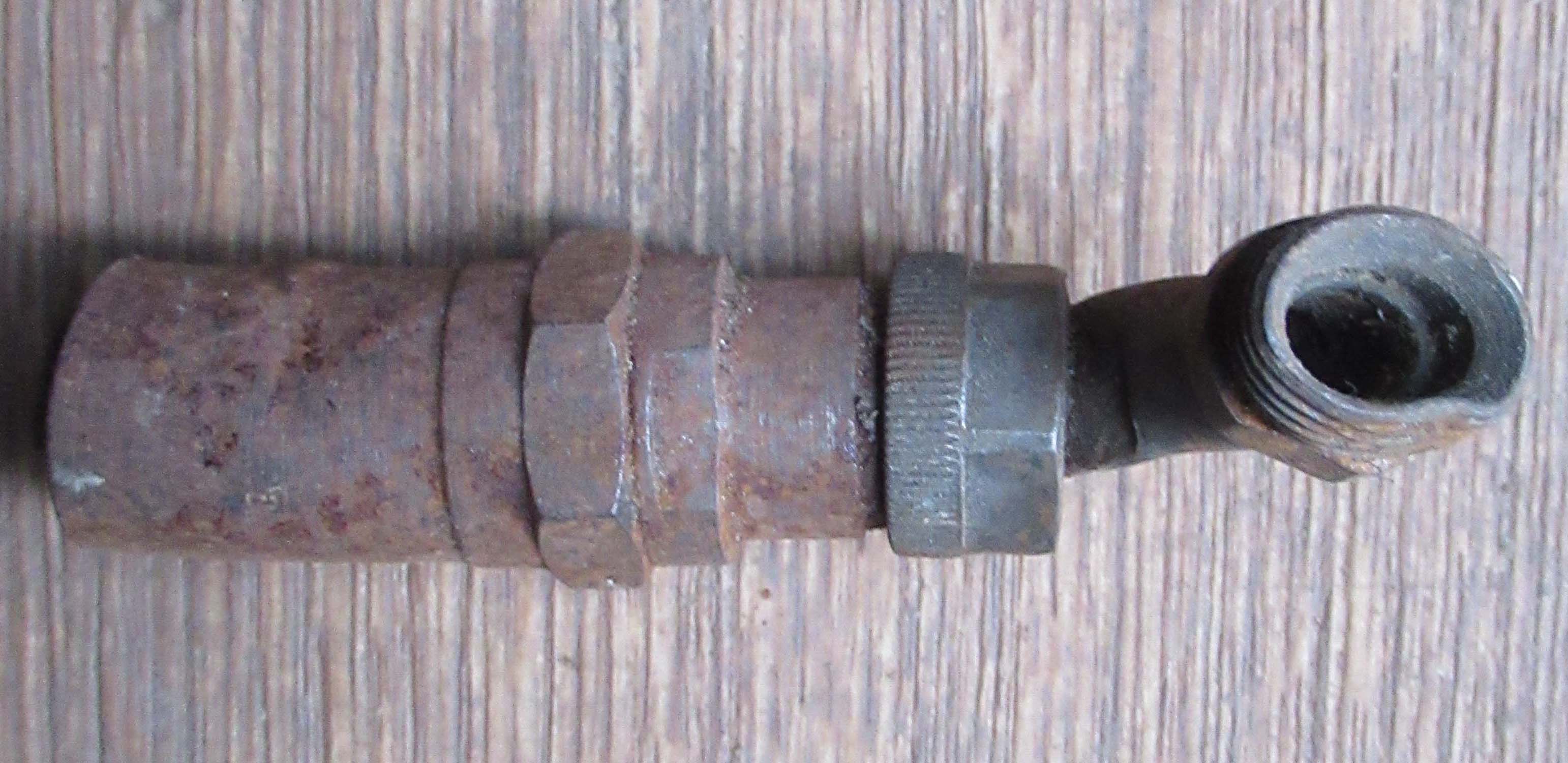
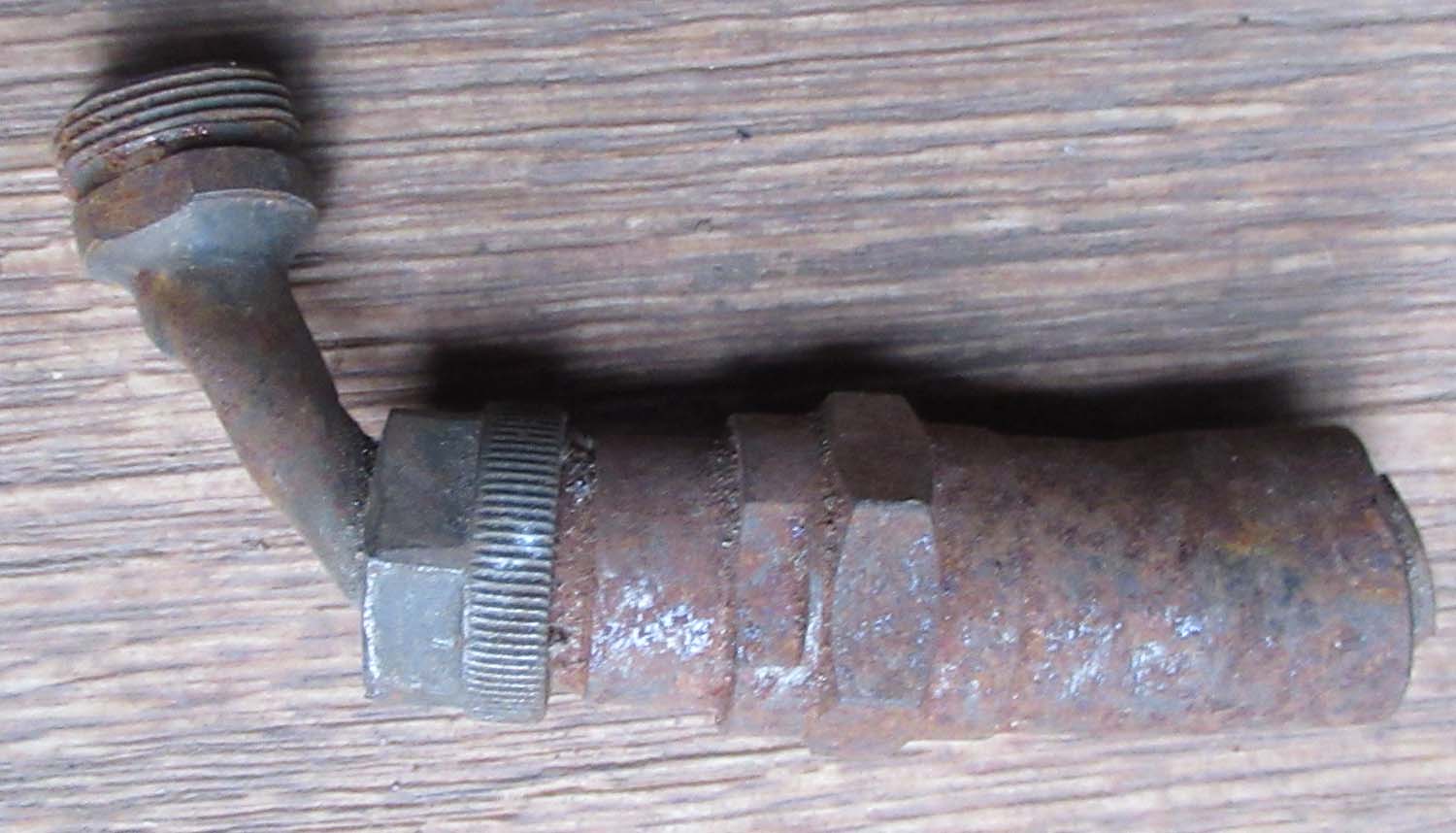
£55


` |
|
Click on the
pictures to enlarge them.

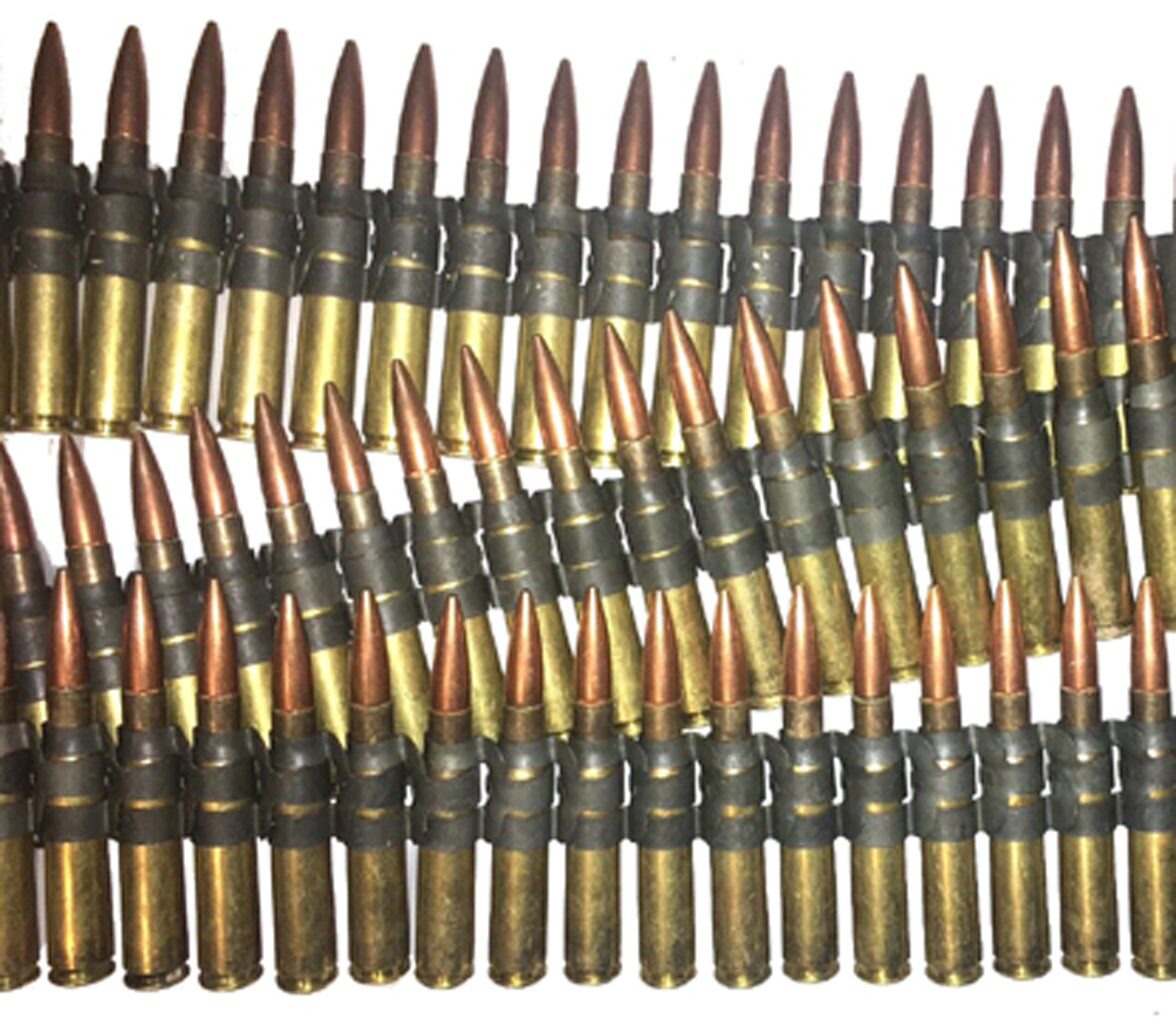
Shown above
how the links hold the bullets together.
|
B17 Hustling Sue
ammunition links (nos
19 pg 10 Relics )
Here is
a collection of ammunition links which link the 50 calibre
bullets together for the guns. These all came from Hustling
Sue.
Click on the
pictures to enlarge them.
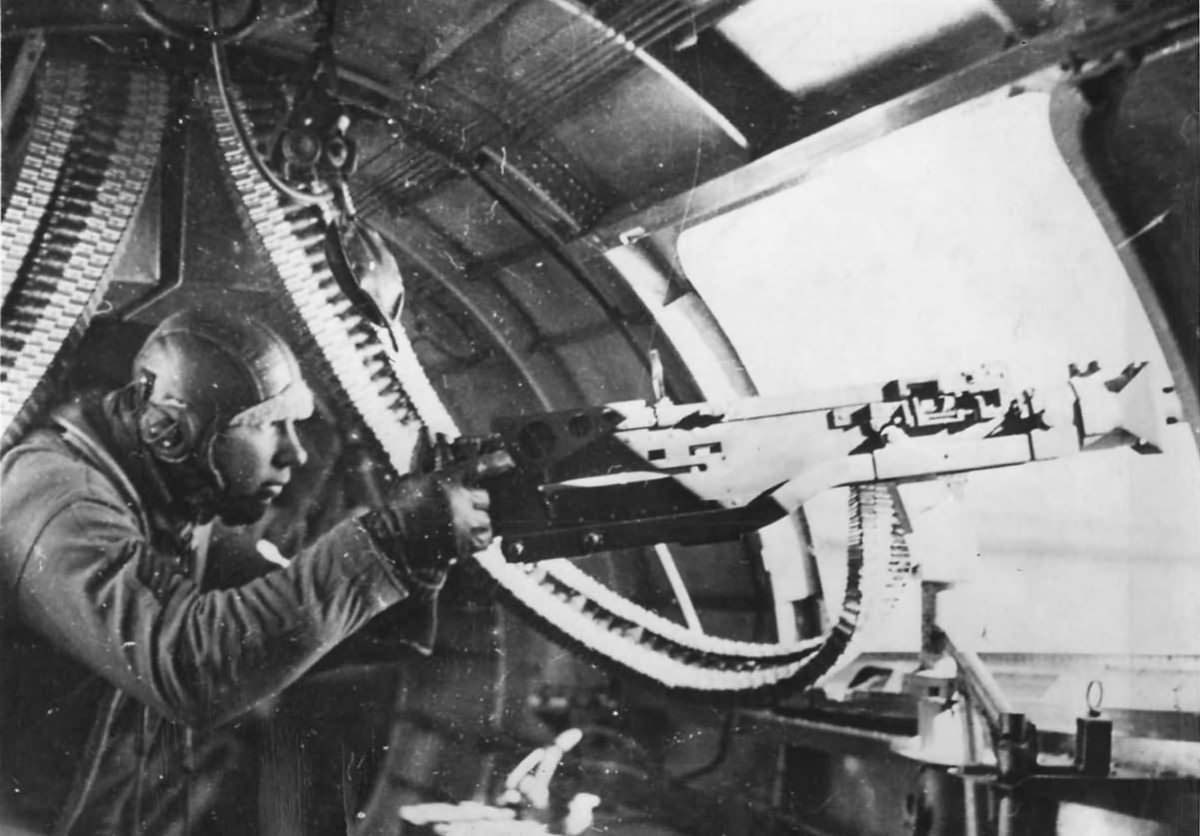
Shown above a
B17 Waste Gunner.
£95


` |
|
Click on the
pictures to enlarge them.

Shown above for effect I have
a picture of a FW 190 taking hits while chasing another
Bomber through the ring sight.

Comes supplied with a wooden
mount as shown but not attached, we will attach the parts if
required.


|
B17 Hustling Sue
Gunsight and Flak (nos
18 pg 10 Relics )
Here is
probably the most poignant two pieces recovered from this
aircraft, as related above these relics were purchased many
years ago on one of our trips to Holland
see this link there was a box full
and inside the box was another smaller wooden box filled
with small fragments , as I had listed all the other big
items I started to search through this box and came up with
arguably the best finds which you will see listed shortly.
However I
personally believe these are the best two pieces, as with
all the parts on the relics pages they will come with a
certificate including the History of the crew and aircraft.
Firstly we
have a ring eccentrics although unfortunately its missing
its bead from the K3 Gunsight of Hustling Sue , this
Gunsight was only fitted to the mid upper turret in the B17
so we know who actually used it to defend the aircraft,
flight engineer/top turret gunner: John
Champion. John was injured by an incoming 20mm Cannon shell
fired by a FW 190 but survived and was taken prisoner of
war.
The
second piece is a fragment of flak which caused the aircraft
to fall out of formation and bring about its demise. It is
the only piece of flak in the entire box it must have been
wedged into the aircraft when it came. How do I know its a
flak fragment, well really from the experience of handling
aircraft parts from WWII over 20 years it has a different
composition to the steel used in the aircraft itself.
Together
they represent the defining moment of the brave crew
and Hustling Sue.
The two
items will come with a wooden mount, they will not be
attached it is for the purchaser to decide how to display
the items, but its an easy job to attach them and we will do
it if requested.
Click on the
pictures to enlarge them

Above the
piece of Flak



Above the
Ring sight and its position on the K3 Gunsight.
Out of stock more wanted please
contact me
|
|
Click on the
pictures to enlarge them

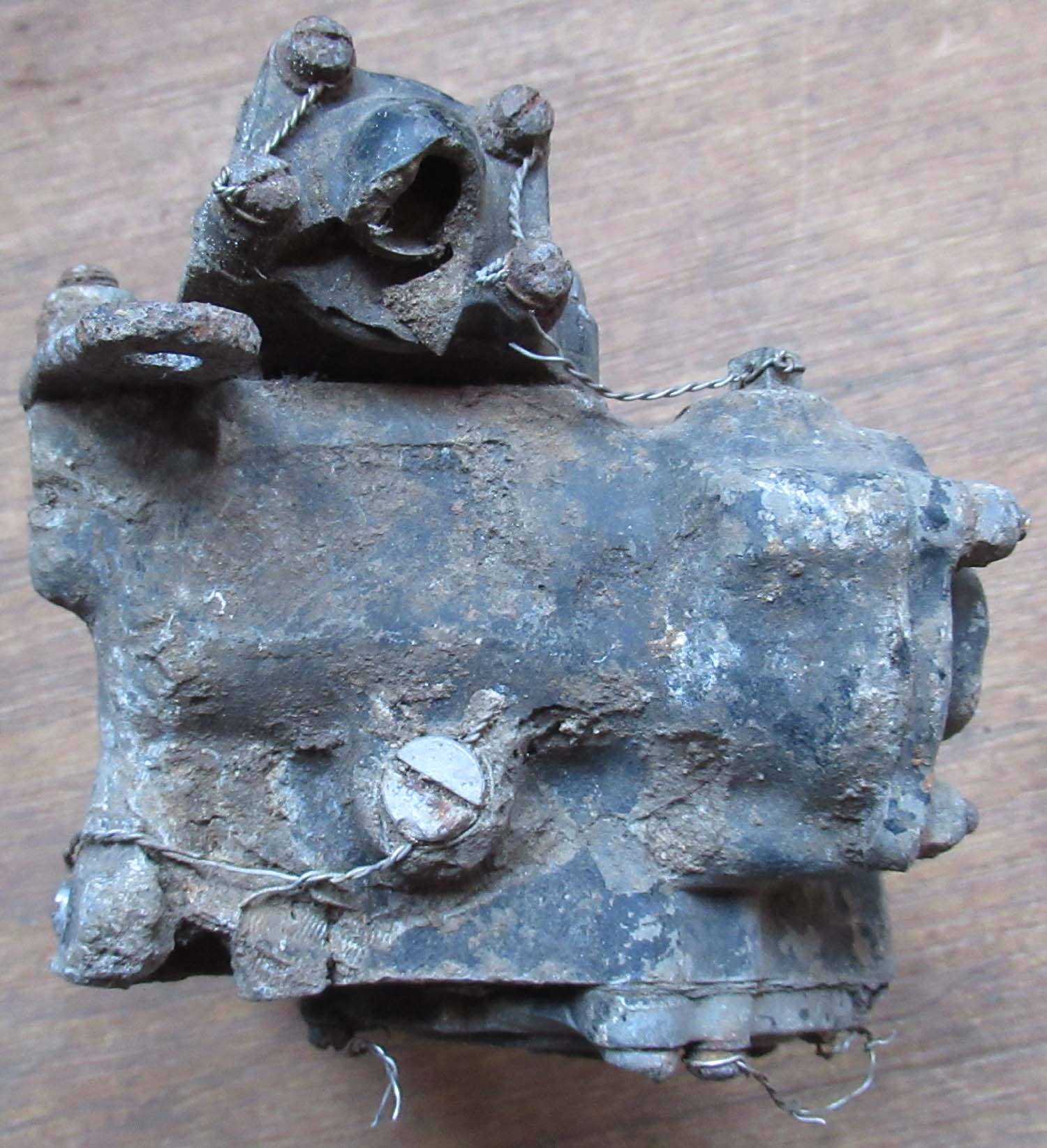

|
B17 Hustling Sue
Bendix Stromberg (nos
17 pg 10 Relics )
Here is part of the Bendix
Stromberg carburettor its the fuel control unit from B17 Hustling Sue
.
The B17 was fitted with four
1200HP
Wright R-1820-97 Engines.
This is a
superb peace of History from an iconic aircraft with an
incredible story.
Click on the
pictures to enlarge them


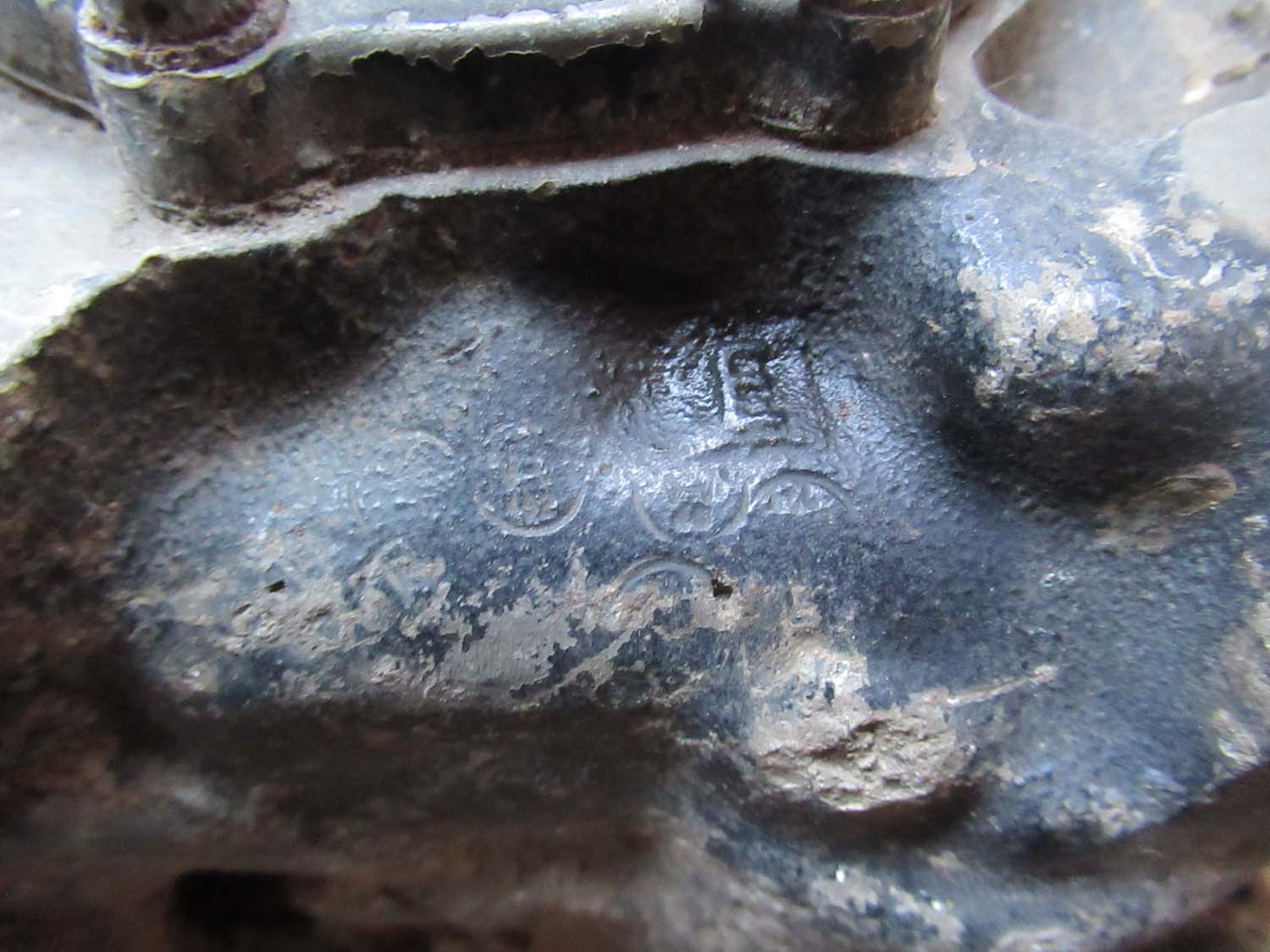

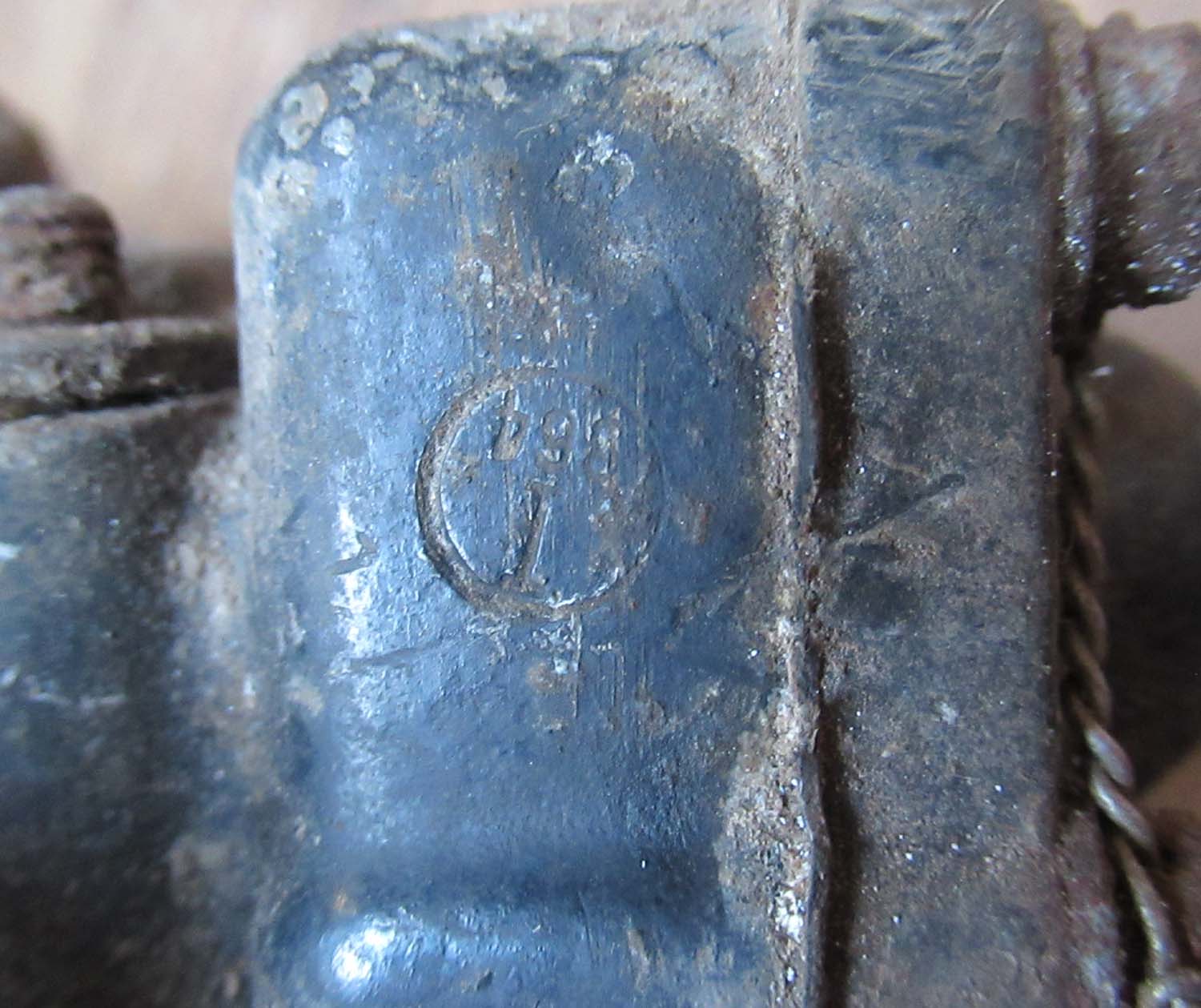



£275


` |
|
Click on the
pictures to enlarge them
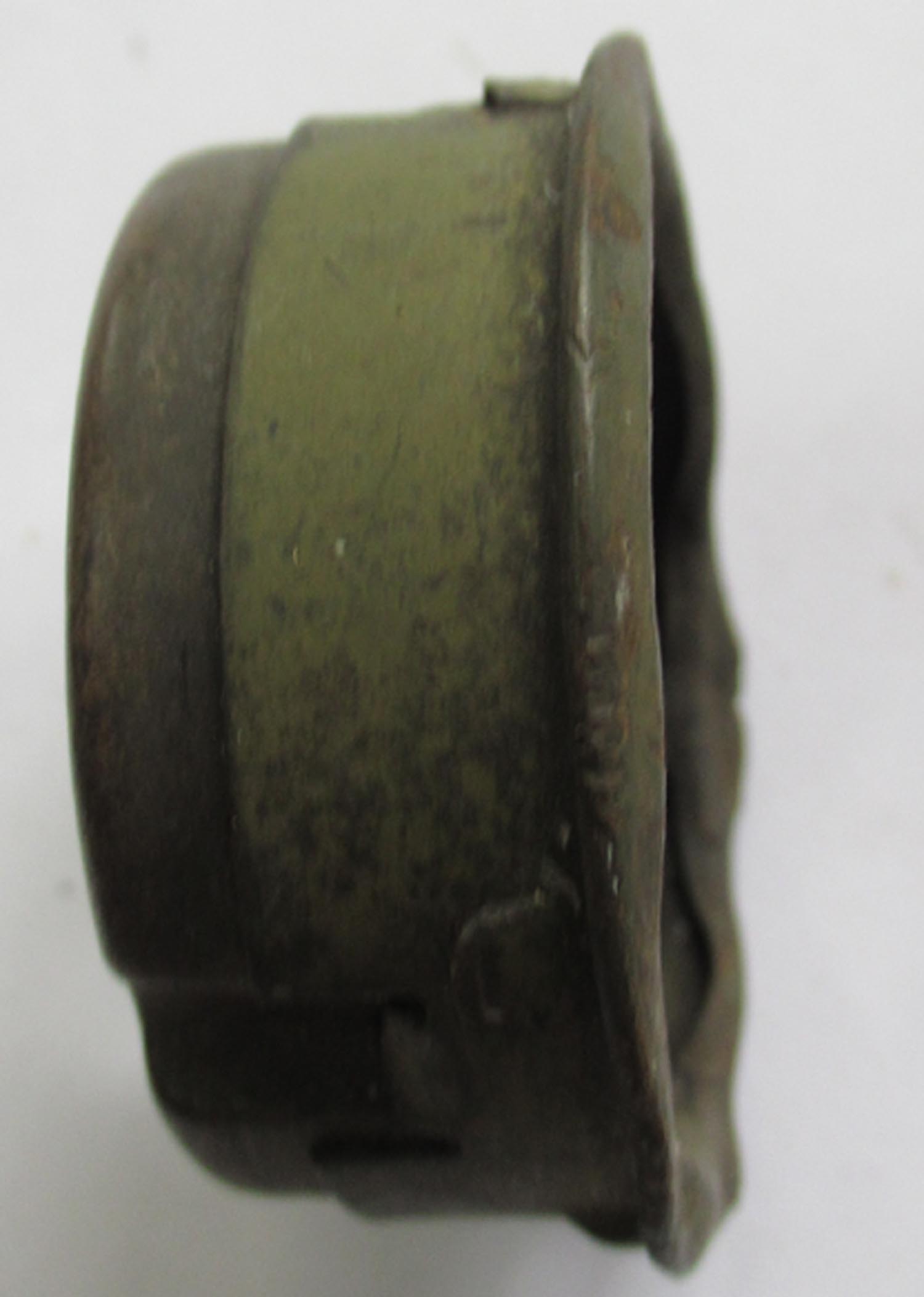
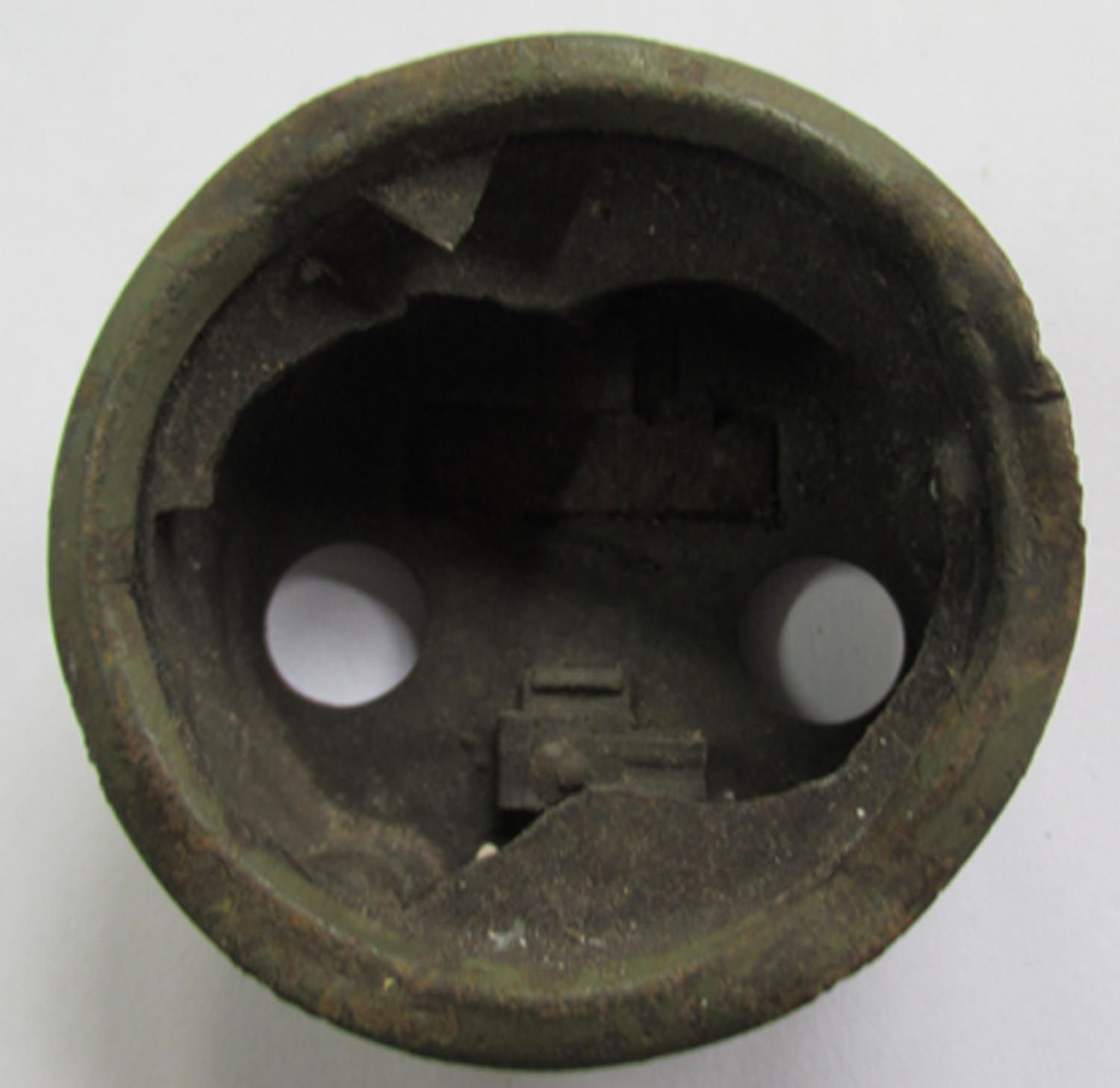
|
B17 Hustling Sue
Ball Turret lock nut for hand elevation control (nos
16 pg 10 Relics )
Here is a peace from B17 Hustling Sue most of the peaces appear to be from
the Turrets. I found this drawing and part number list which
says this is the lock nut for the hand elevation drive brake
on the turret. It looks like more of a cover than a lock nut
but it does have tabs on the bottom that look like they lock
in by twisting .
The peace is marked as number
10 on the drawing below.
Briggs Part
number 944
Click on the
pictures to enlarge them
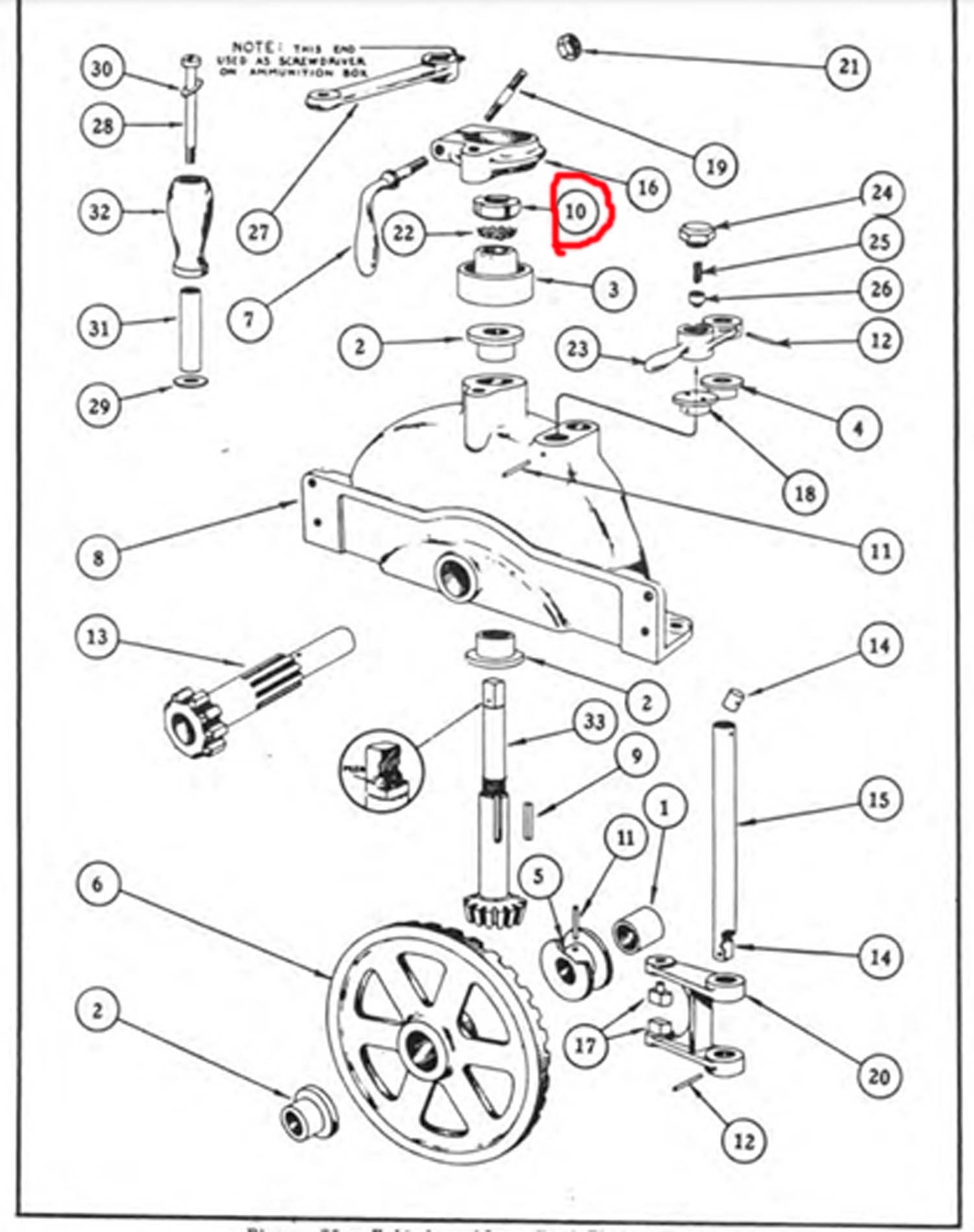
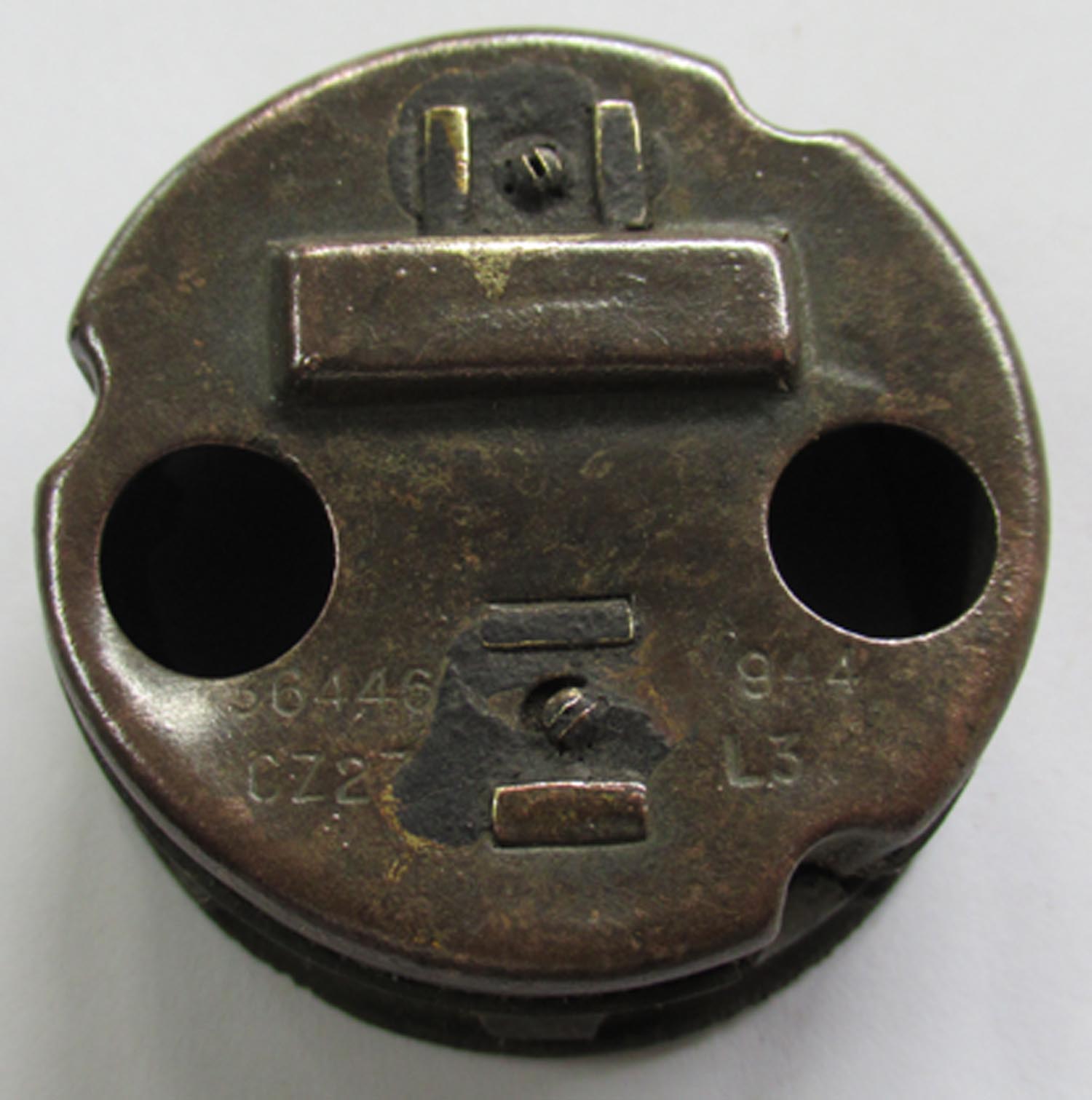
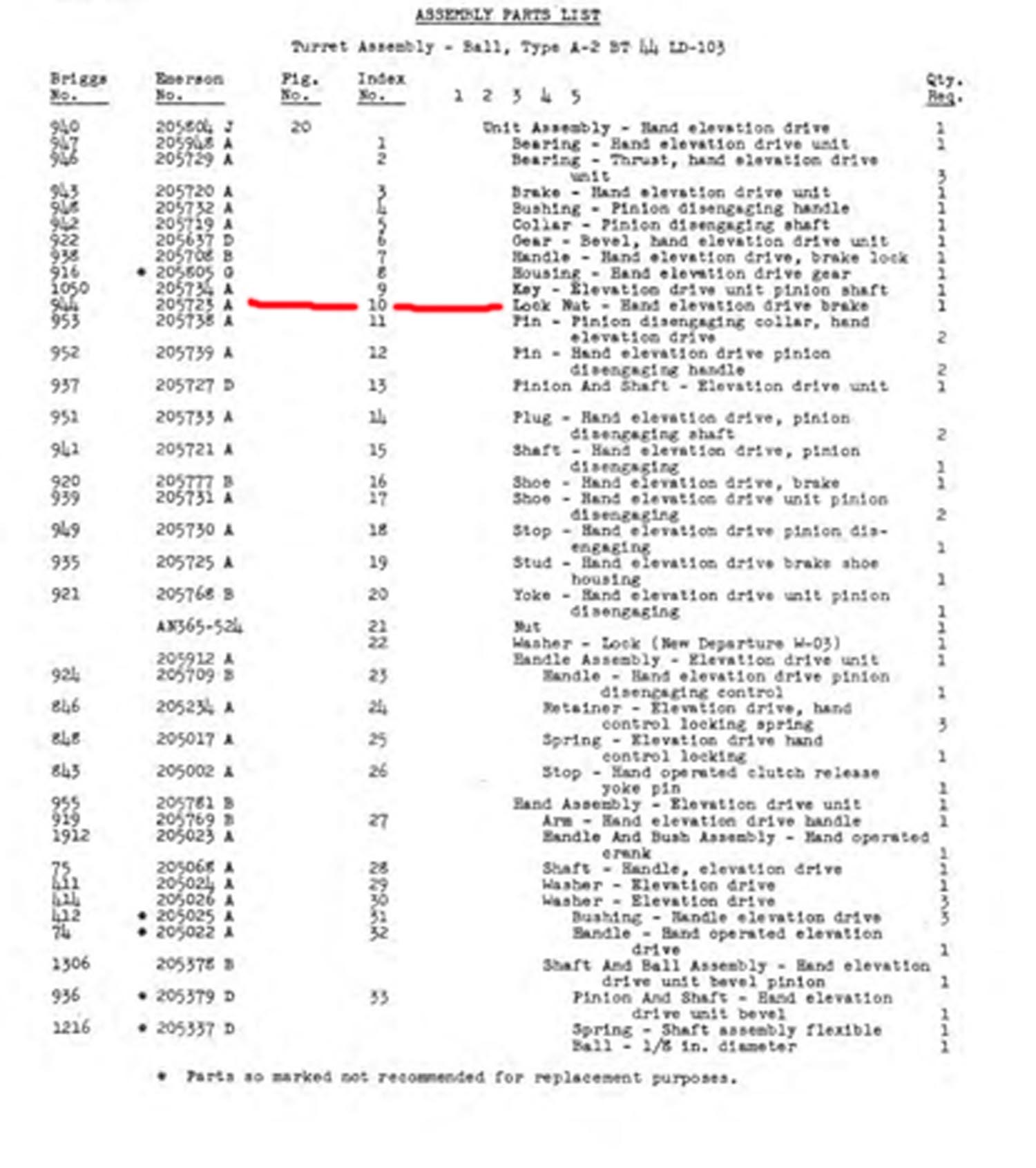
£35


` |
|
Click on the
pictures to enlarge them

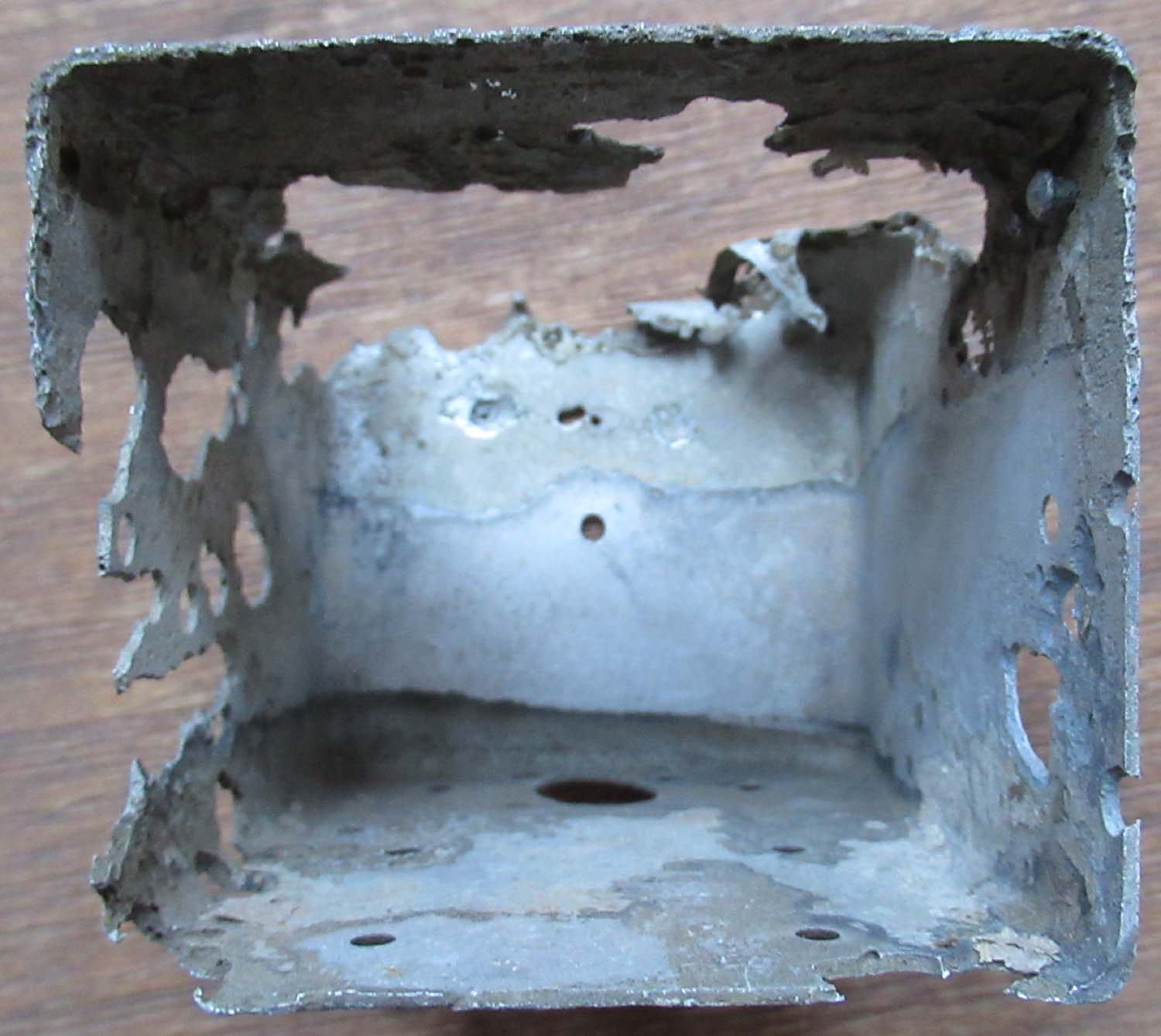
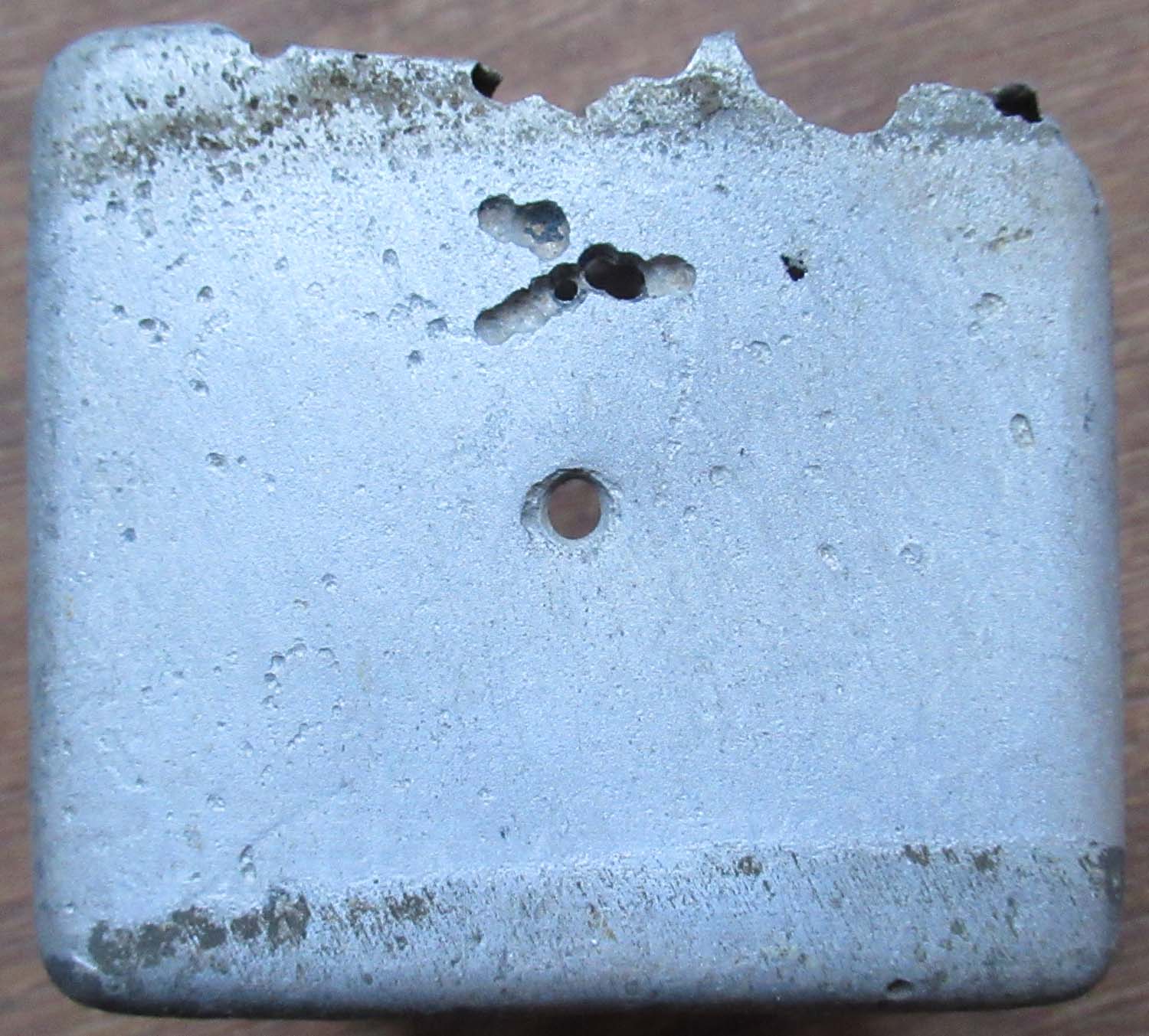
|
B17 Hustling Sue
Mid upper Turret rheostat control (nos
15 pg 10 Relics )
Here is a peace from B17 Hustling Sue most of the peaces appear to be from
the Turrets and after studying pictures I think its
the rheostat control from the Mid Upper turret.
Talk about
counting rivets but these two rivets are in exactly the same
position as the picture taken from the mid upper turret.
Also the hole to the right of the rivets also appears to be
on the rheostat control.
Click on the
pictures to enlarge them


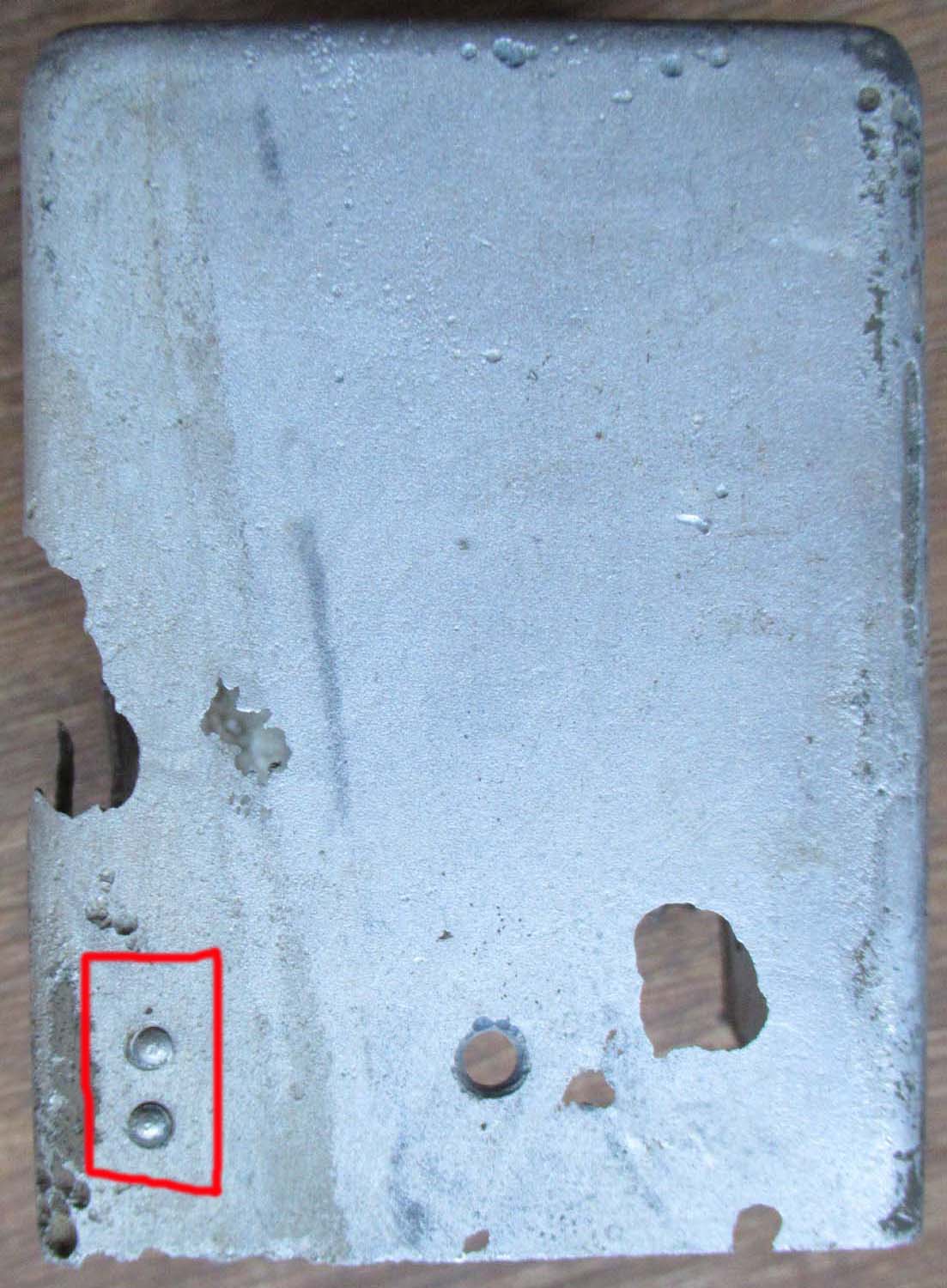
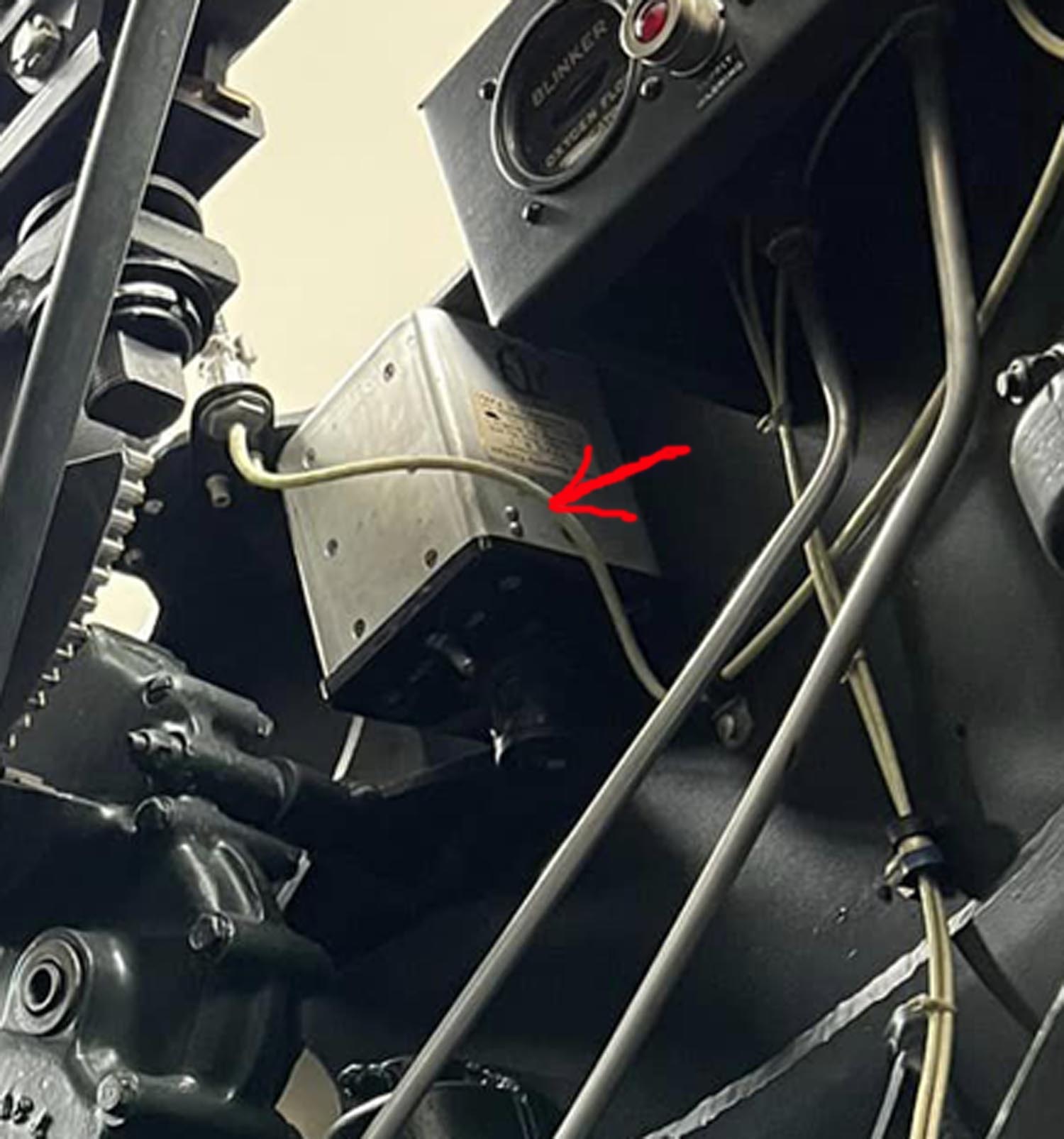
£55


`
|
|
Click on the
pictures to enlarge them
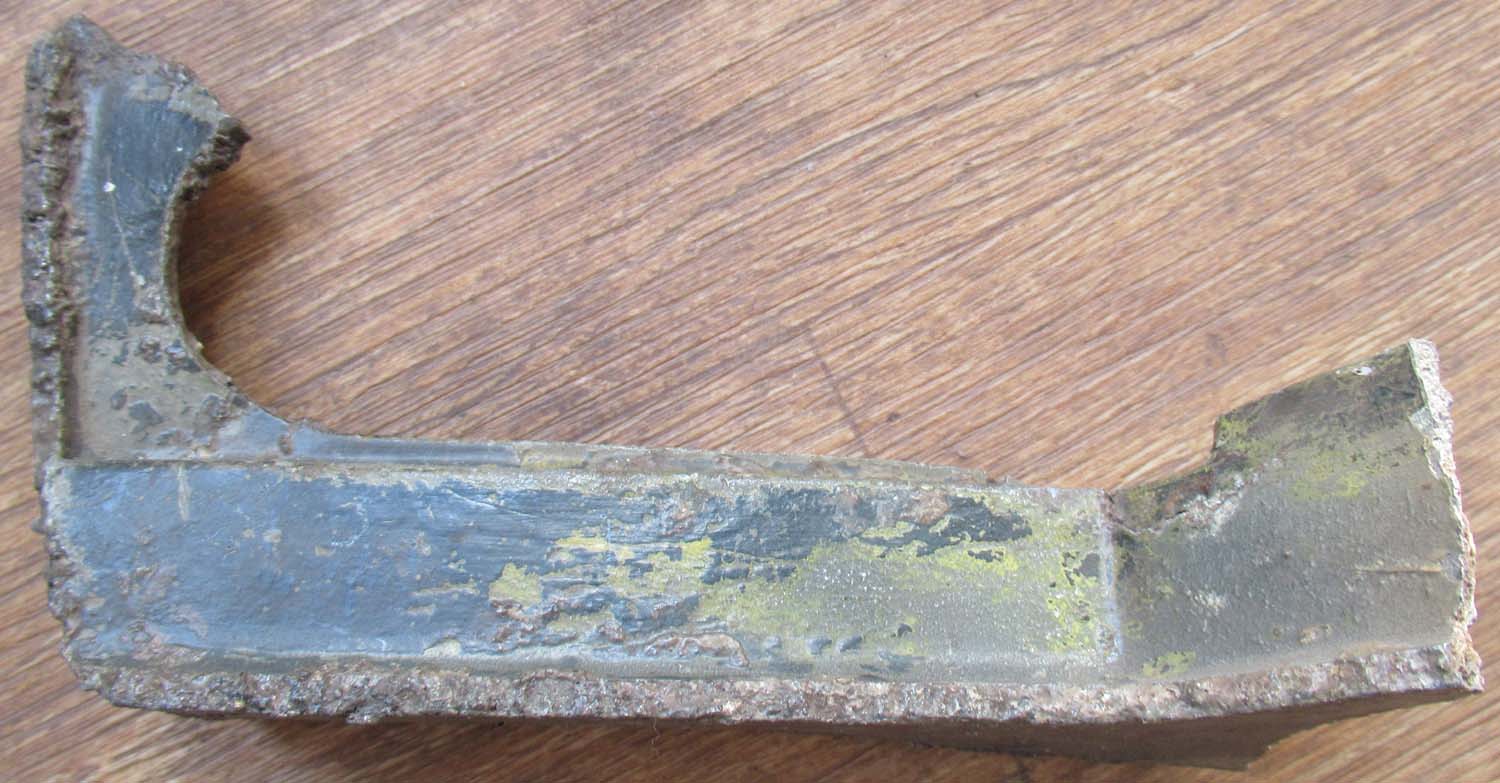
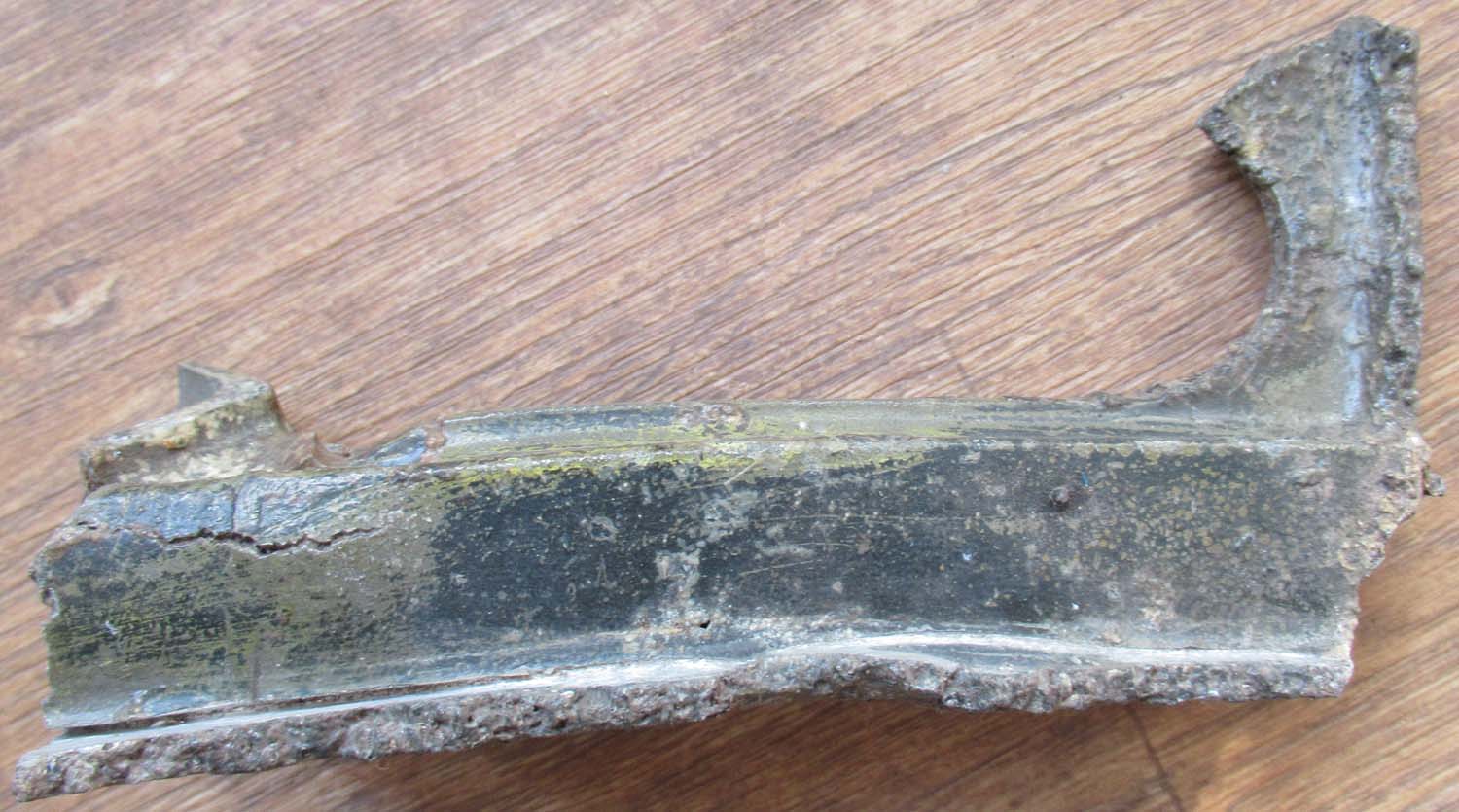
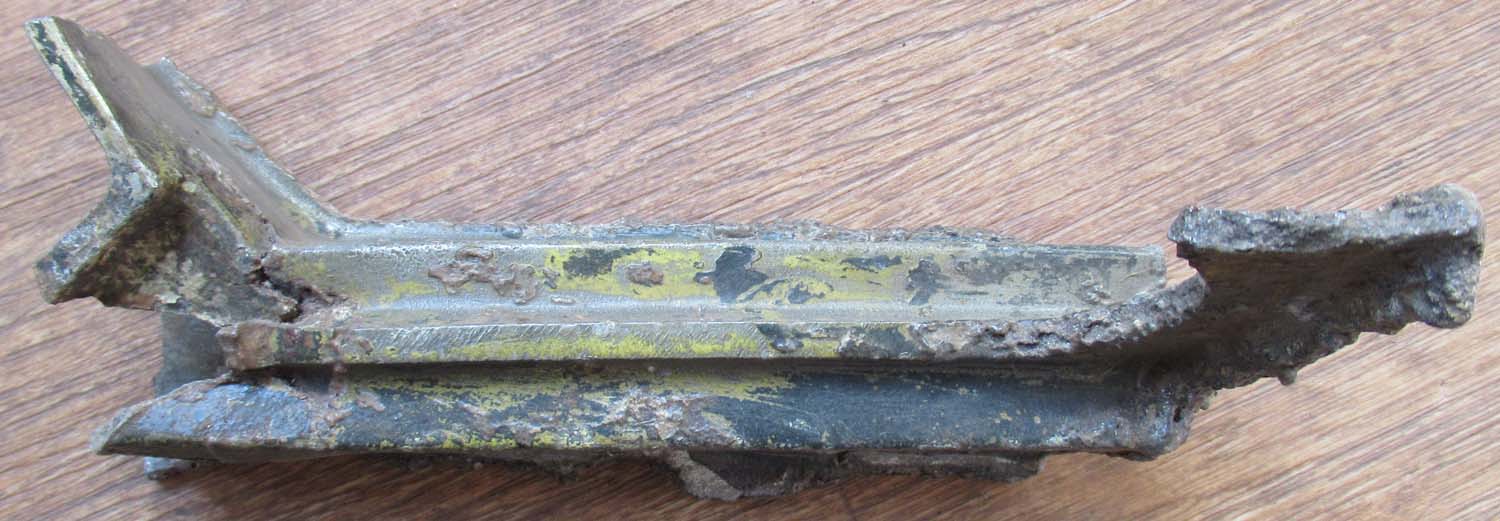
|
B17 Hustling Sue part (nos
14 pg 10 Relics ) Picture Q
Here is a peace of structure
from B17 Hustling Sue most of the peaces appear to be from
the Turrets but I do not have enough to identify this part.
Measures 8
1/2 inches or 22cm approximately.
£25


|
|
Click on the
pictures to enlarge them
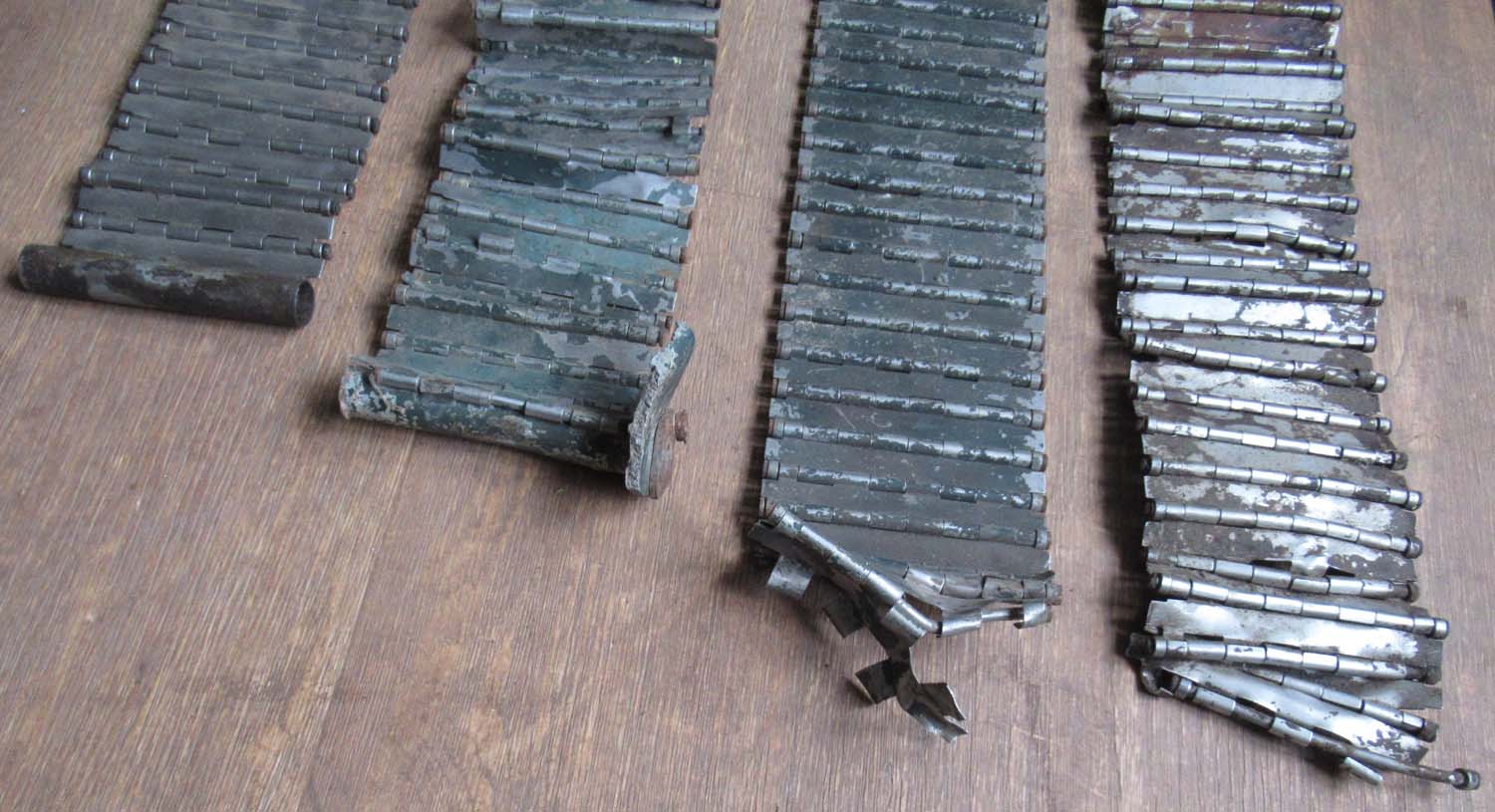
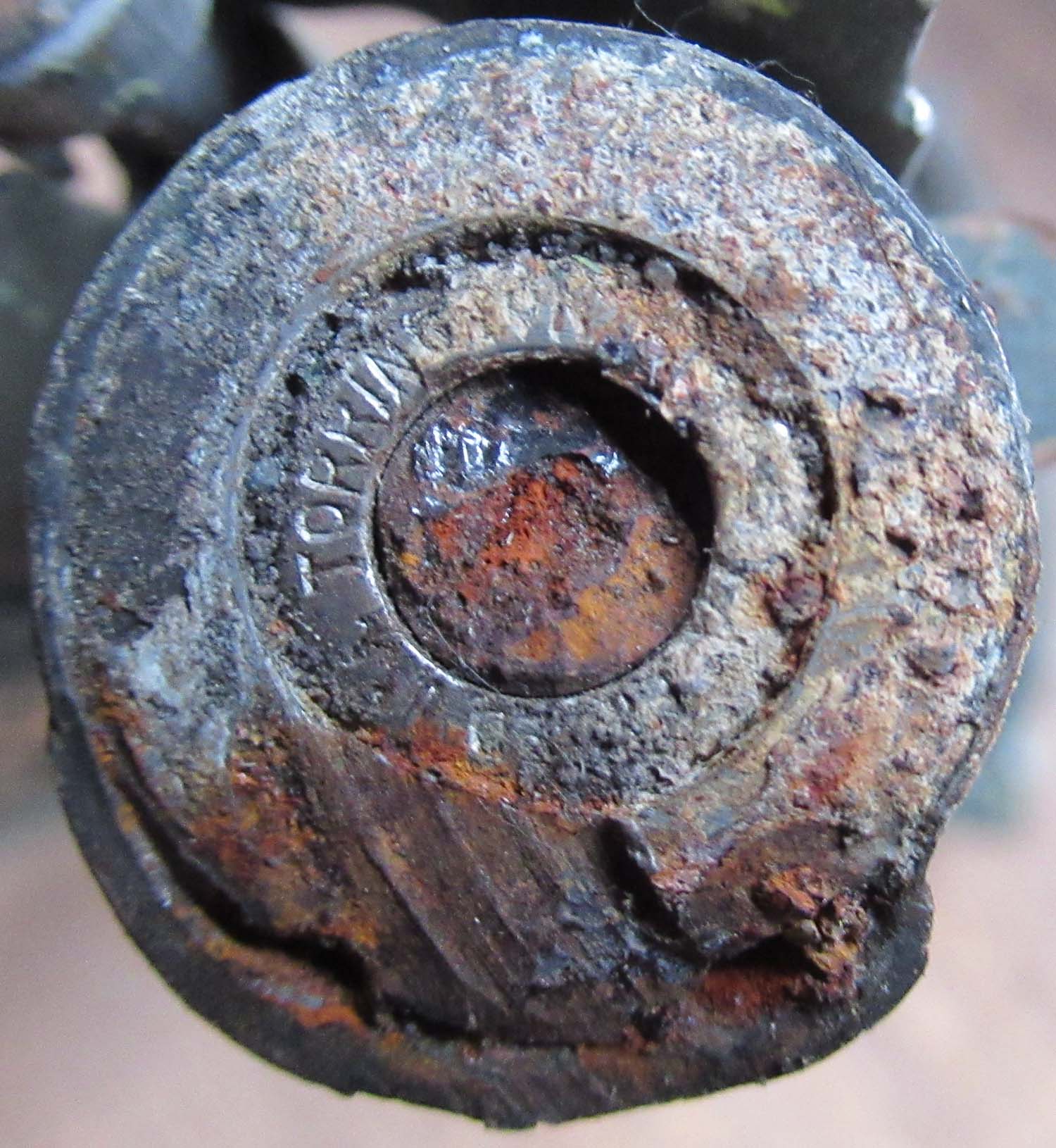
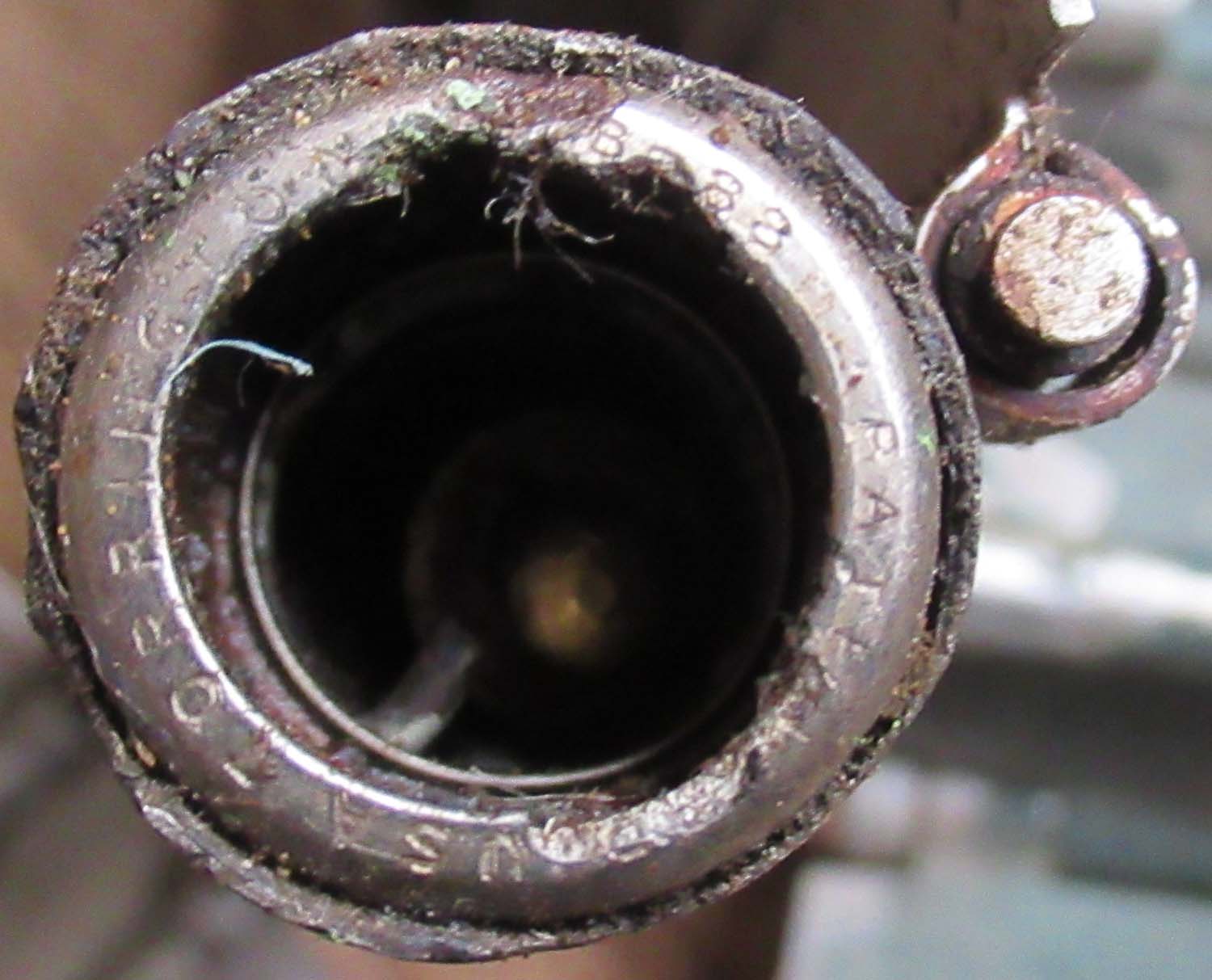
|
Sperry Turret
Flexible shutter (No 103 pg1 Arm)
Here s another super rare
Turret item the flexible Turret shutters which seal the
turret gaps which the guns poke through.
Top to
bottom they measure 1: 17 1/2 inches or 44cm 2:16 1/2 inches
or 42 cm. 3:13 1/2 inches or 34cm. 4: 11 1/2 inches or 29
cm.
These came
from Holland and may belong to Hustling Sue featured on the
relics page
link here.
They are
clearly from a crash the shortest peace is in good order and
still flexible the others have some damage but I would say
80% functional.
I am sure
this came from Hustling Sue but as it came in another box I
am not 100%
you can purchase this on the armanents page link here.
Torrington
Patented USA
Click on the
pictures to enlarge them
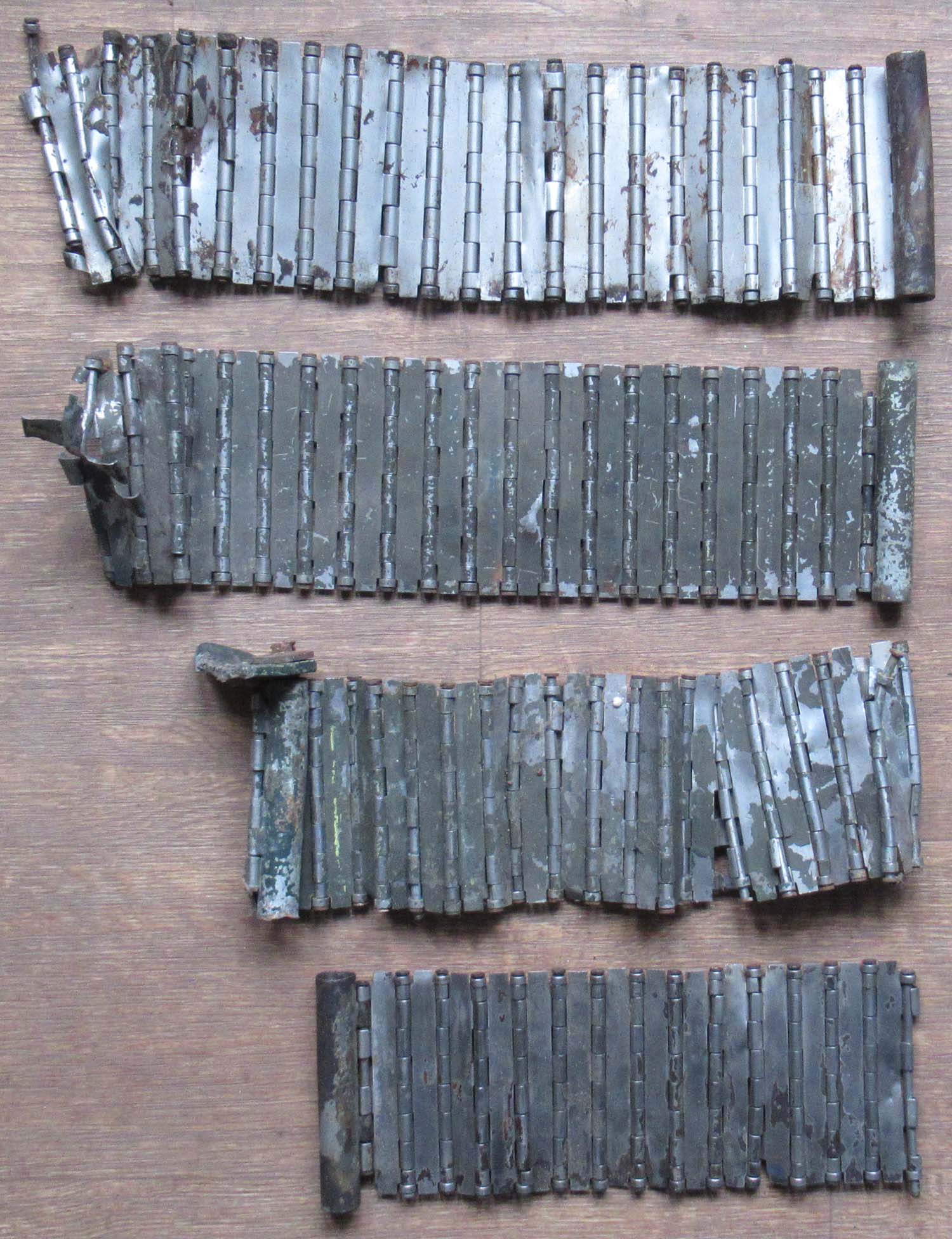
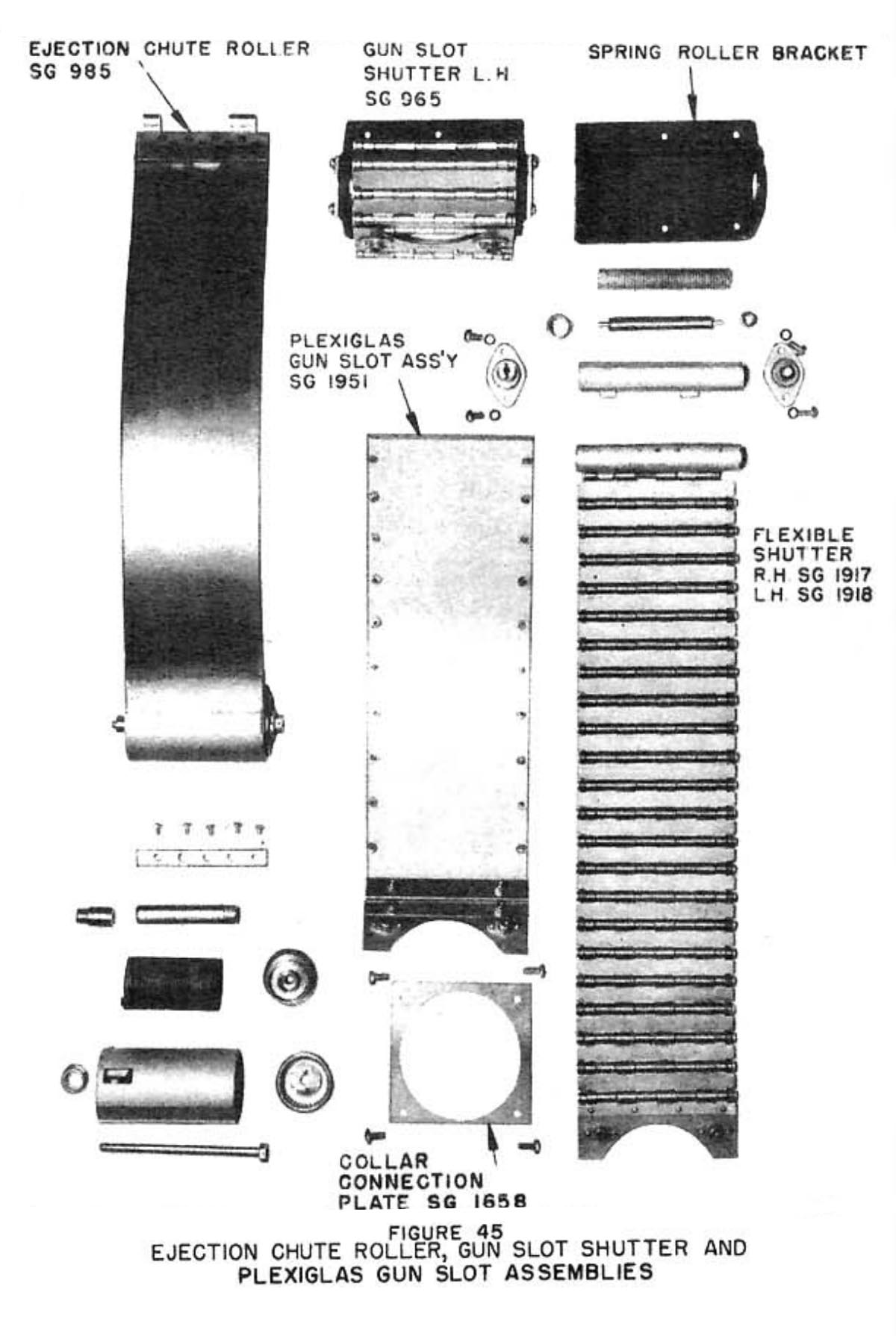
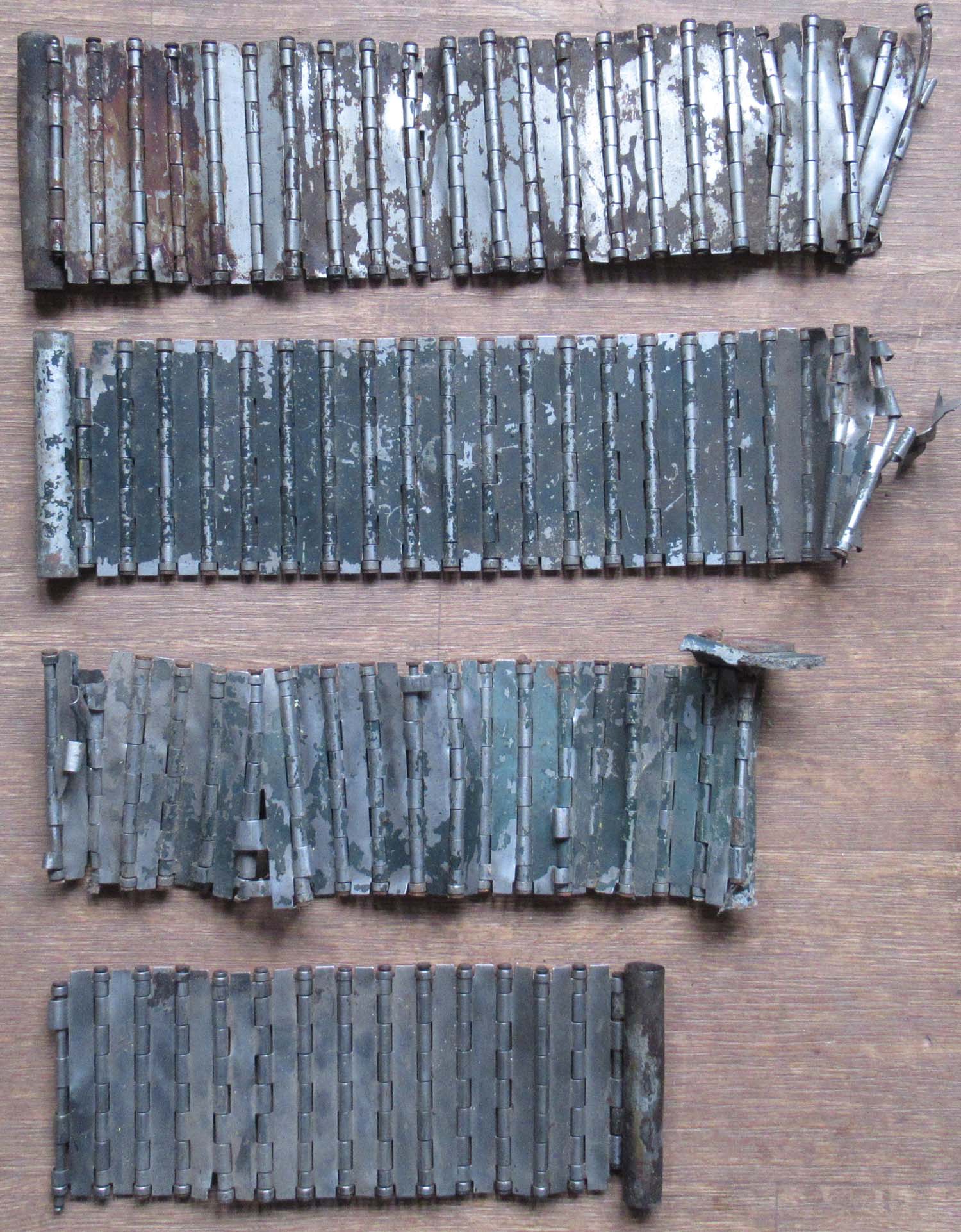
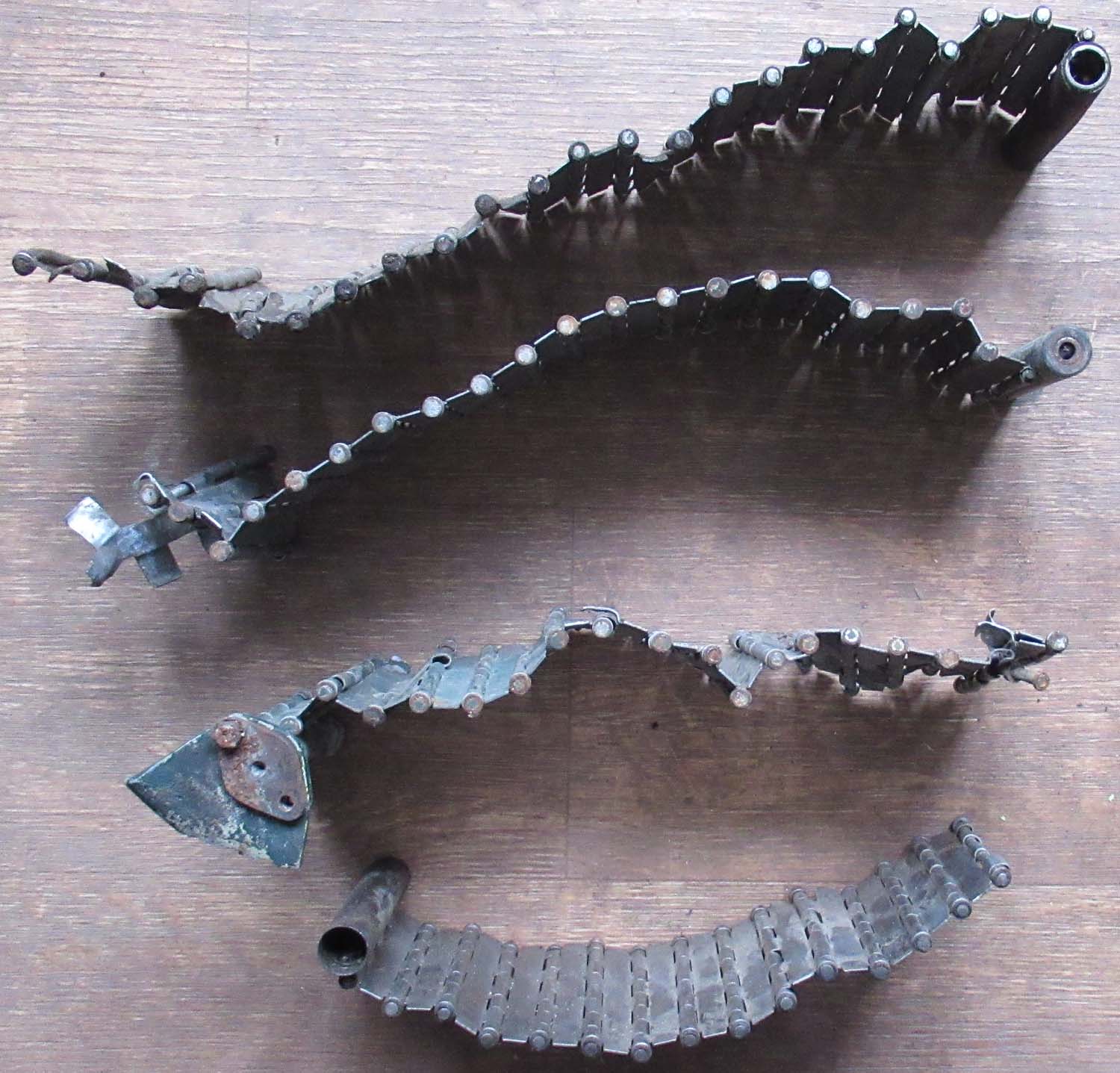
Overseas
buyers
please contact me for a
shipping quote.
£295
for the four peaces.
|
|
Click on the
pictures to enlarge them
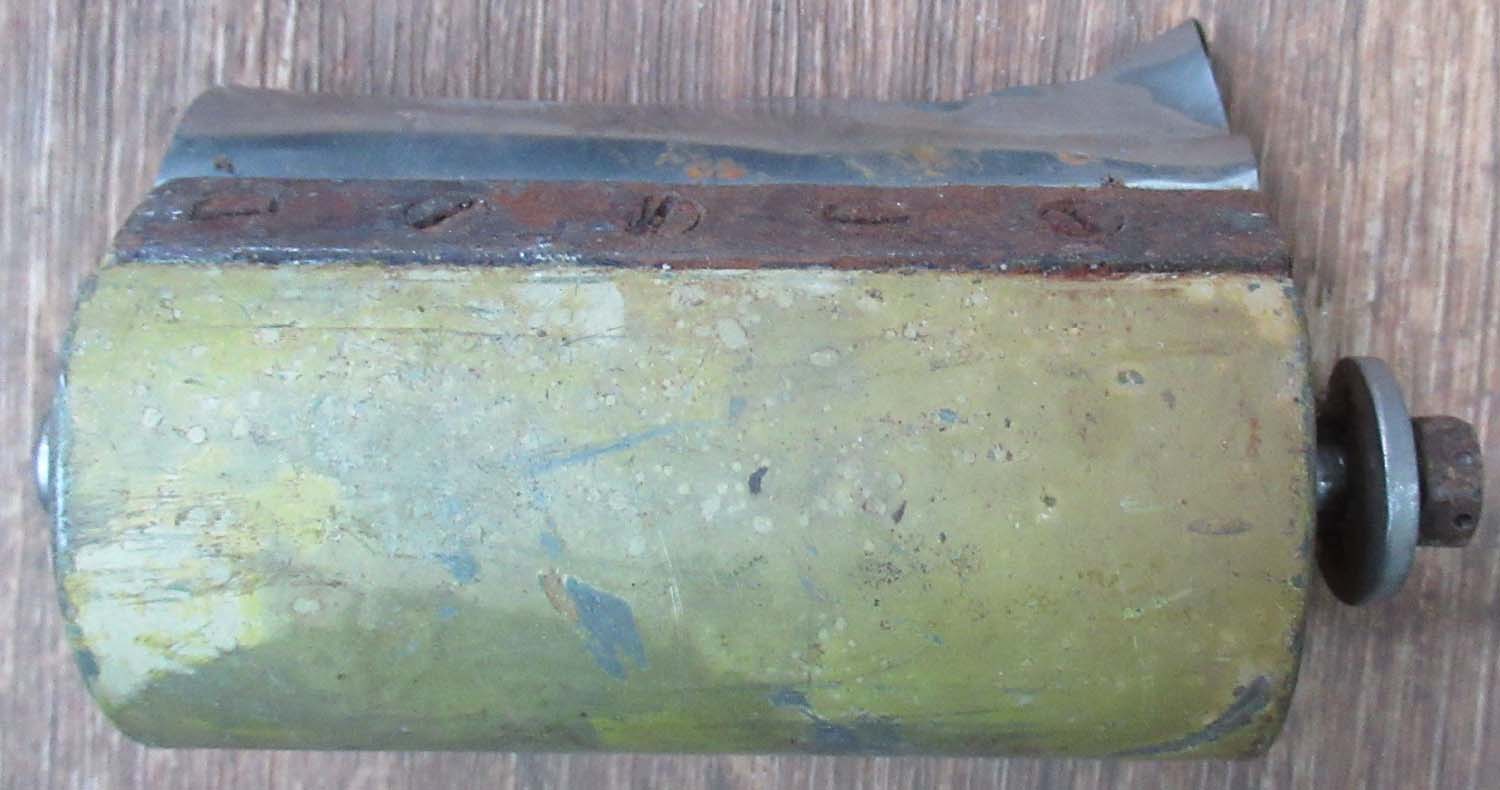
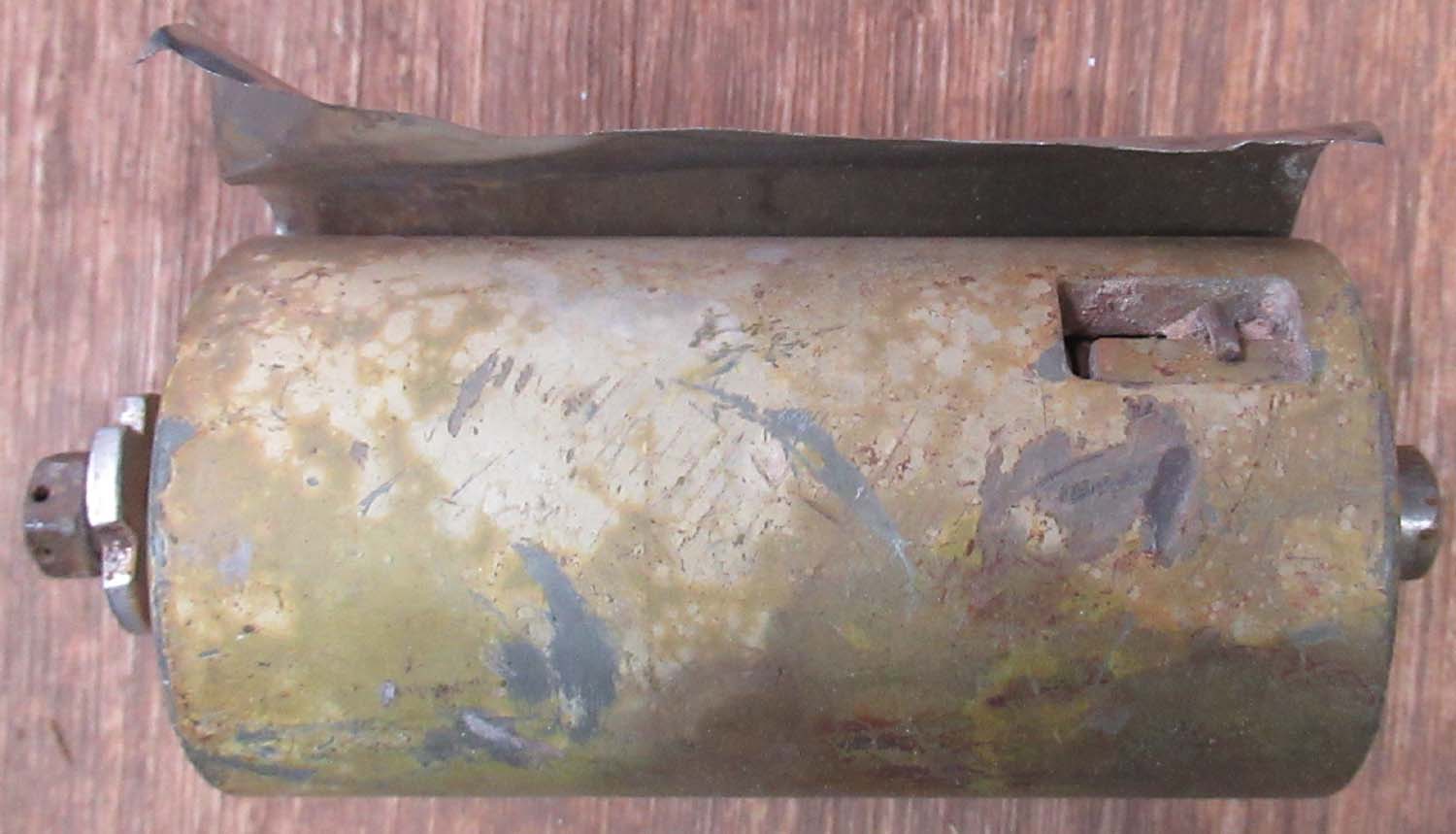
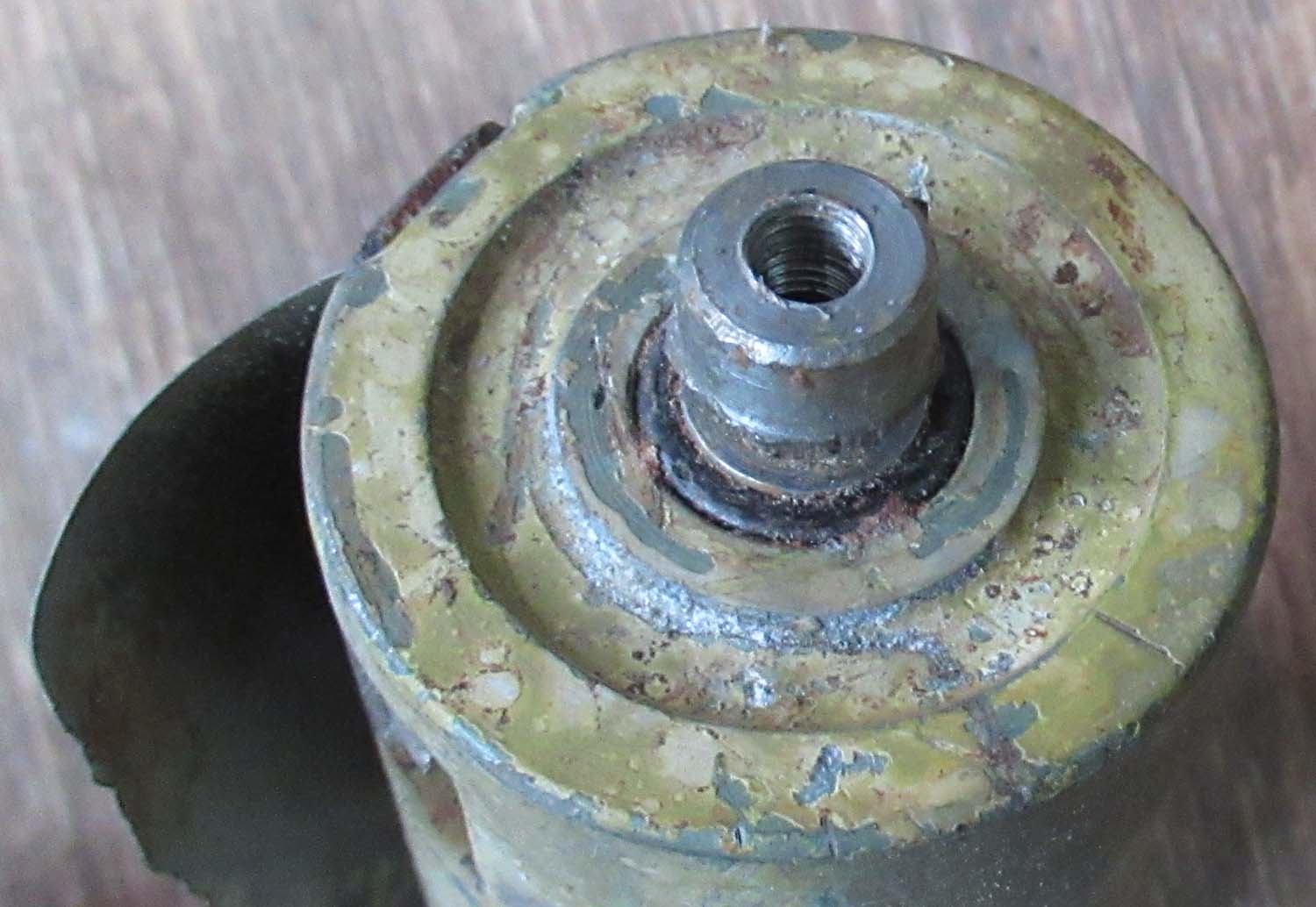
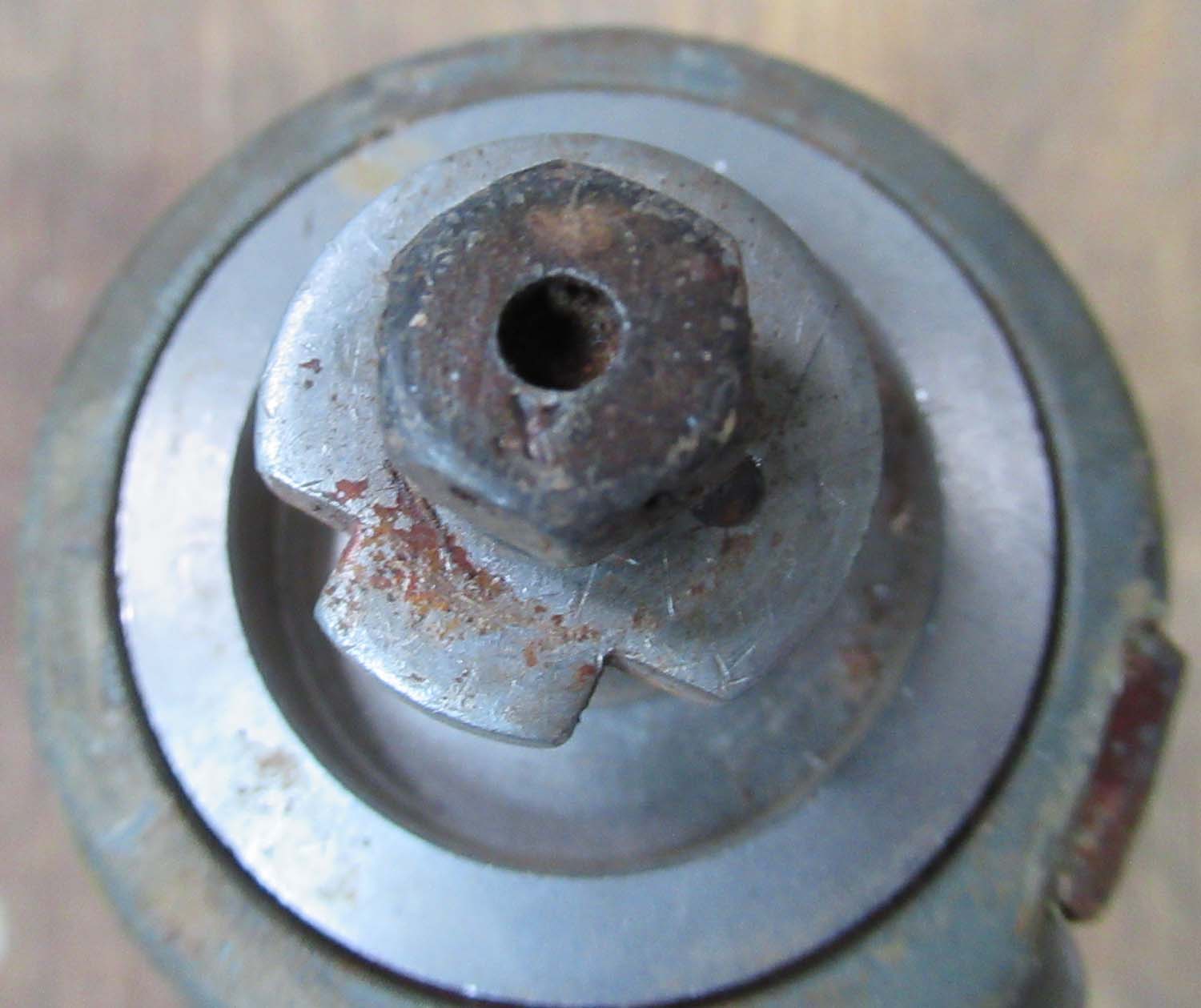
|
Sperry Turret
ejection chute roller (No 104 pg1 Arm)
Here is a an ejection chute
roller from a Sperry turret , it is actually in good order
and still rotates around the spindle. Clearly seen in
the drawing under
These came
from Holland and may belong to Hustling Sue featured on the
relics page
link here.
They are
clearly from a crash the shortest peace is in good order and
still flexible the others have some damage but I would say
80% functional.
I am sure
this came from Hustling Sue but as it came in another box I
am not 100%
Torrington
Patented USA
Click on the
pictures to enlarge them

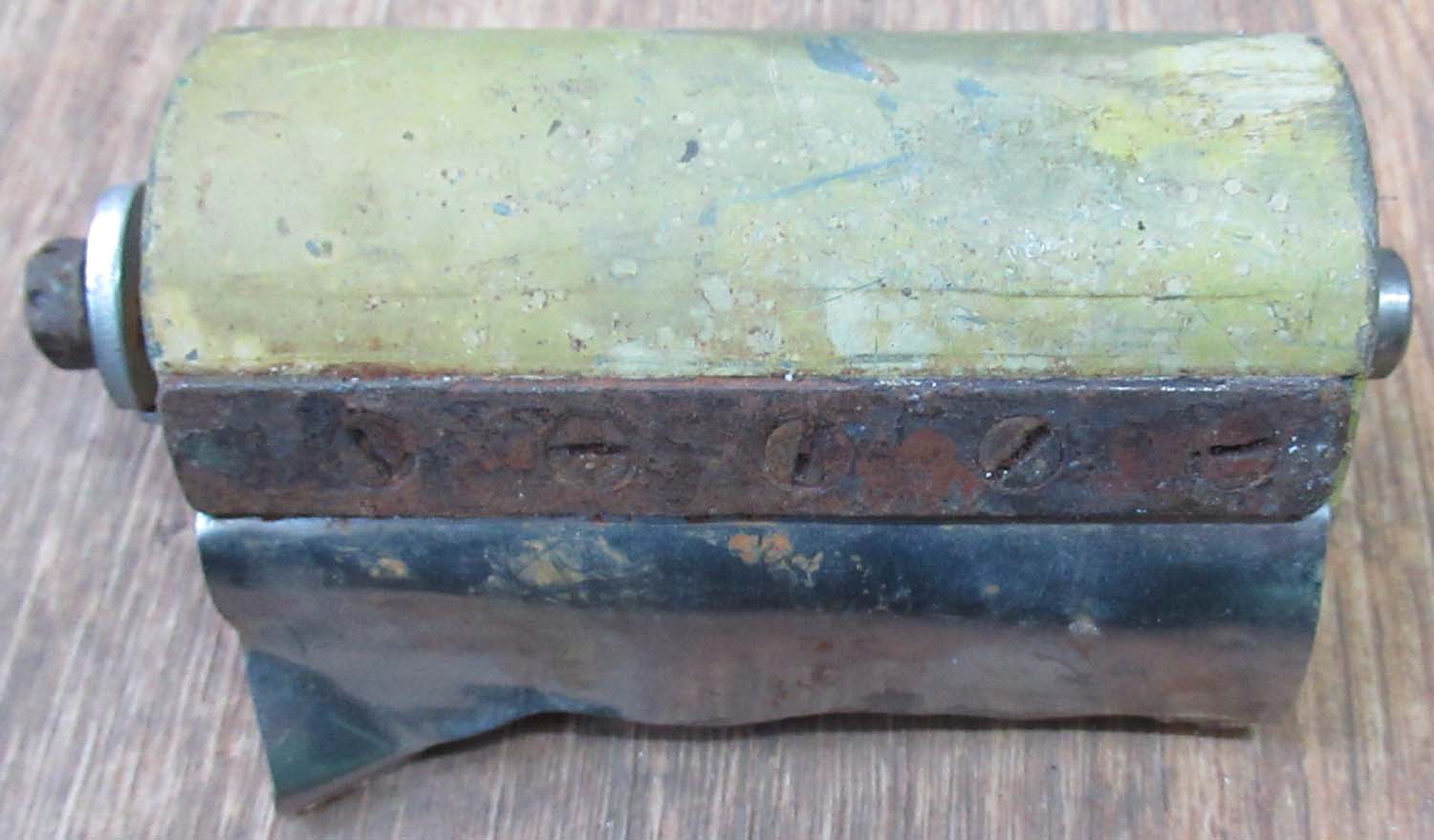
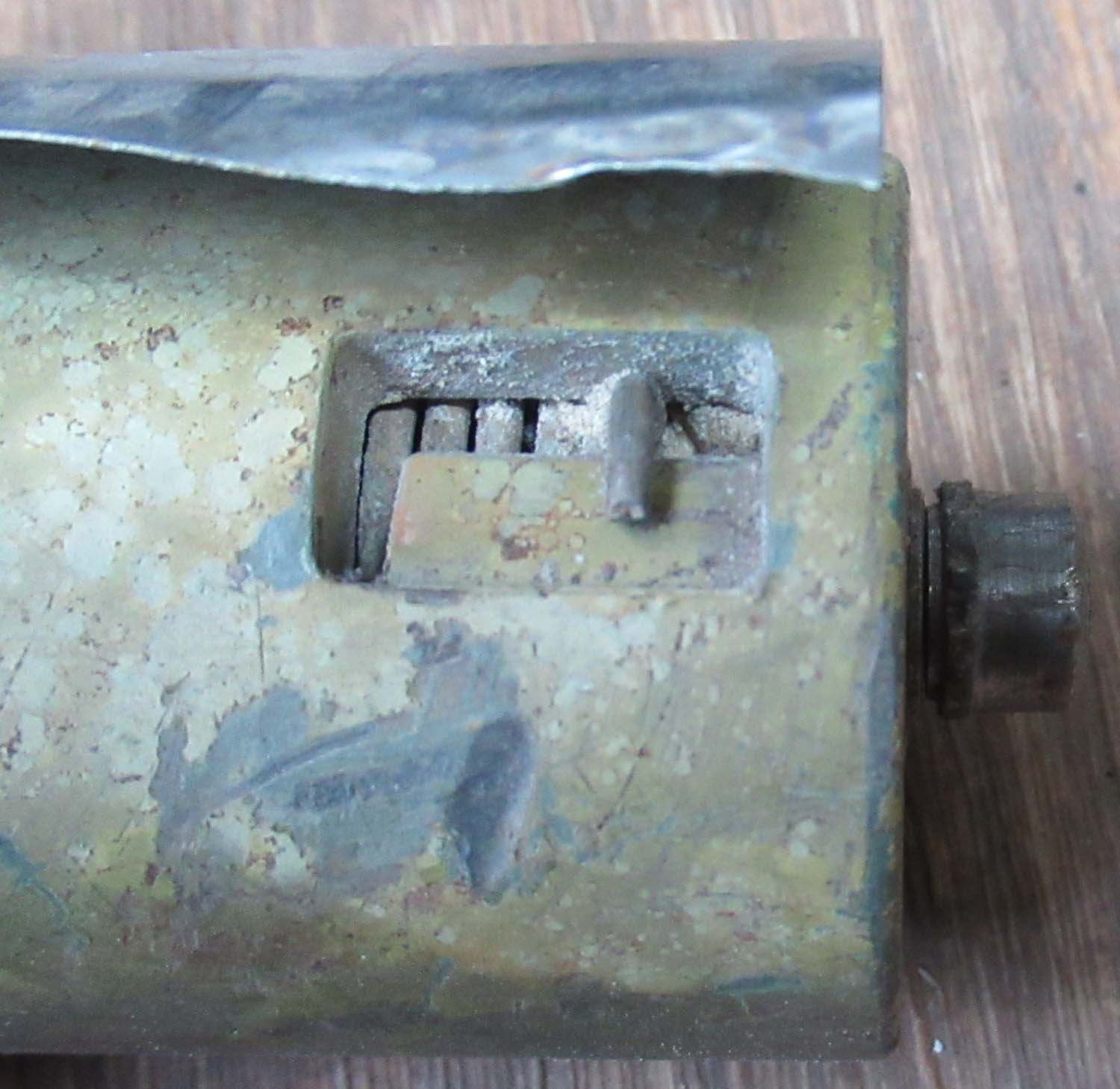
you can purchase this on the armanents page link here.
£225
|
|
Click on the
pictures to enlarge them


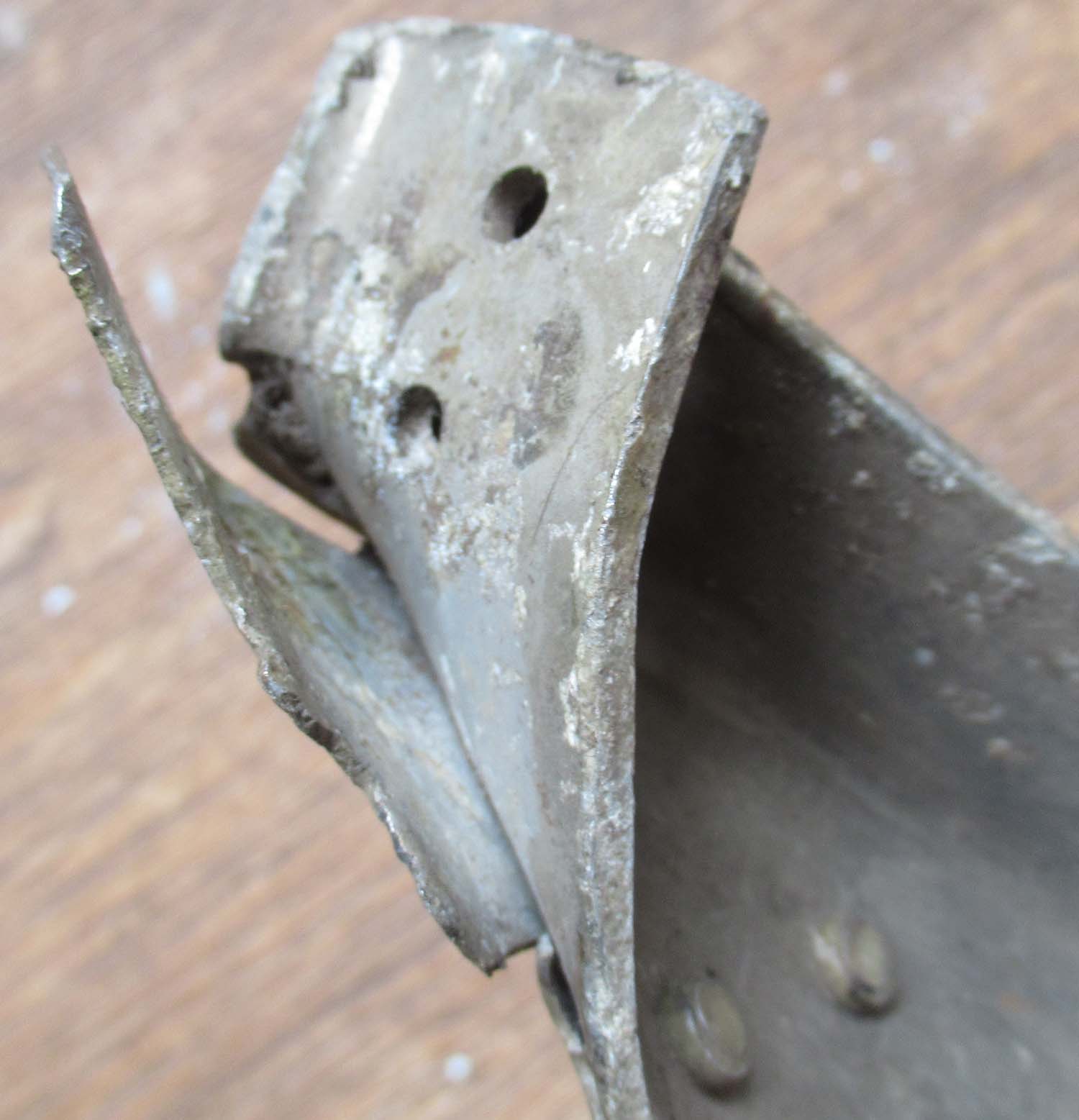
|
B17 Hustling Sue part (nos
13 pg 10 Relics )
Here is
another peace from Hustling Sue such an interesting peace
has wood sandwiched in it and a peace of airframe I would
love to find out what this is but it would appear its
attached to the floor.
The only
part number I can find is 281-2 on the airframe part, the
bolts have an inspection stamp with RPS around the triangle
and with what looks X in the centre
If you can give a
positive identification
please contact me.
Click on the
pictures to enlarge them
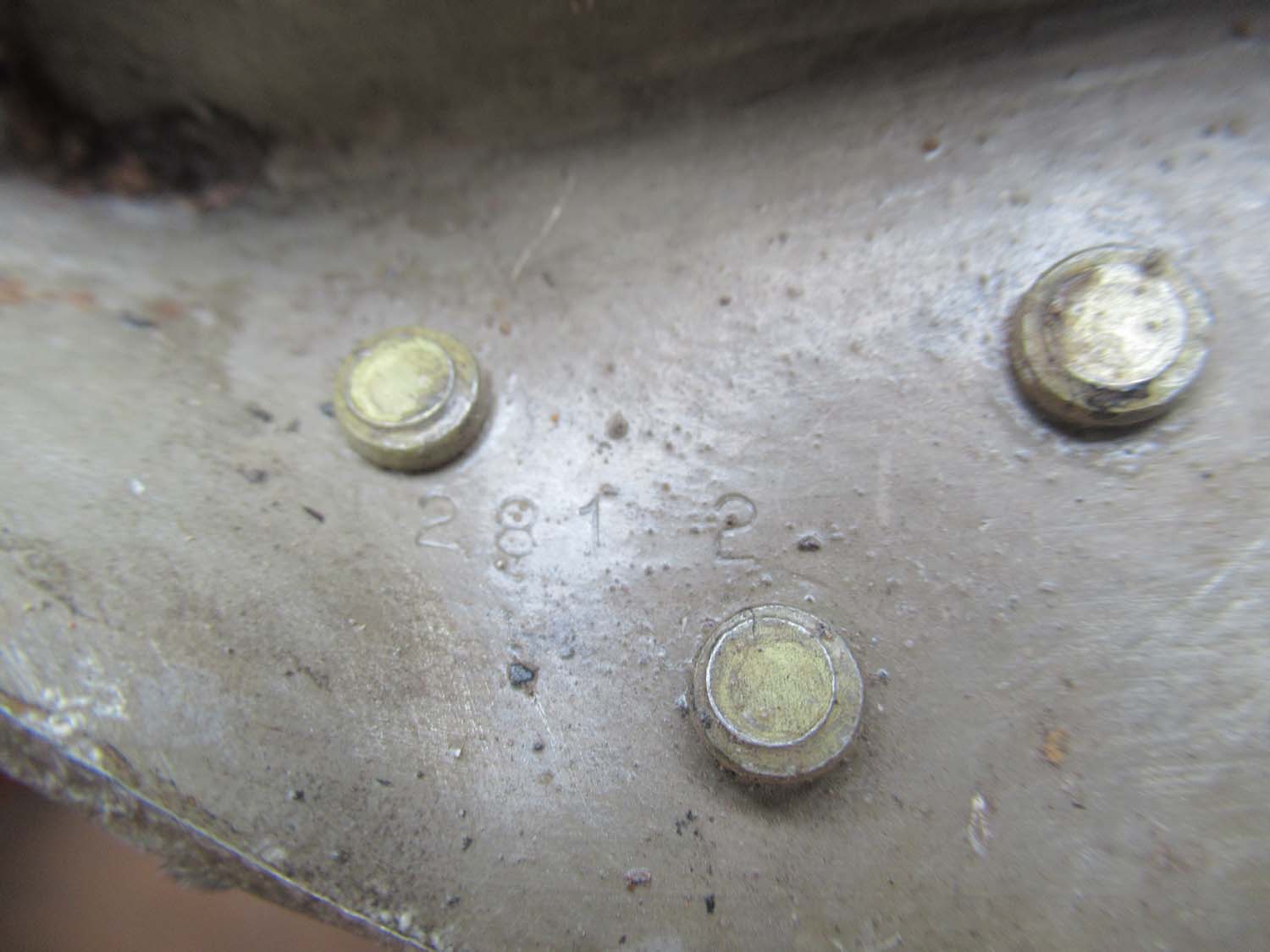
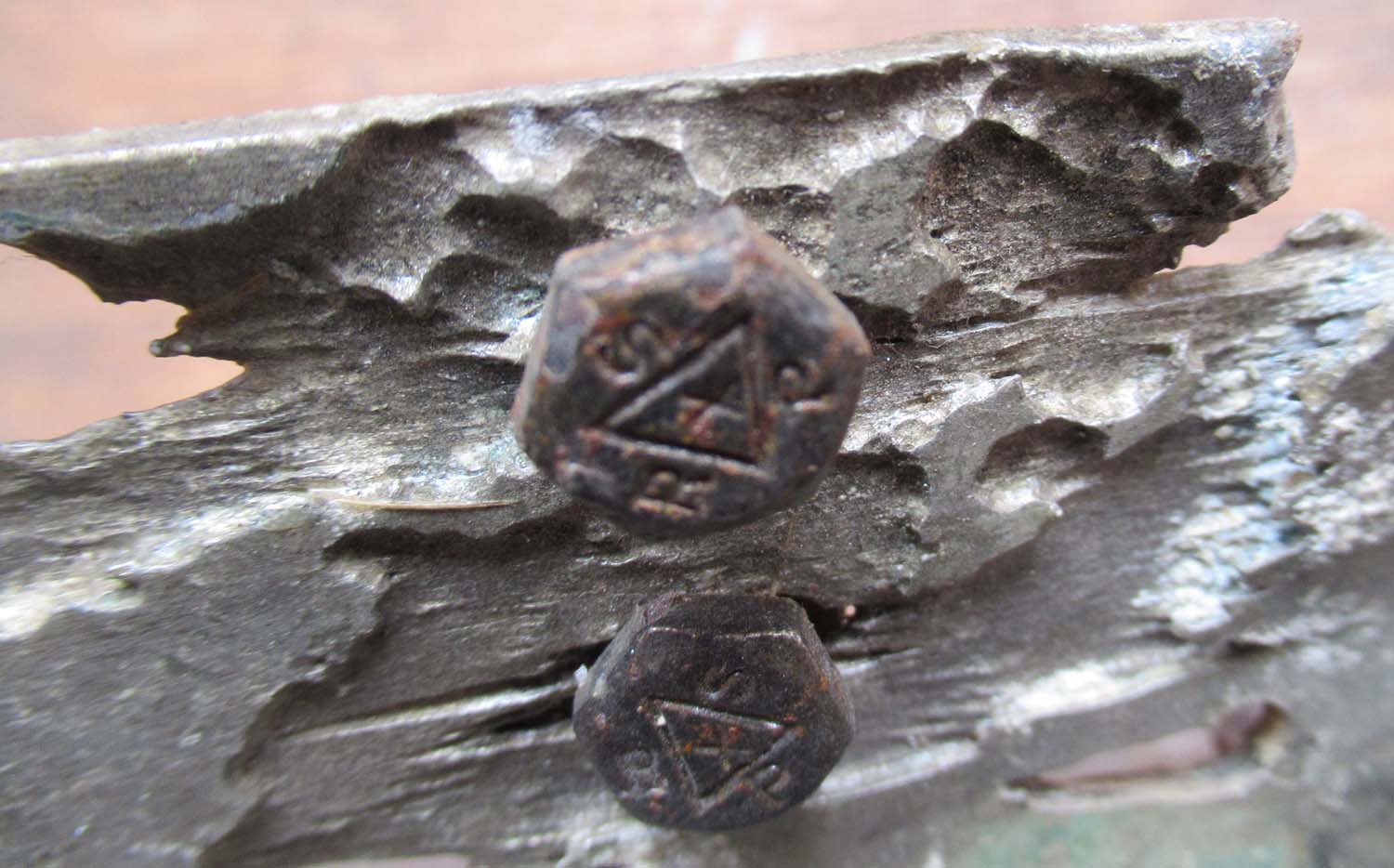
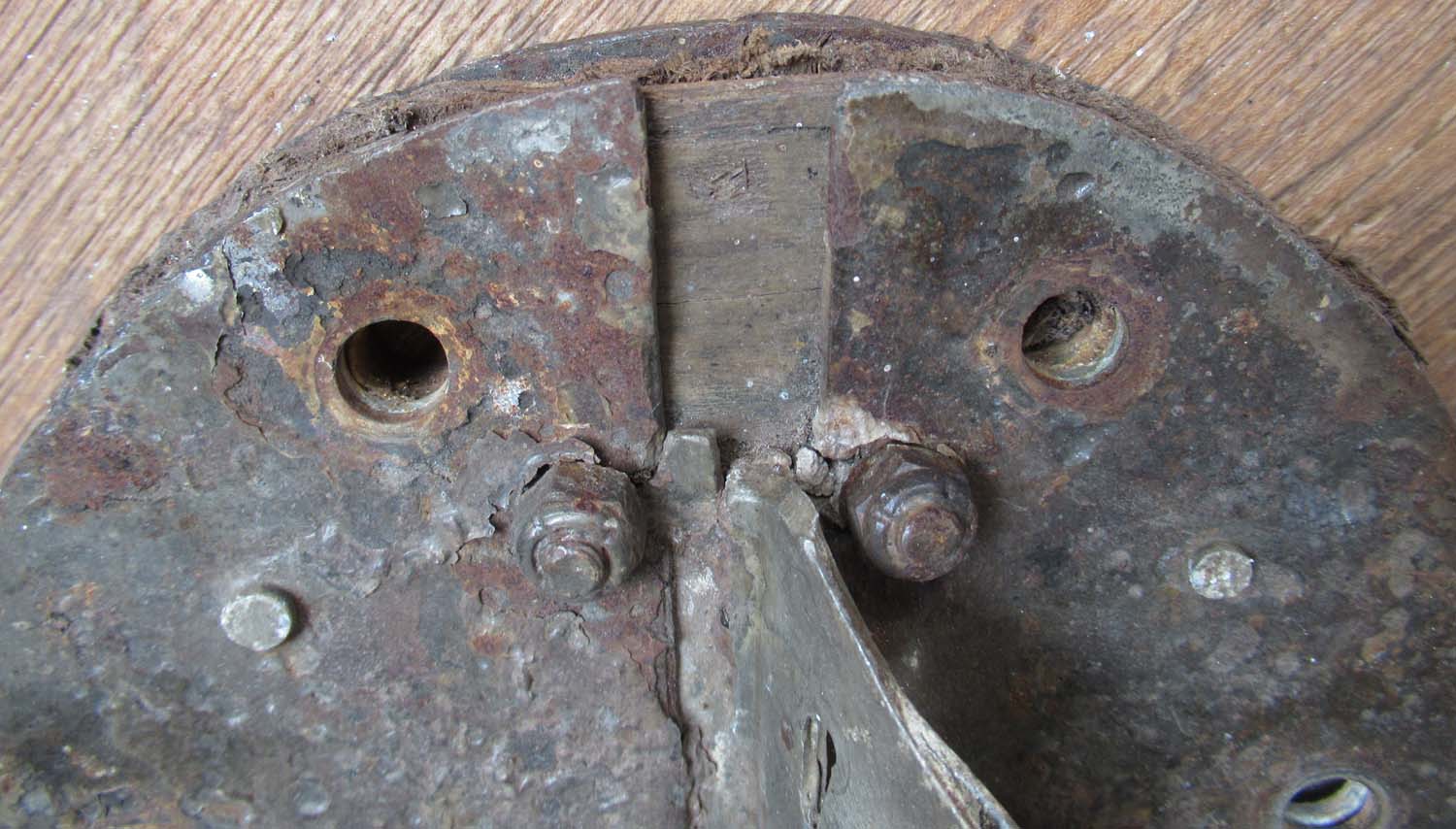

The circle measures 6 1/2
inches or 17cm across.
£175


|
|
Click on the
pictures to enlarge them


|
B17 Hustling Sue part (nos
12 pg 10 Relics )
Here is
another peace from Hustling Sue its some sort of cover and
at one time had a label or data plate attached.
If you can give a
positive identification
please contact me.
Click on the
pictures to enlarge them

Out of stock more wanted please
contact me
|
|
Click on the
pictures to enlarge them

|
B17 Hustling Sue part (nos
11 pg 10 Relics )
Here is
another peace from Hustling Sue I have no idea what it is,
its made of brass so possibly fuel or oxygen related. If you can give a
positive identification
please contact me.
Click on the
pictures to enlarge them


£35


|
|
Click on the
pictures to enlarge them

|
B17 Hustling Sue part (nos
10 pg 10 Relics )
Here is
another peace from Hustling Sue I have no idea what it is
but again possibly a turret part . If you can give a
positive identification
please contact me.
Click on the
pictures to enlarge them


£25


|
|
Click on the
pictures to enlarge them

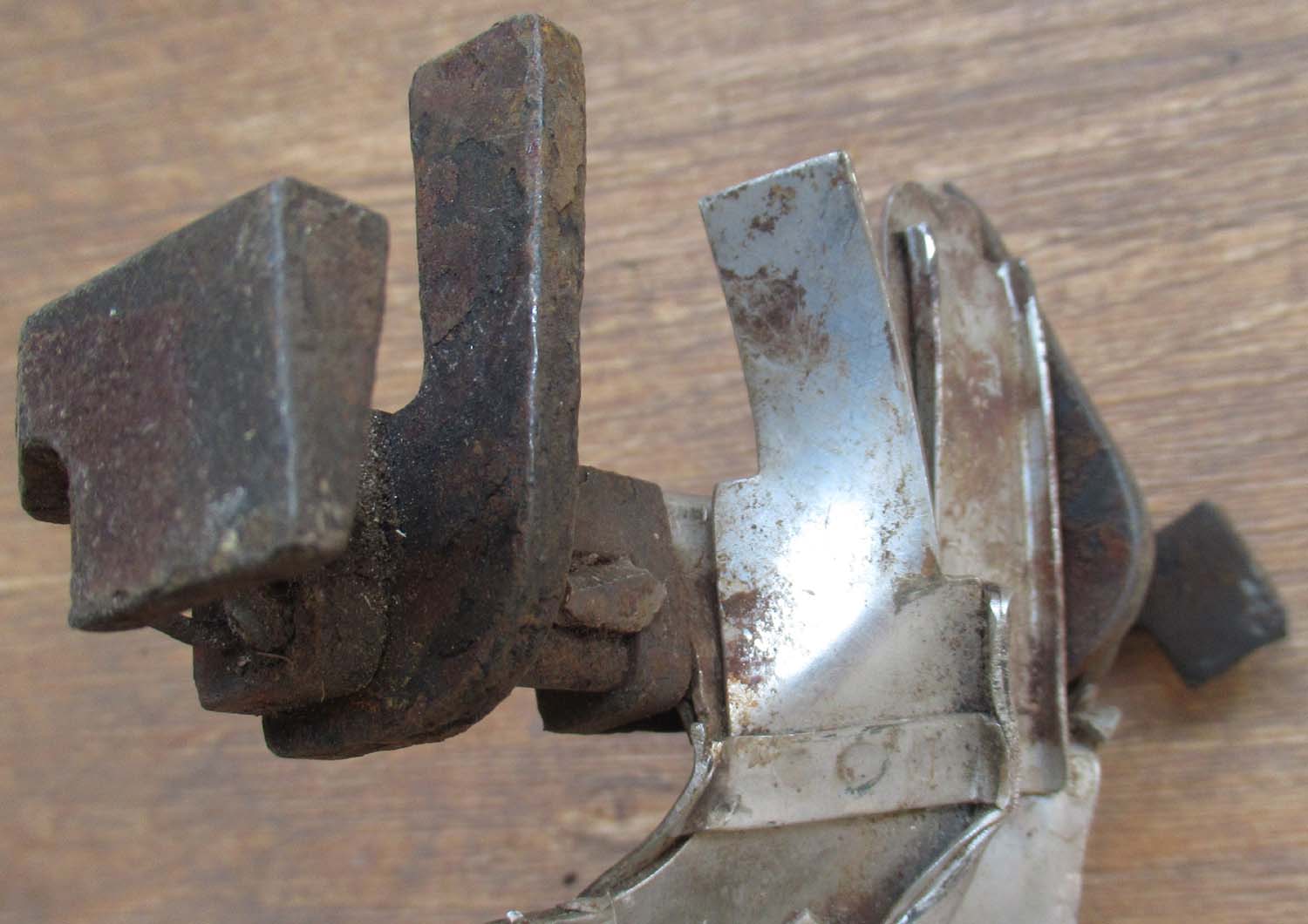
|
B17 Hustling Sue
Turret part (nos 9 pg 10 Relics )
Here is
another peace from Hustling Sue I think its part of one of
the turrets or possibly part of one of the Guns but so far
have not been able to identify it. If you can give a
positive identification
please contact me.
It says
rear on it and AC possible that stands for aircraft.
Click on the
pictures to enlarge them
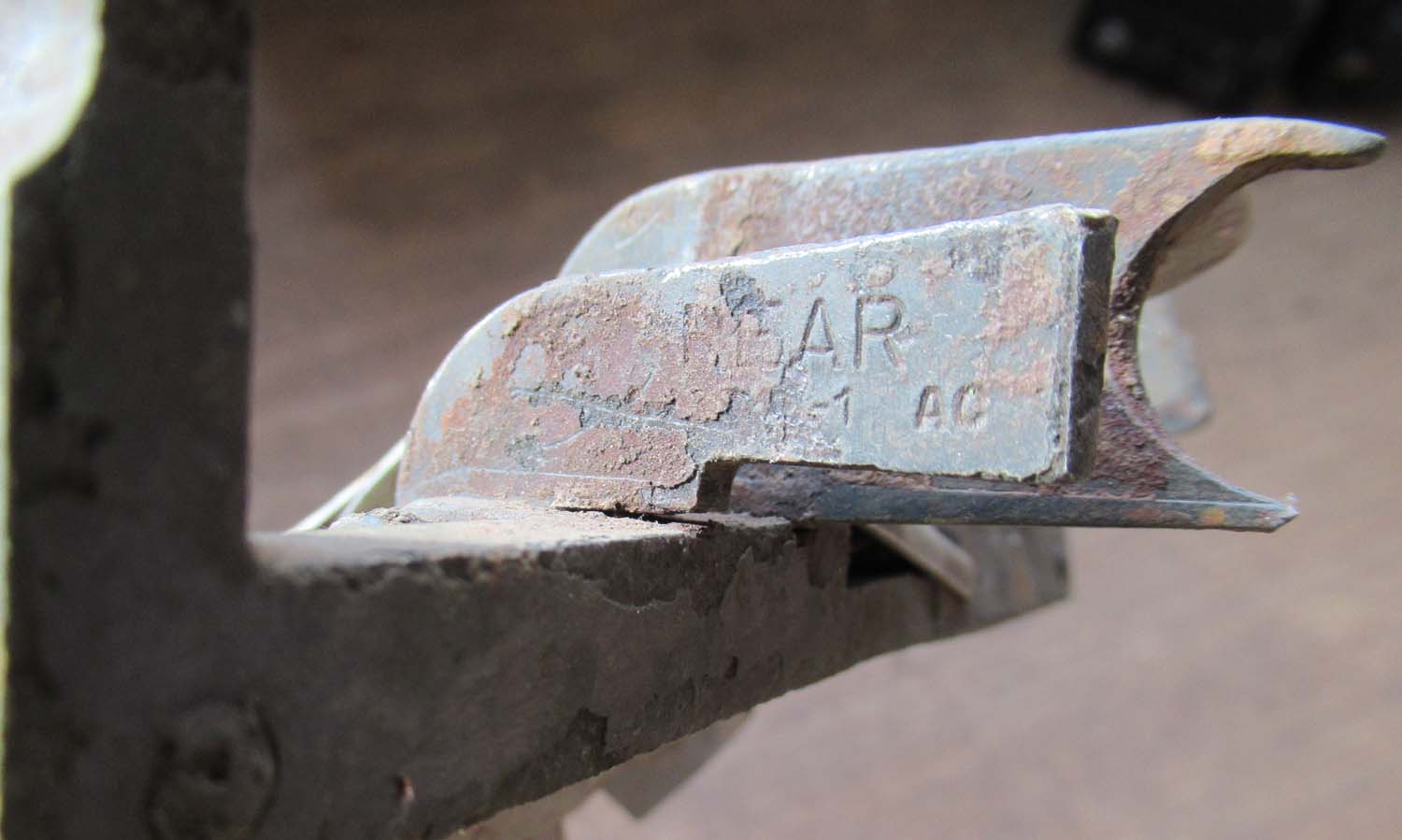
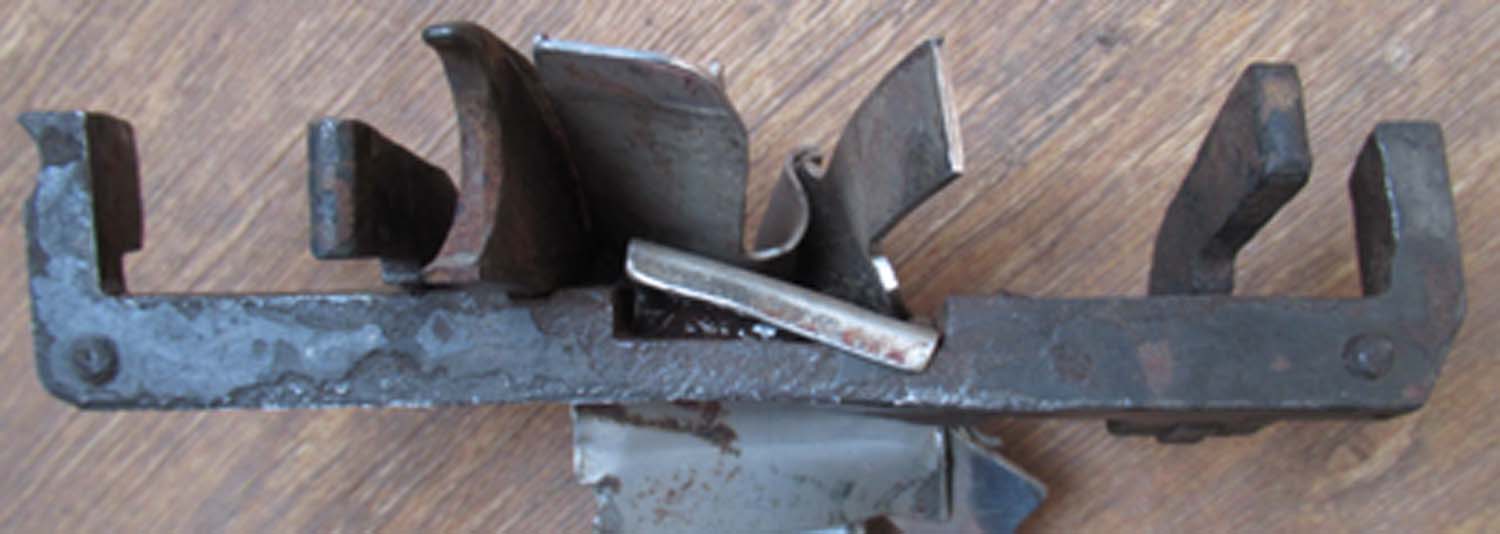
£175


|
|
Click on pictures to enlarge

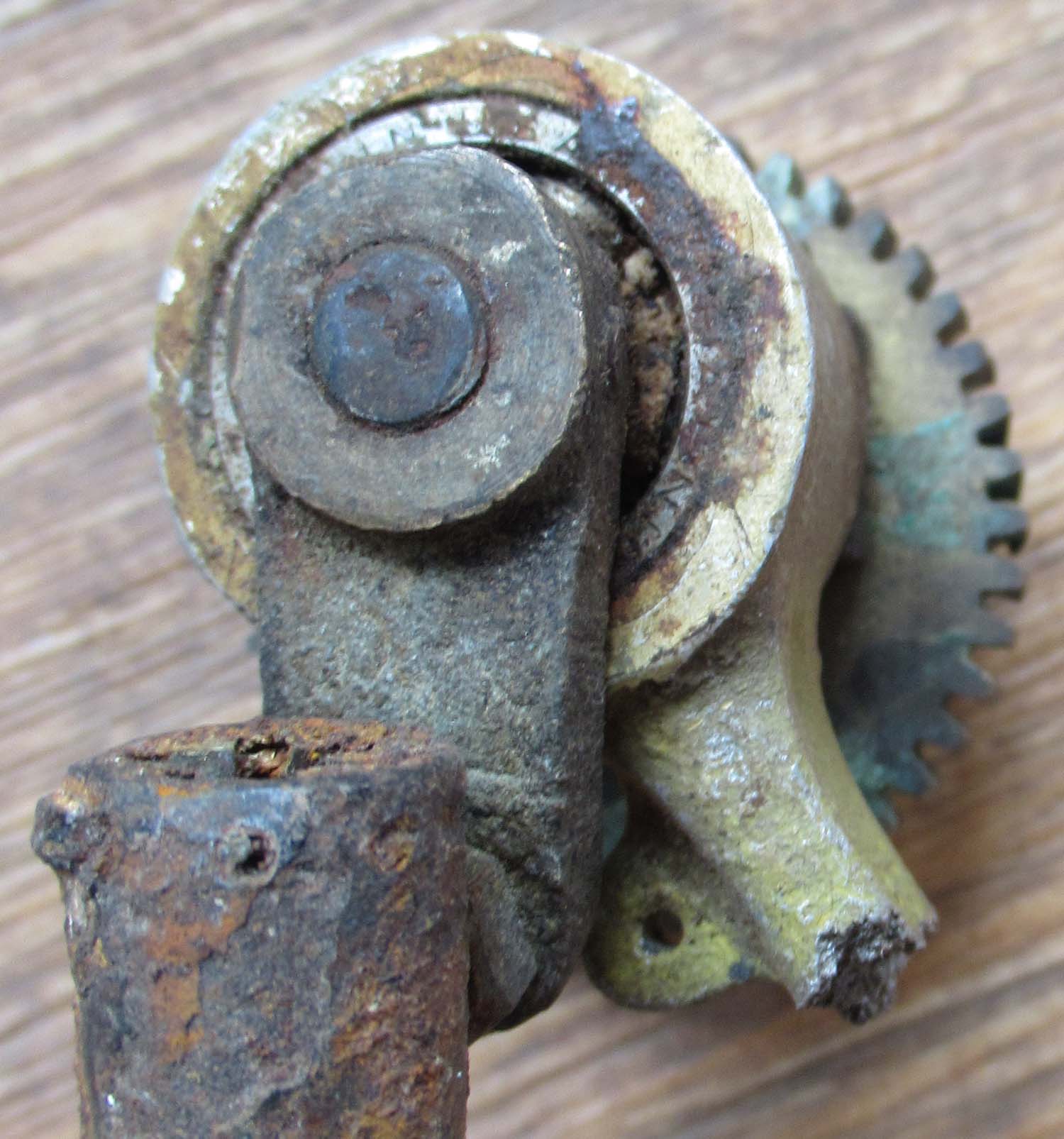
£75


|
B17 Hustling Sue Carb linkage ? (nos 8 pg 10
Relics )
Here we have an interesting
part it has a couple of part numbers on it 210187 and T-256 I
cannot be sure but part number 2101 comes back as Lever assy
carb air which seems feasible. If you have a positive ID on this
part please let me know on this
link
Click on pictures to enlarge


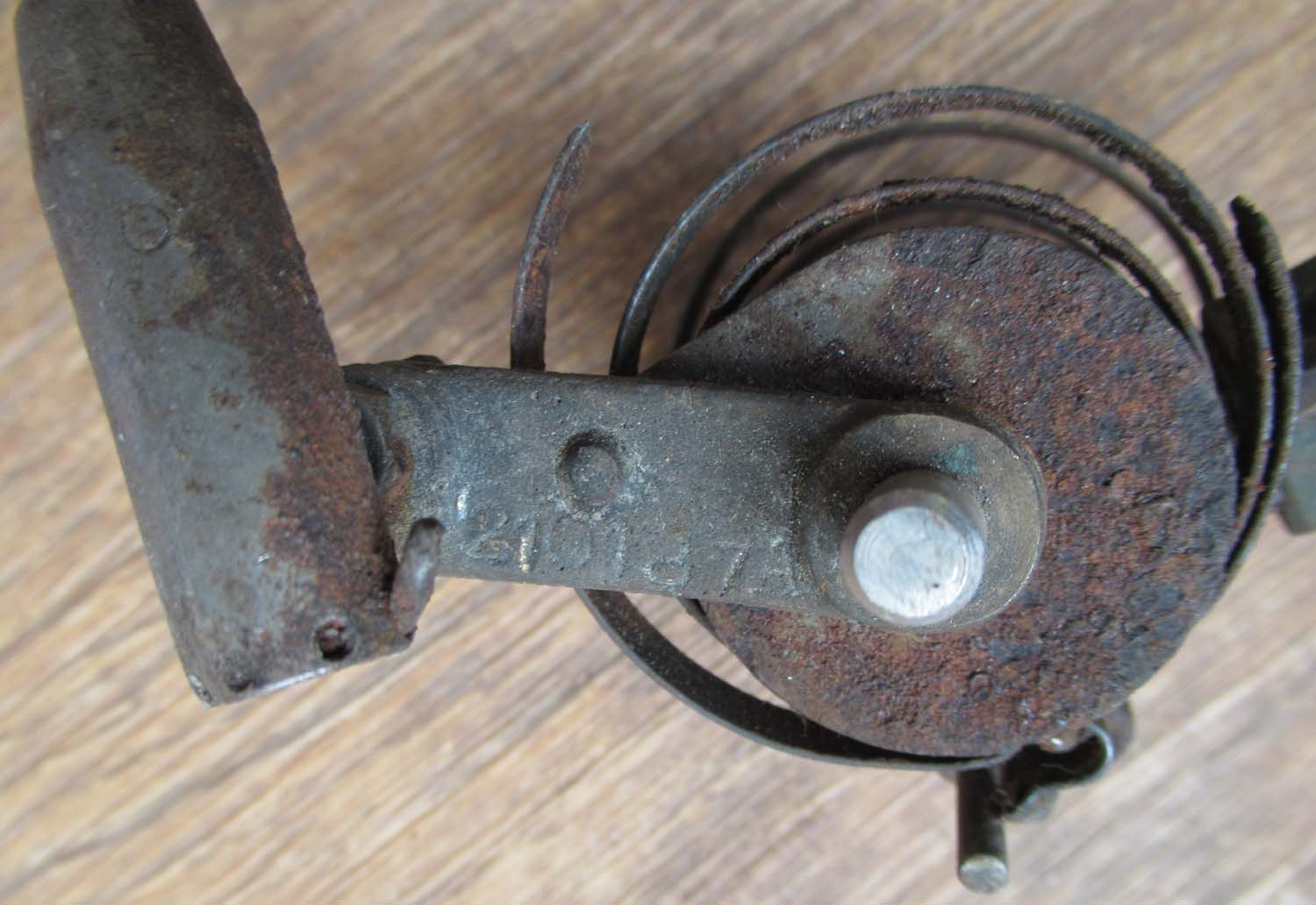
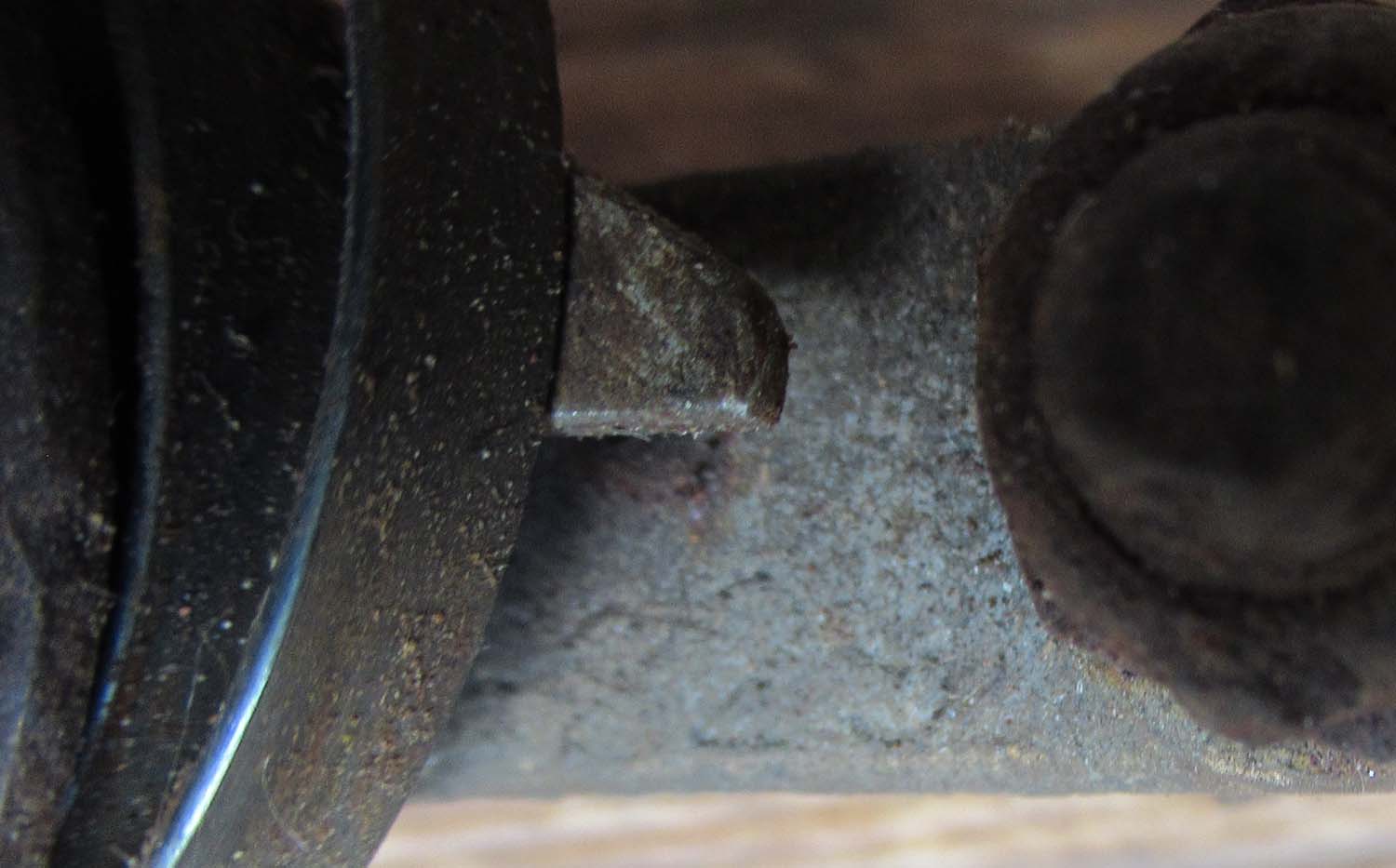
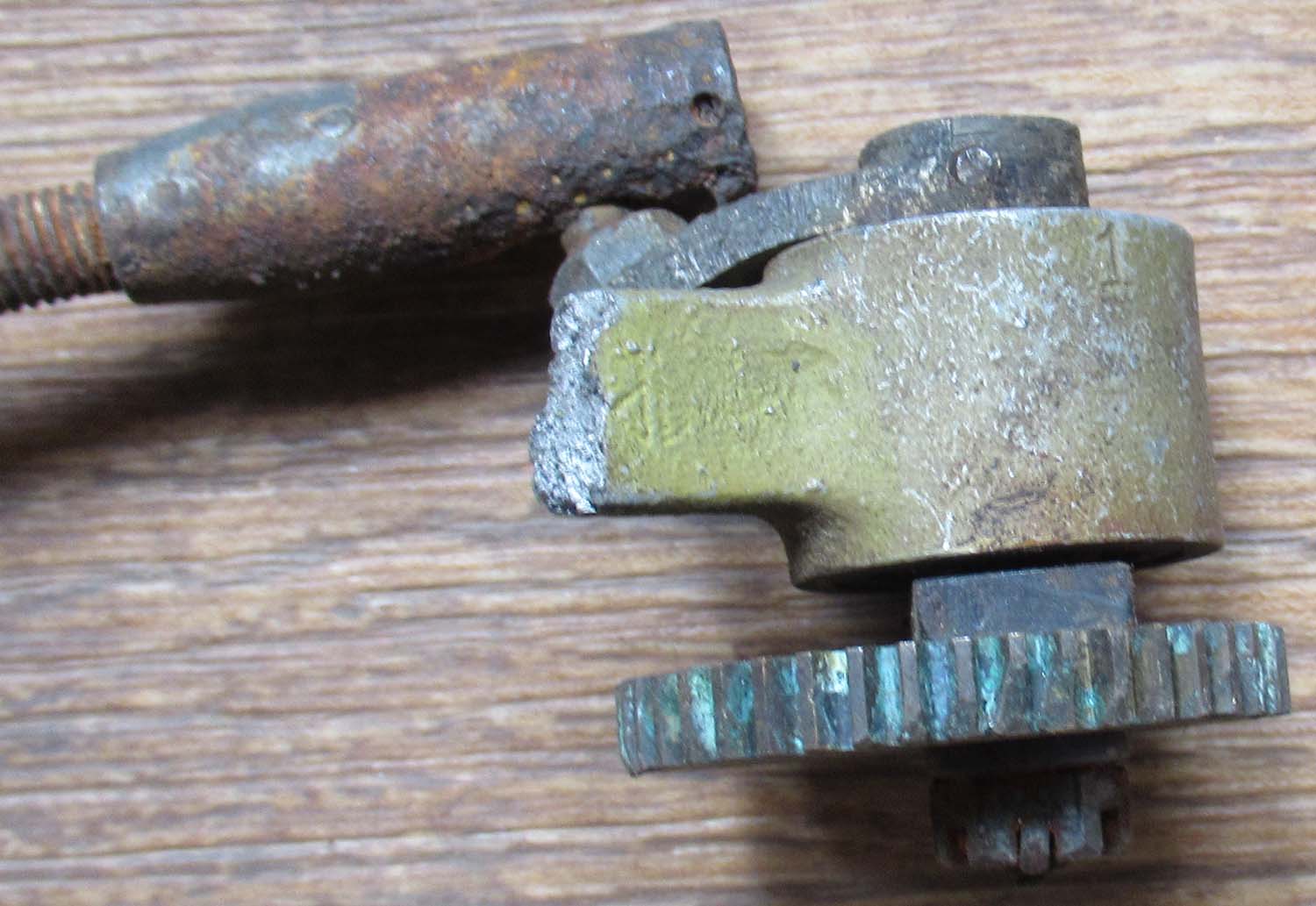
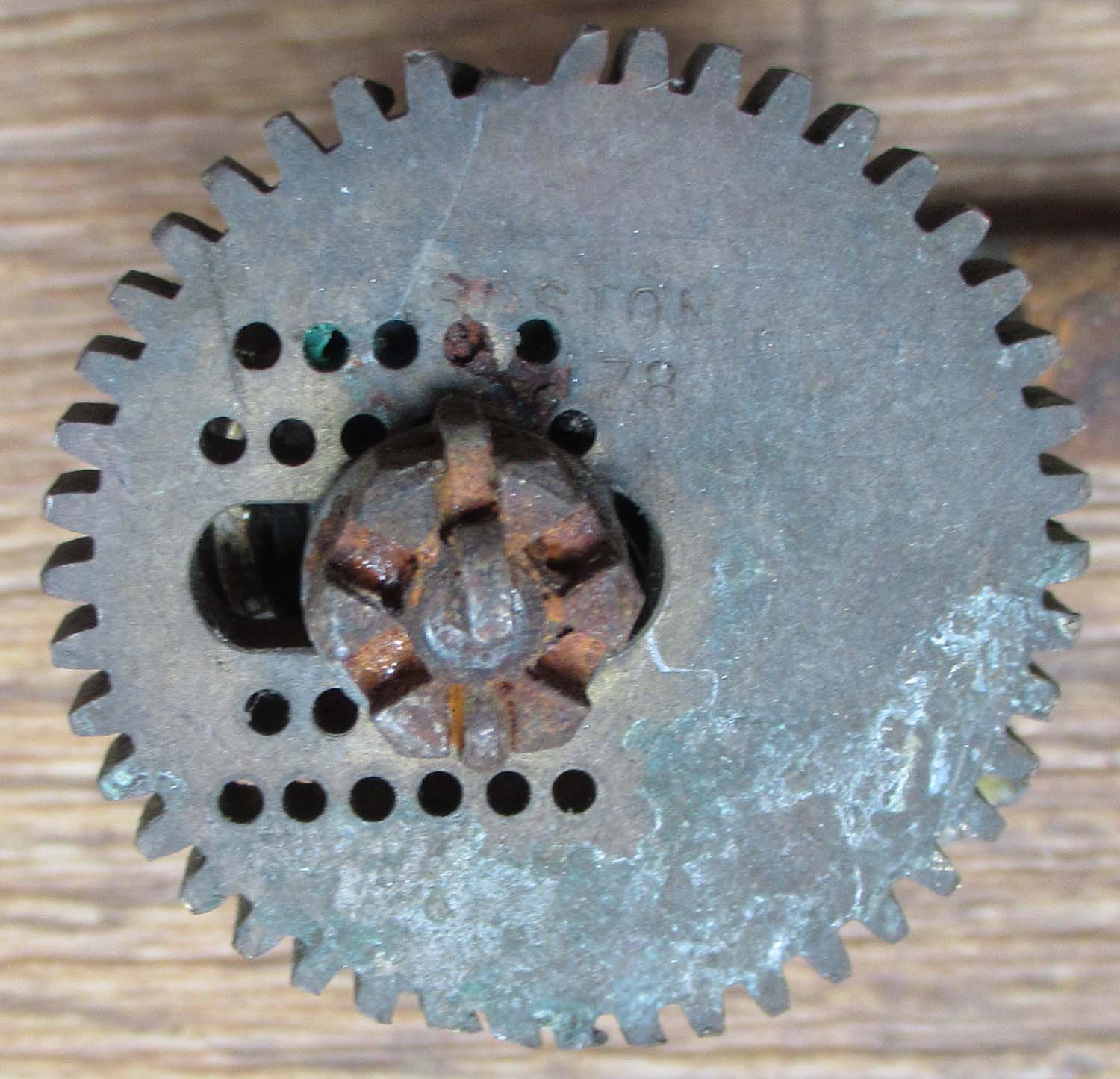
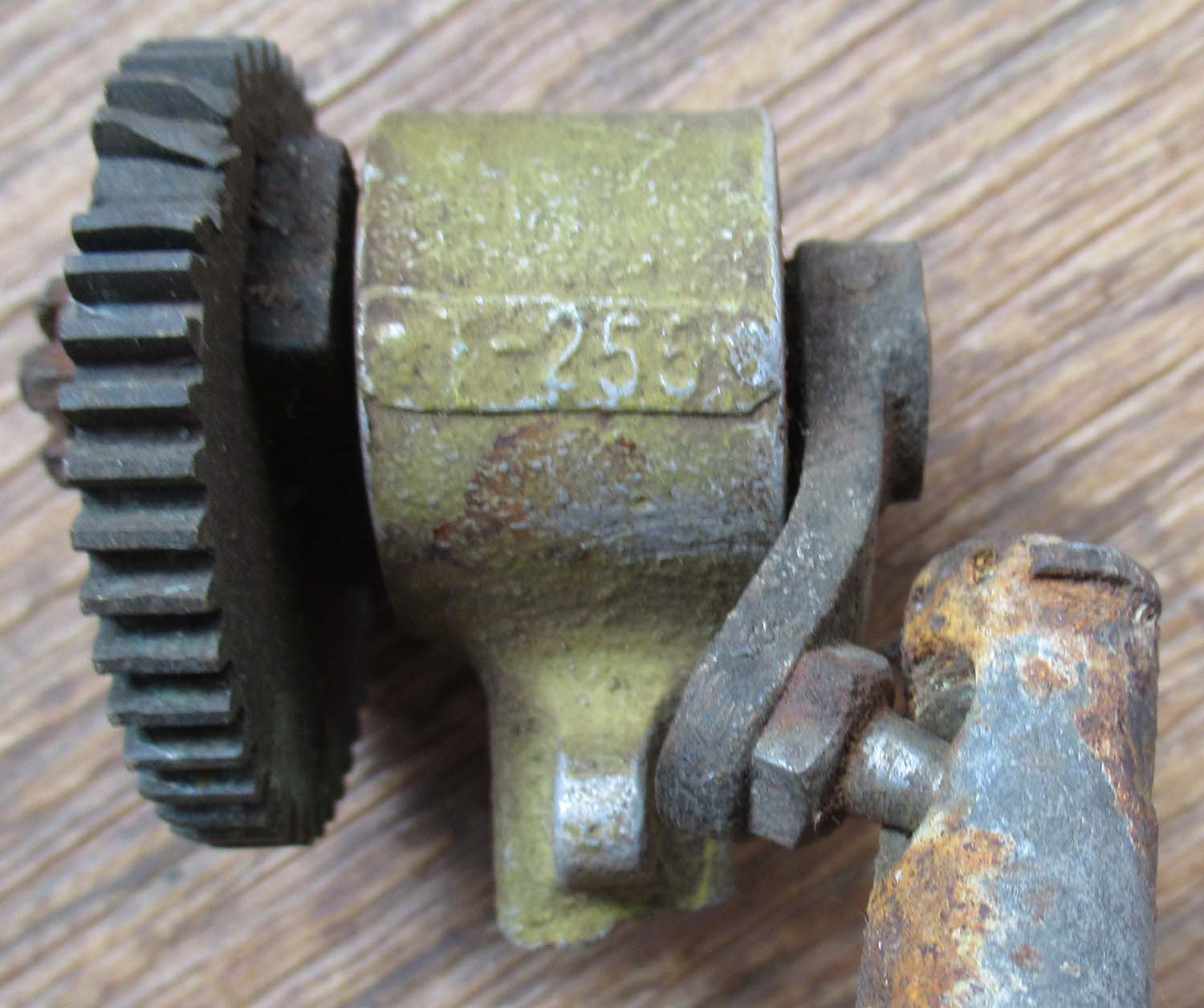 |
|
Chute 1
Click on pictures to enlarge

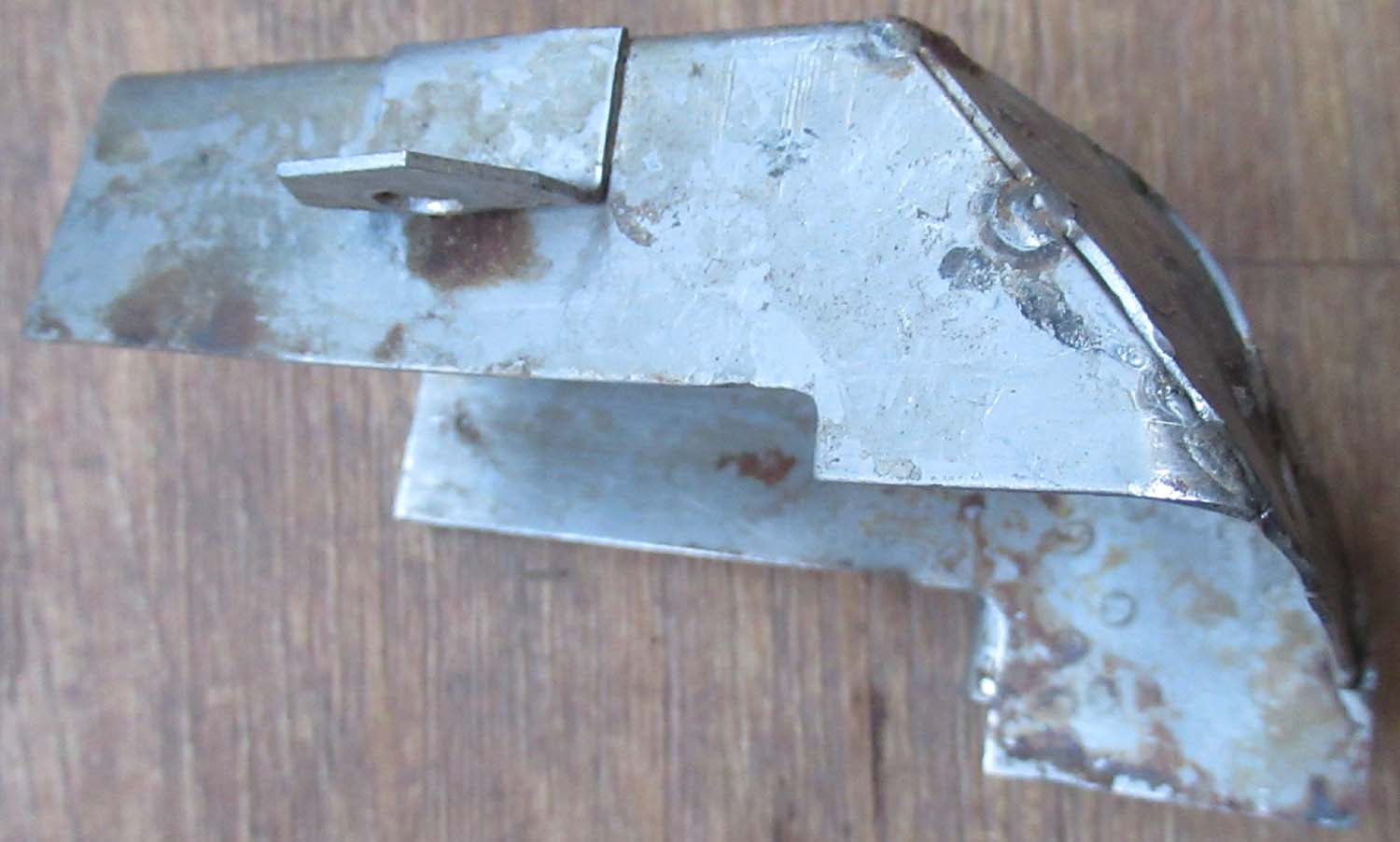
£275 for the pair


|
B17 Hustling Sue Mid
upper Turret ammo chutes (nos 7 pg 10
Relics )
Here we have a pair of ammo
chutes from Hustling Sues Mid upper turret , if you click on the
drawing under you can see their position nos 13 and nos 18 in
the drawing. I feel these could be restorable and used again in
a turret project if they were straightened out
Click on pictures to enlarge
Chute 1

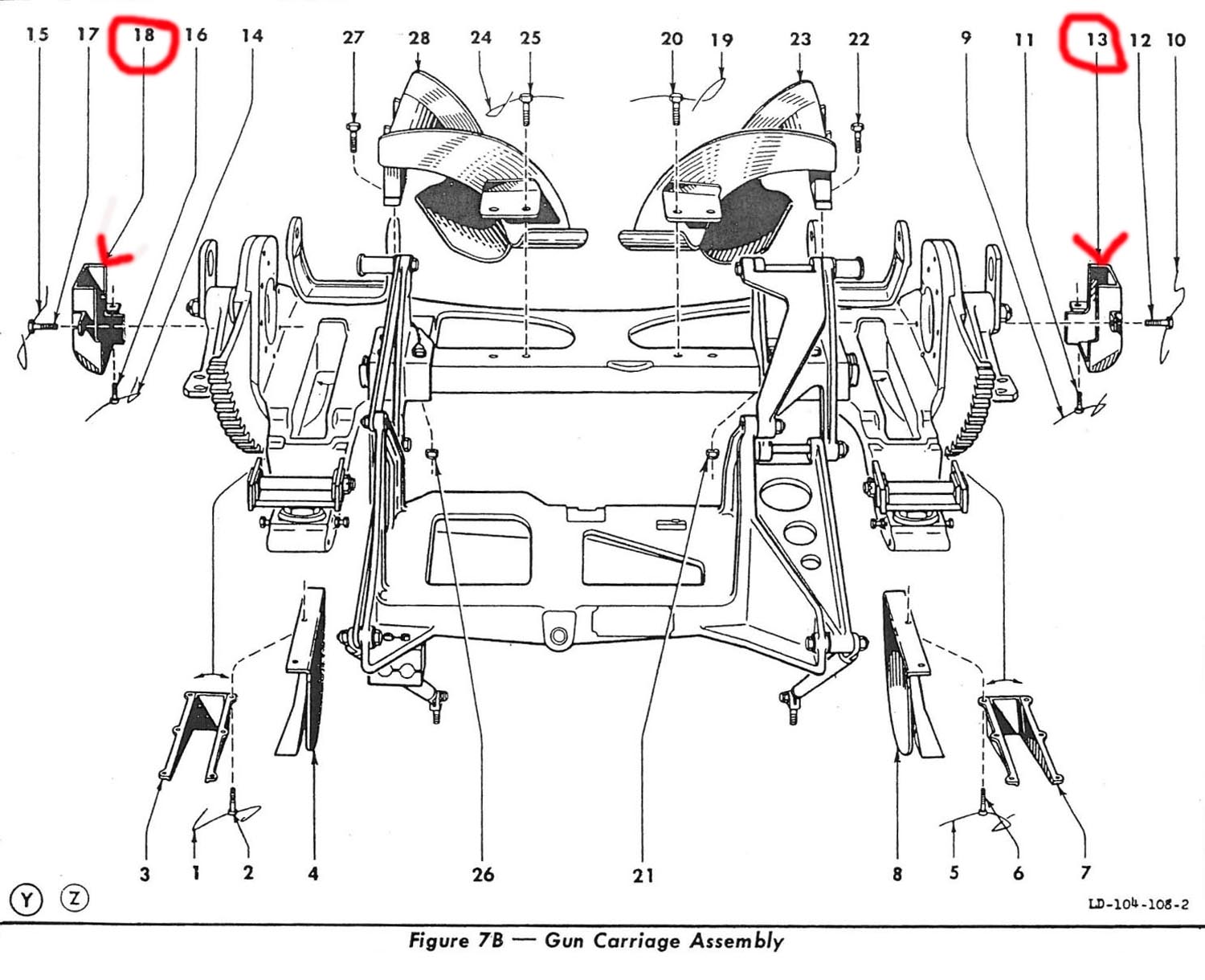

Chute 2
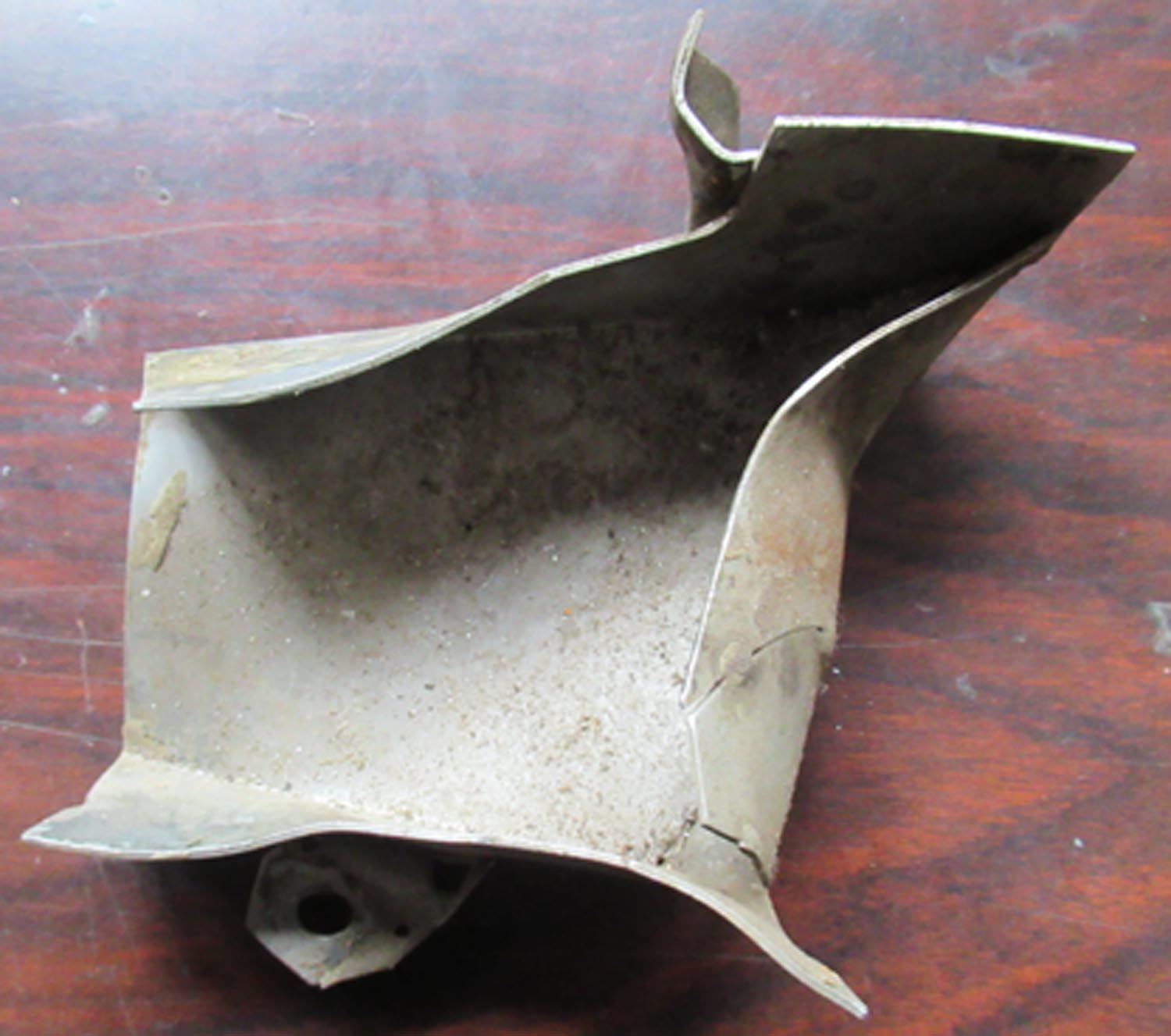
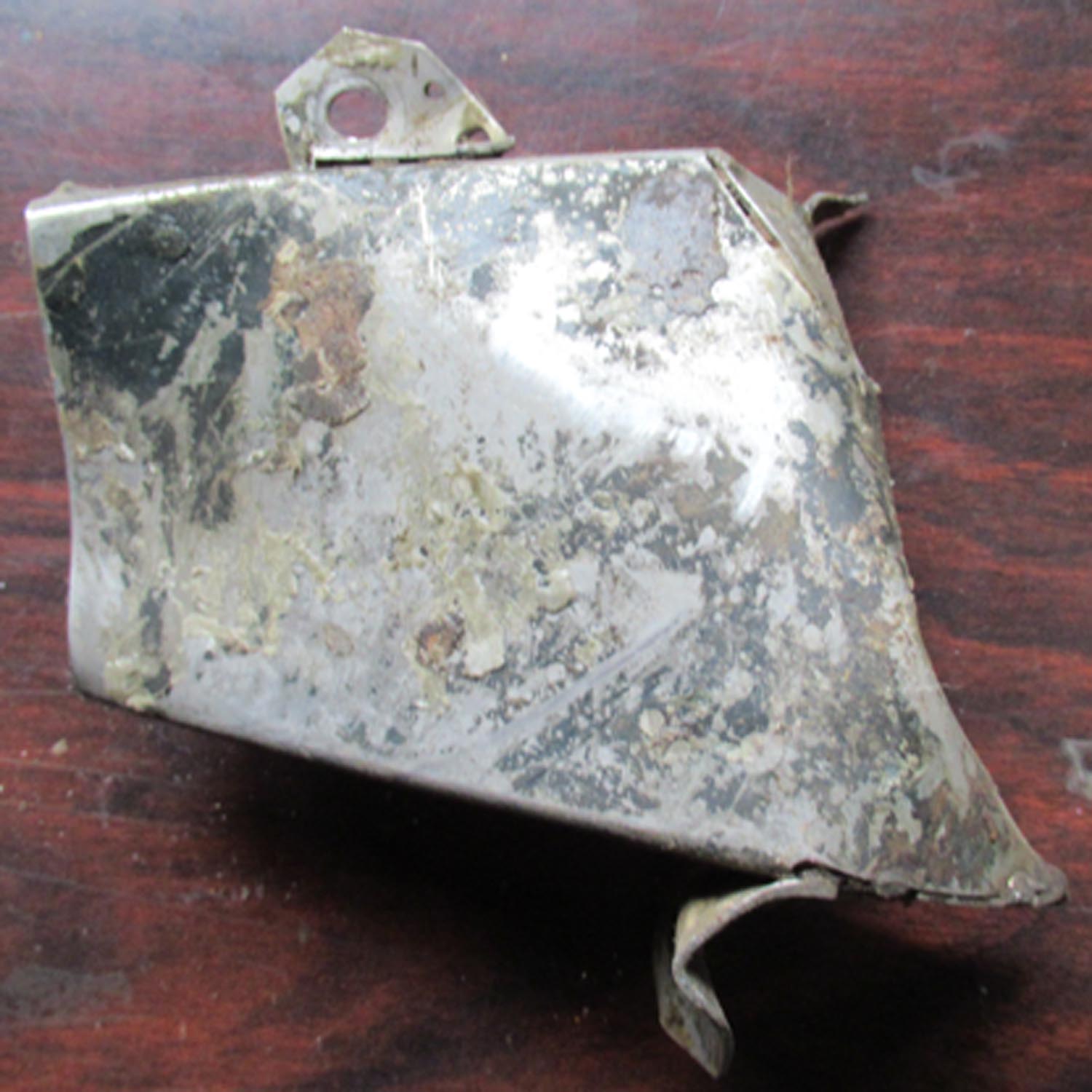
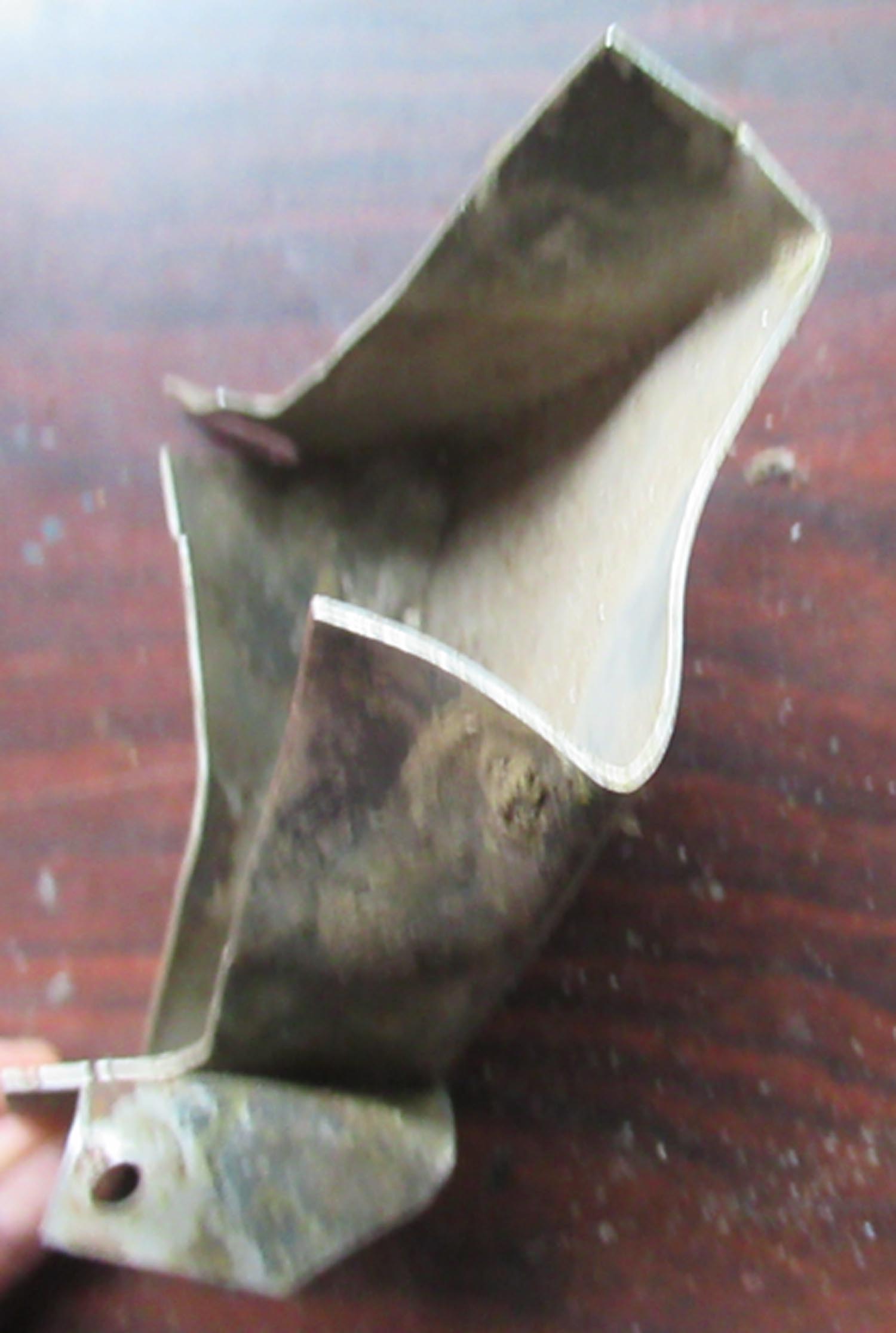
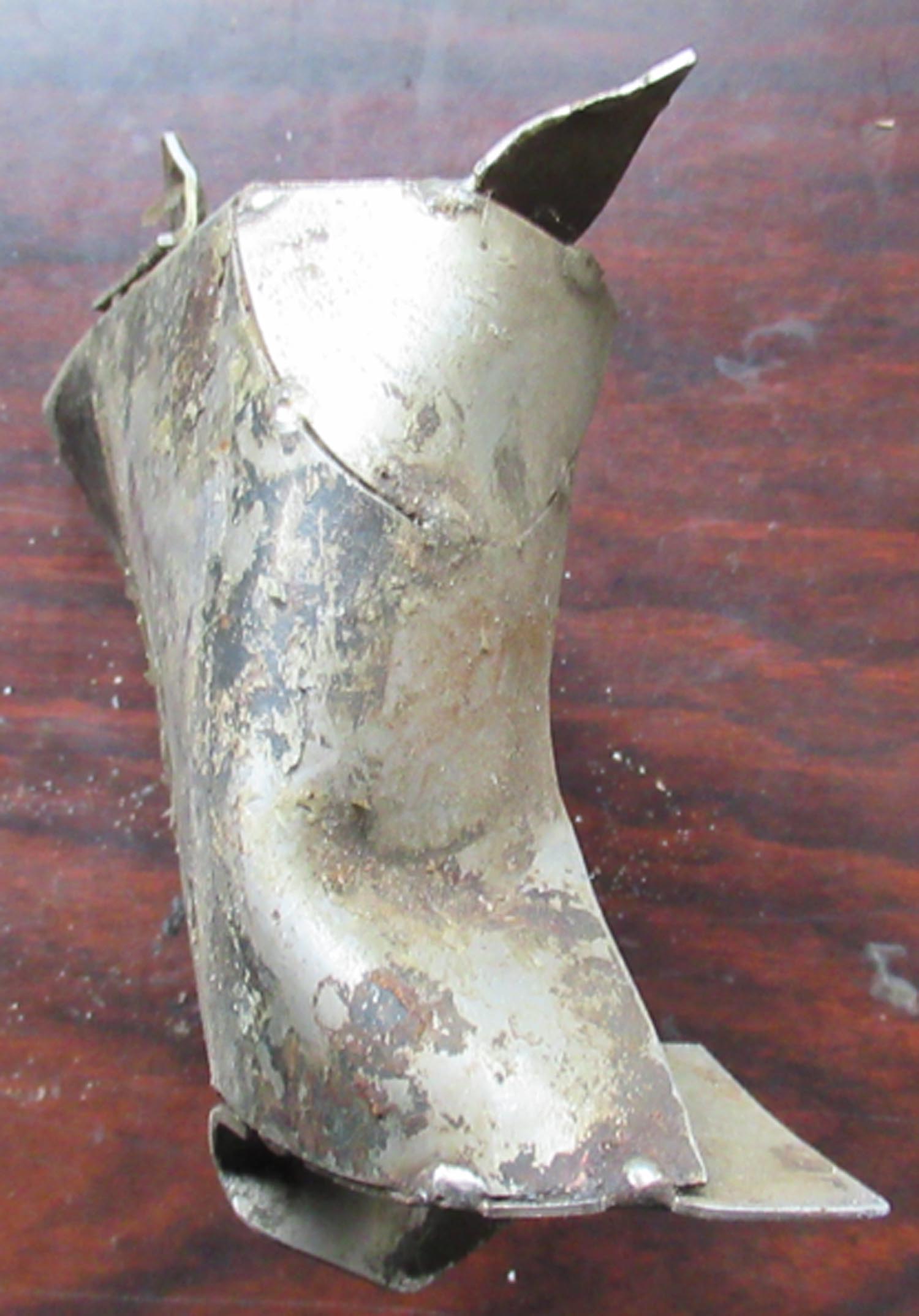 |
|
Click on pictures to enlarge
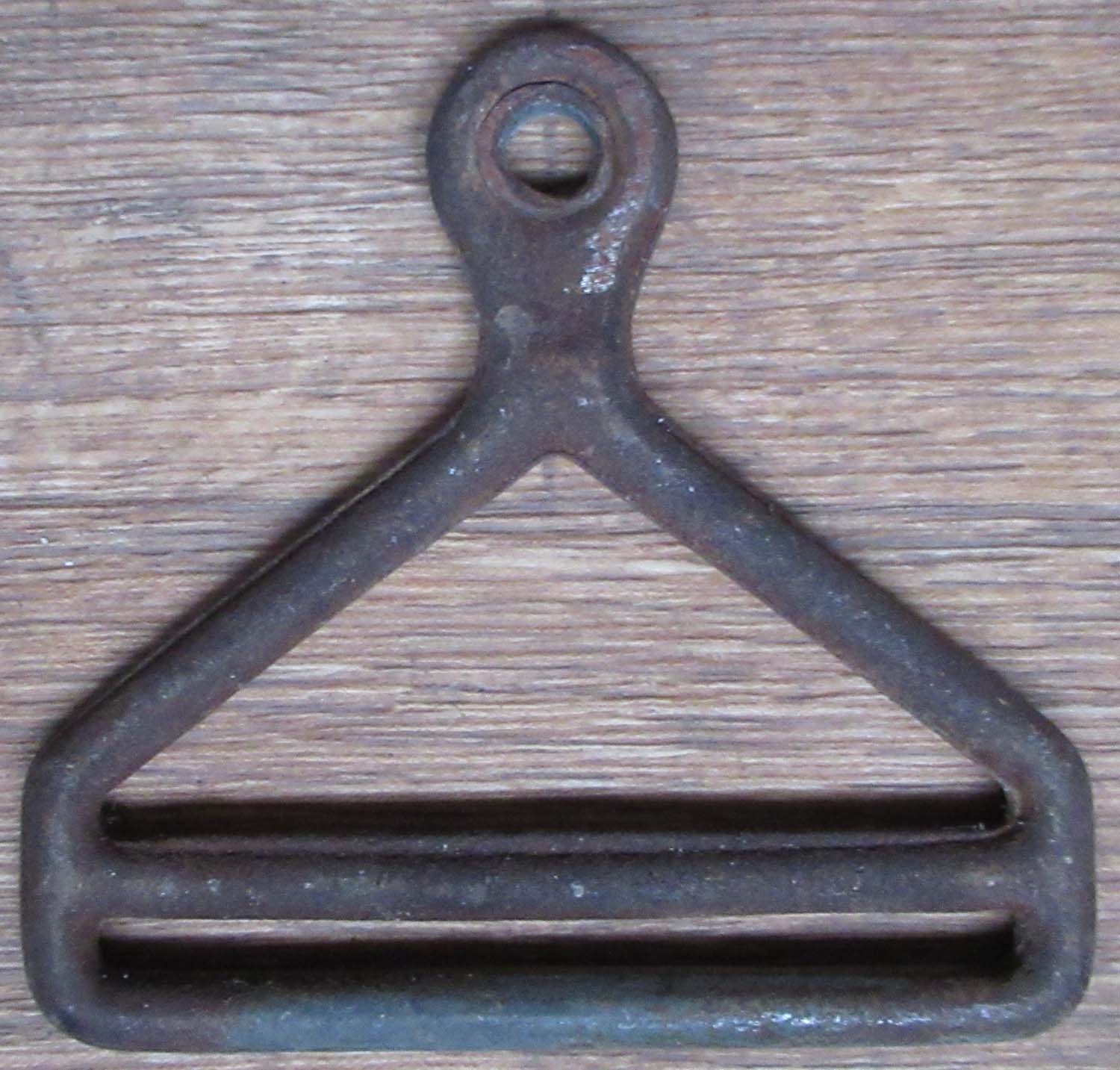
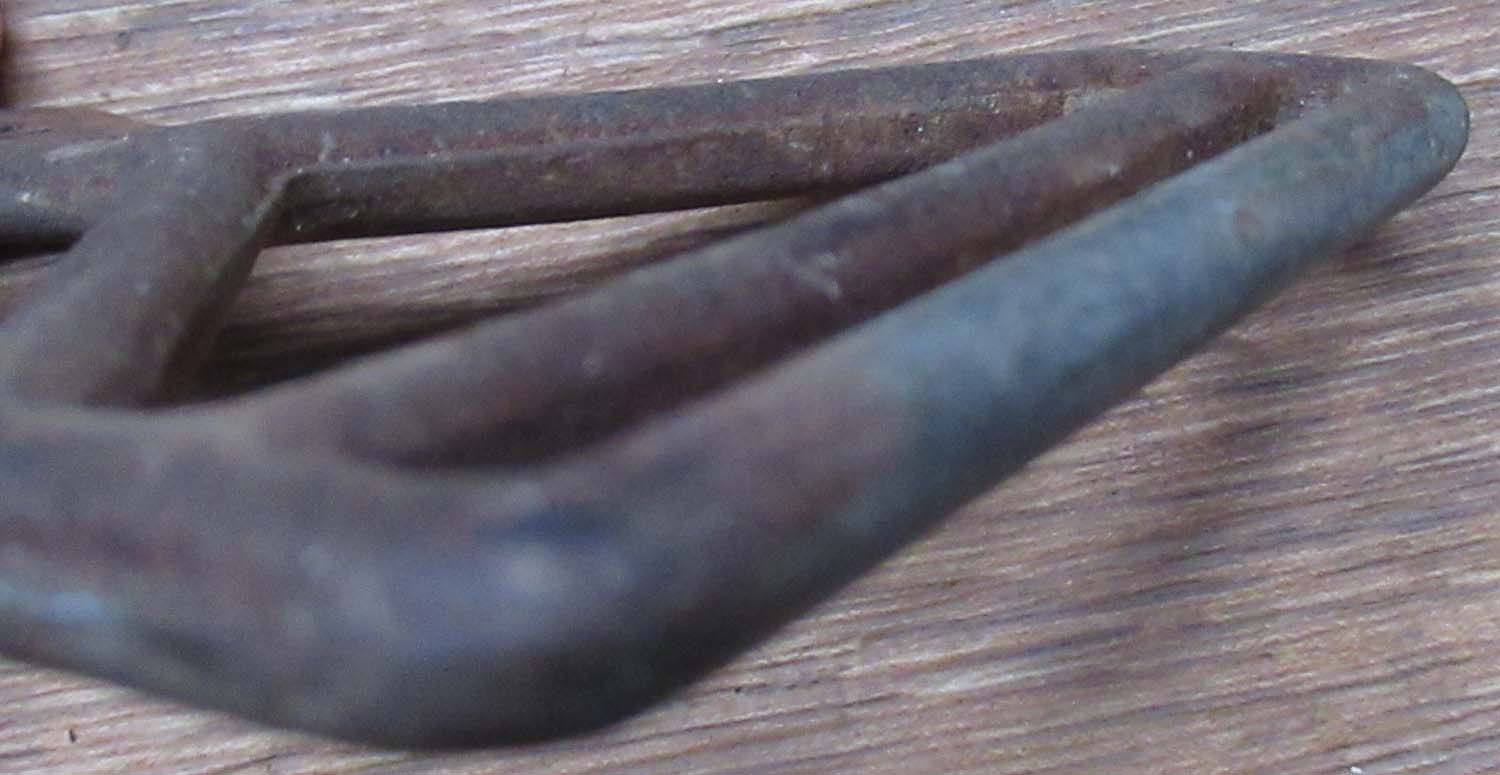
Shown under how
it fits to the belt
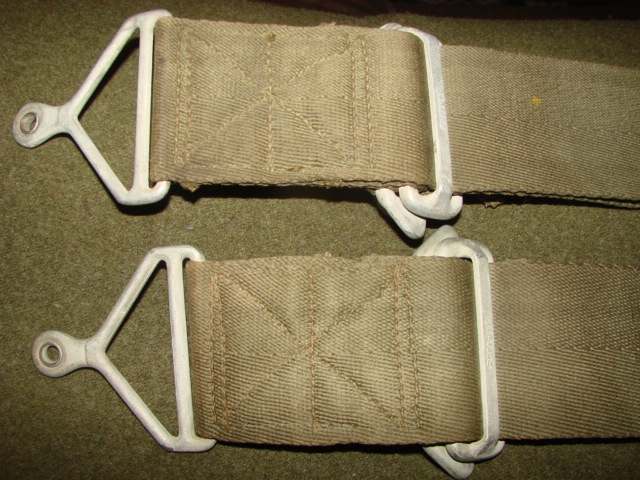 |
B17 Hustling Sue
Type B-14 Pilot seatbelt buckle (nos 6 pg 10
Relics )
This is a buckle from either
the Pilot or Co Pilots seat belt its incredible the history that
this peace has actually used by the Pilots of Hustling Sue.
The only picture I could find
is of a model B17 cockpit showing this buckle attaching the belt
to the seat.
Click on pictures to enlarge
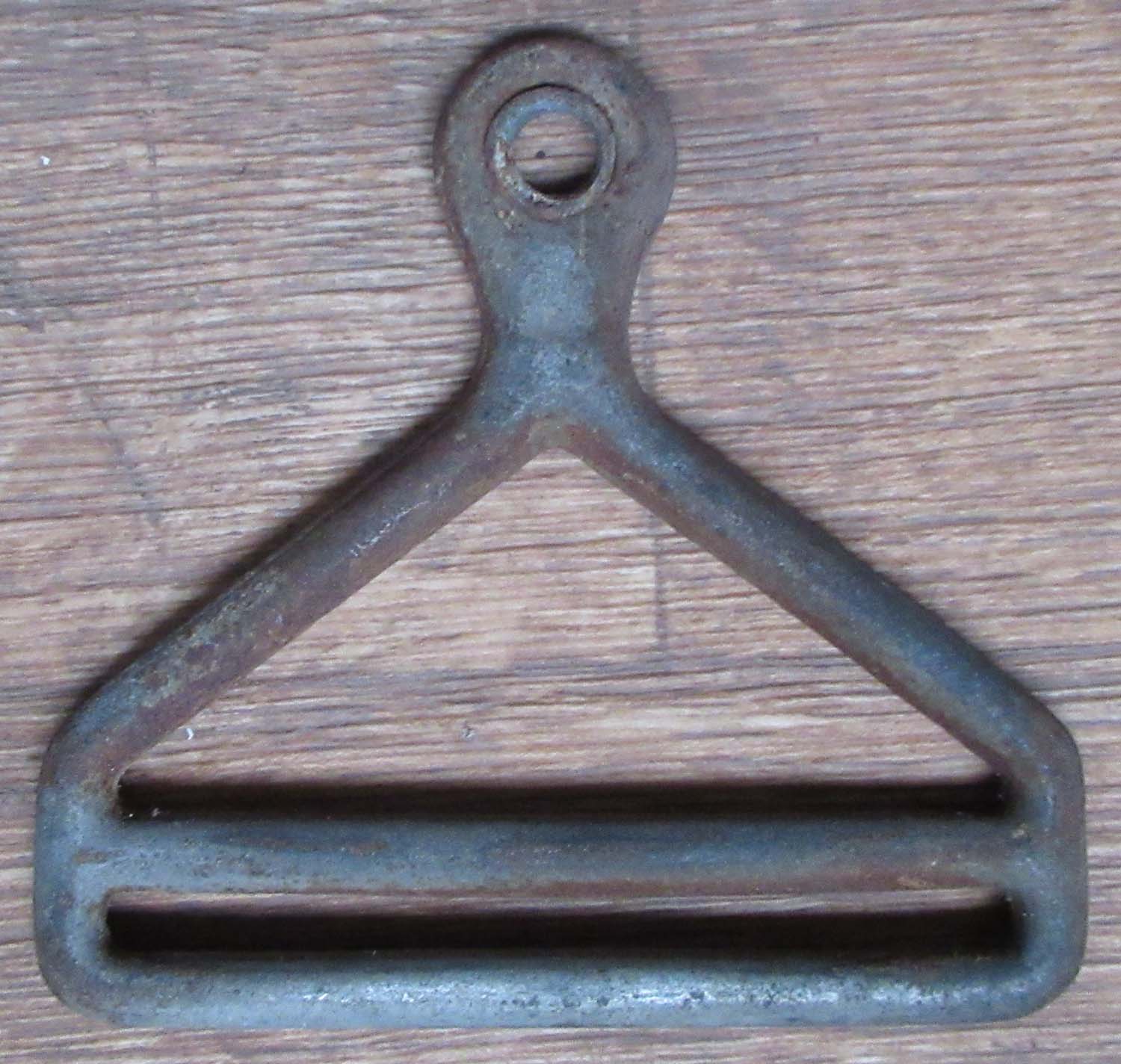
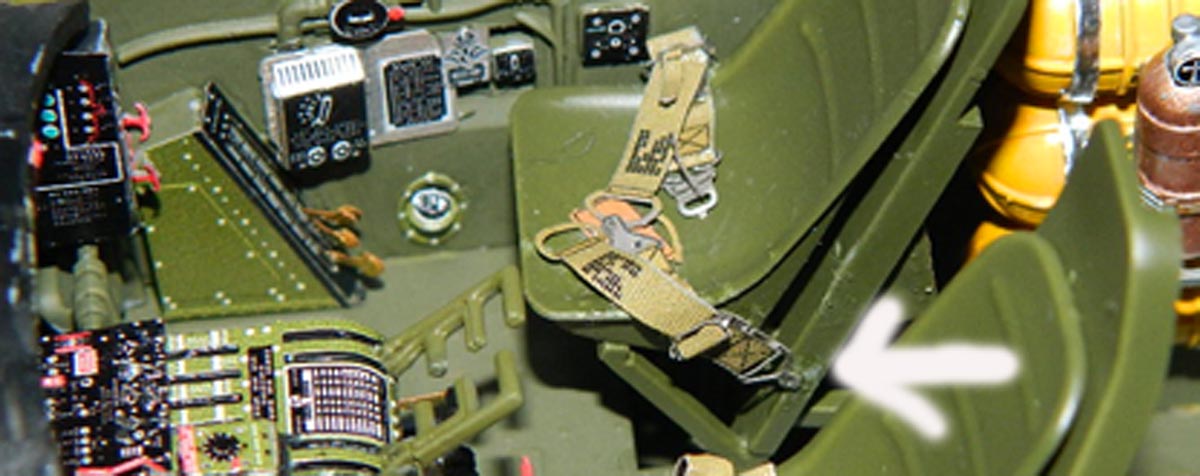
£125


|

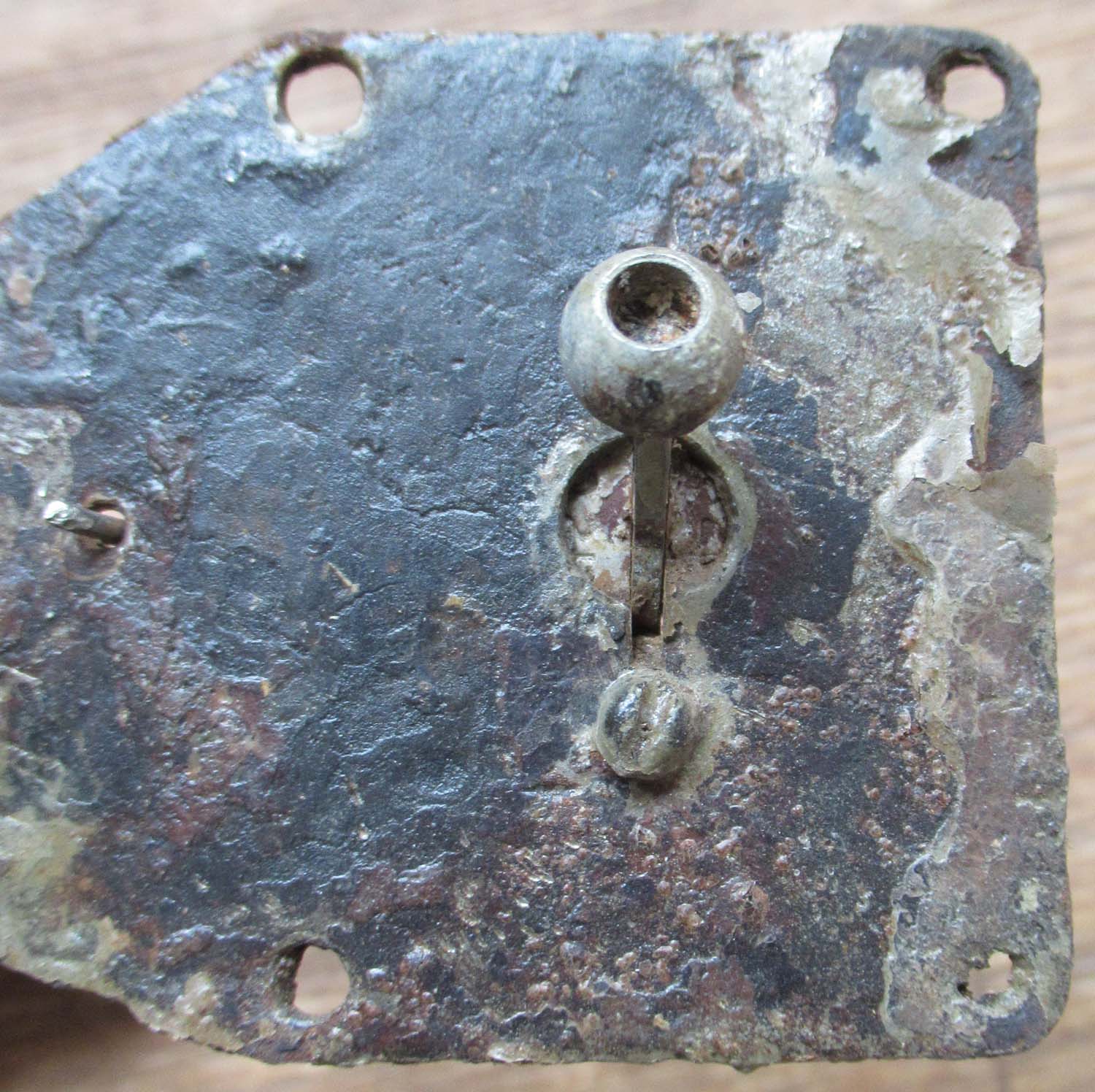 |
B17 Hustling Sue
Panel light switch (nos 4 pg 10
Relics )
This is a toggle switch used
in Hustling Sue its the main instrument panel light switch
mounted to the right of the repeater compass. Every B17 cockpit
I have looked at appears different but this switch can been seen
clearly in the Memphis Belle cockpit to the right of the
repeating compass.


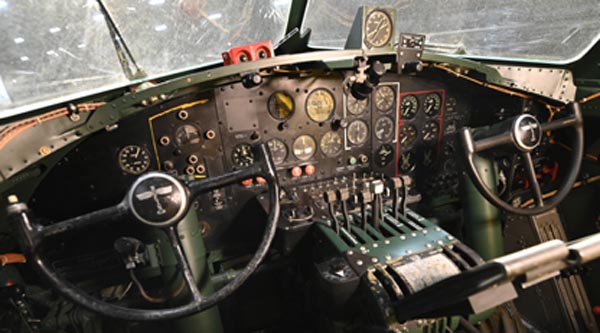
£155


|
|
Click on pictures to enlarge



 |
B17 Hustling Sue
K3/4 Gunsight (nos 3 pg 10
Relics ) These peaces
came from one of the K3/4 Gunsights used in Hustling Sue its
incredible to think this was actually used in Combat shooting at
FW 190s and other German fighters in this aircrafts epic but
ultimately unsuccessful fight to survive.
Click on pictures to enlarge



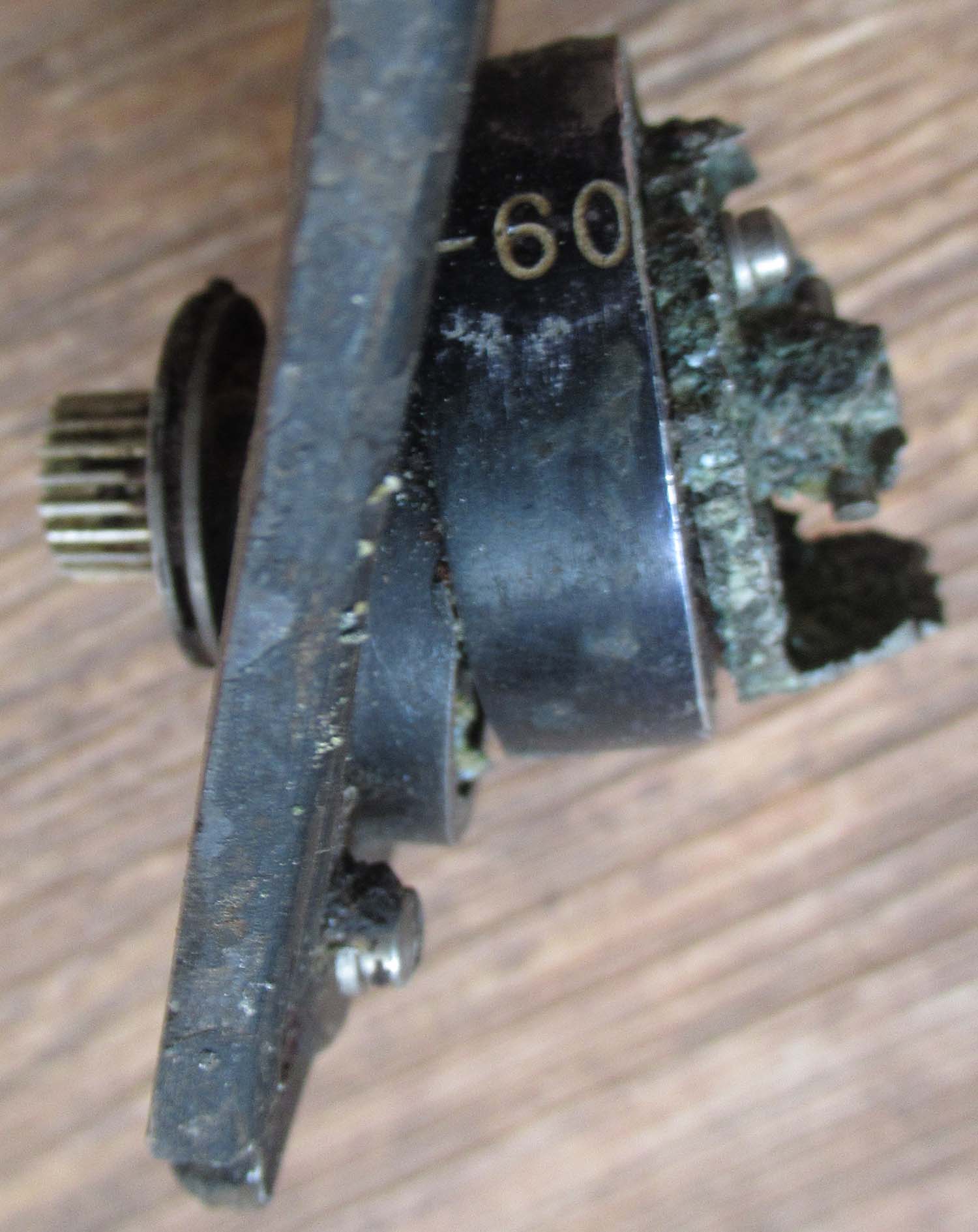
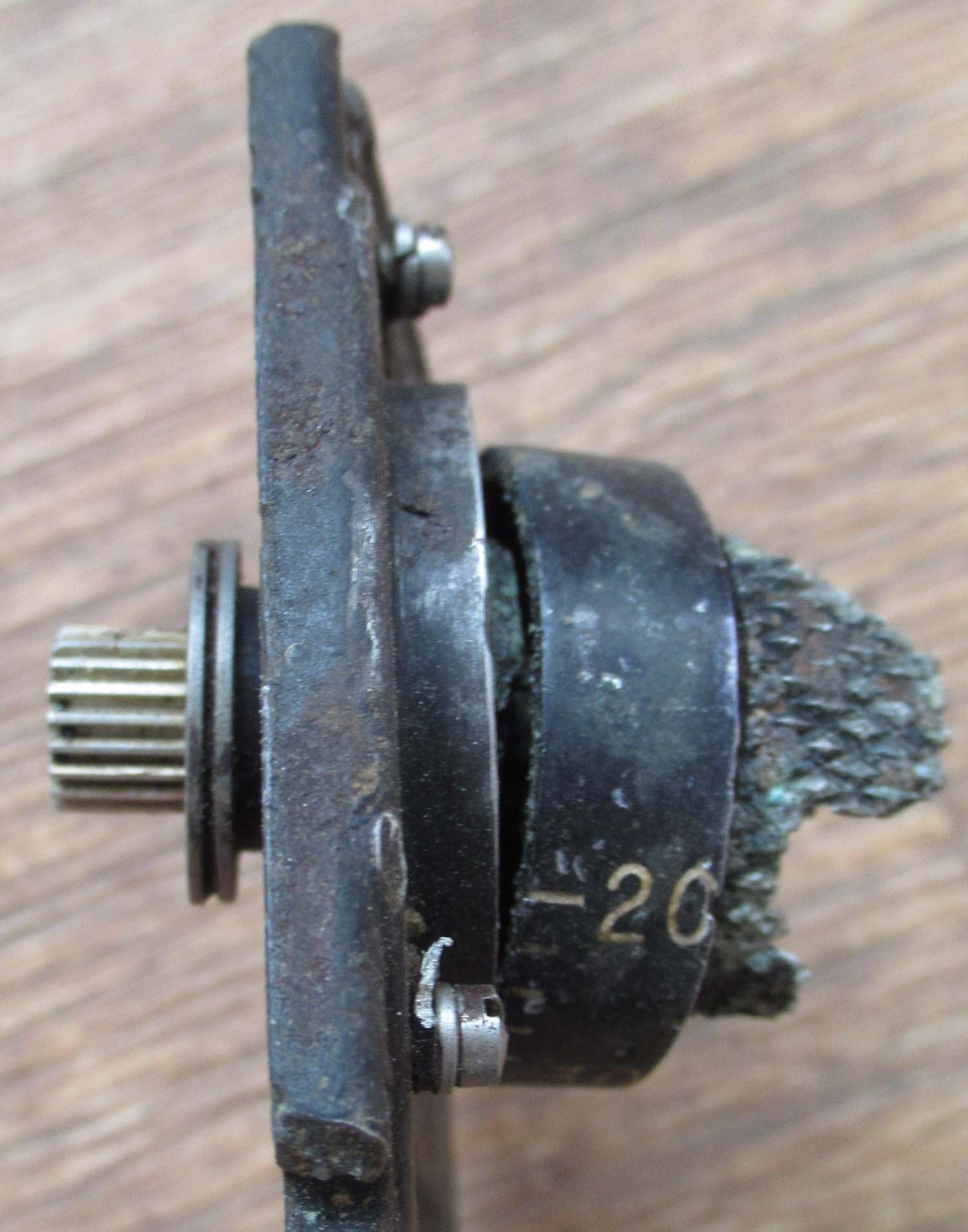
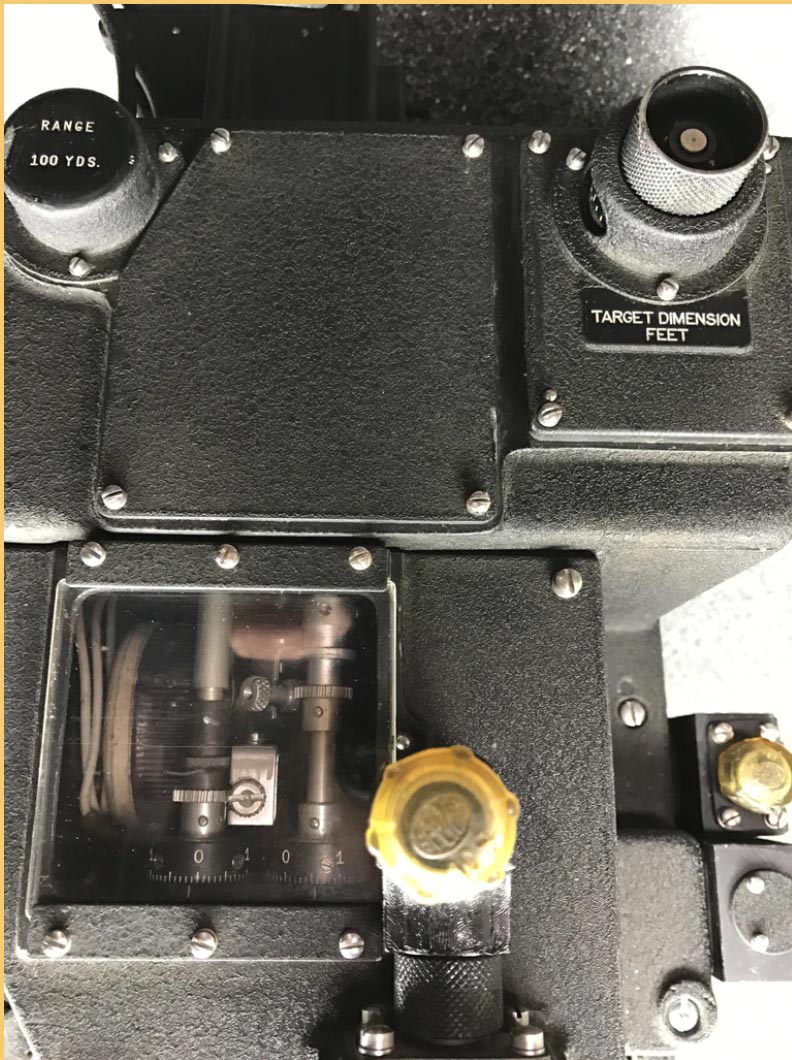
Shown above the
target dimension feet adjustment for setting the wingspan of the
aircraft onto the Gunsight.
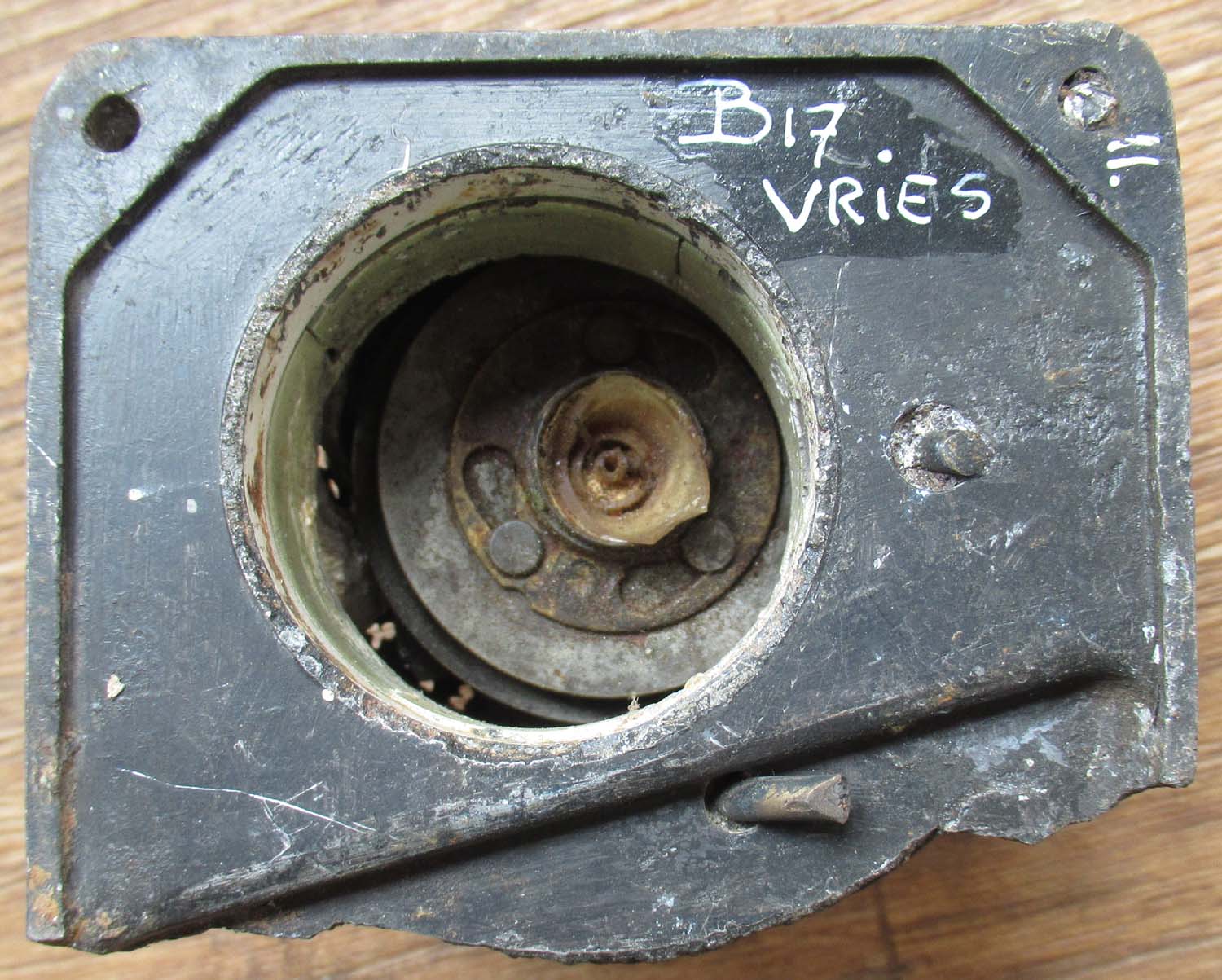

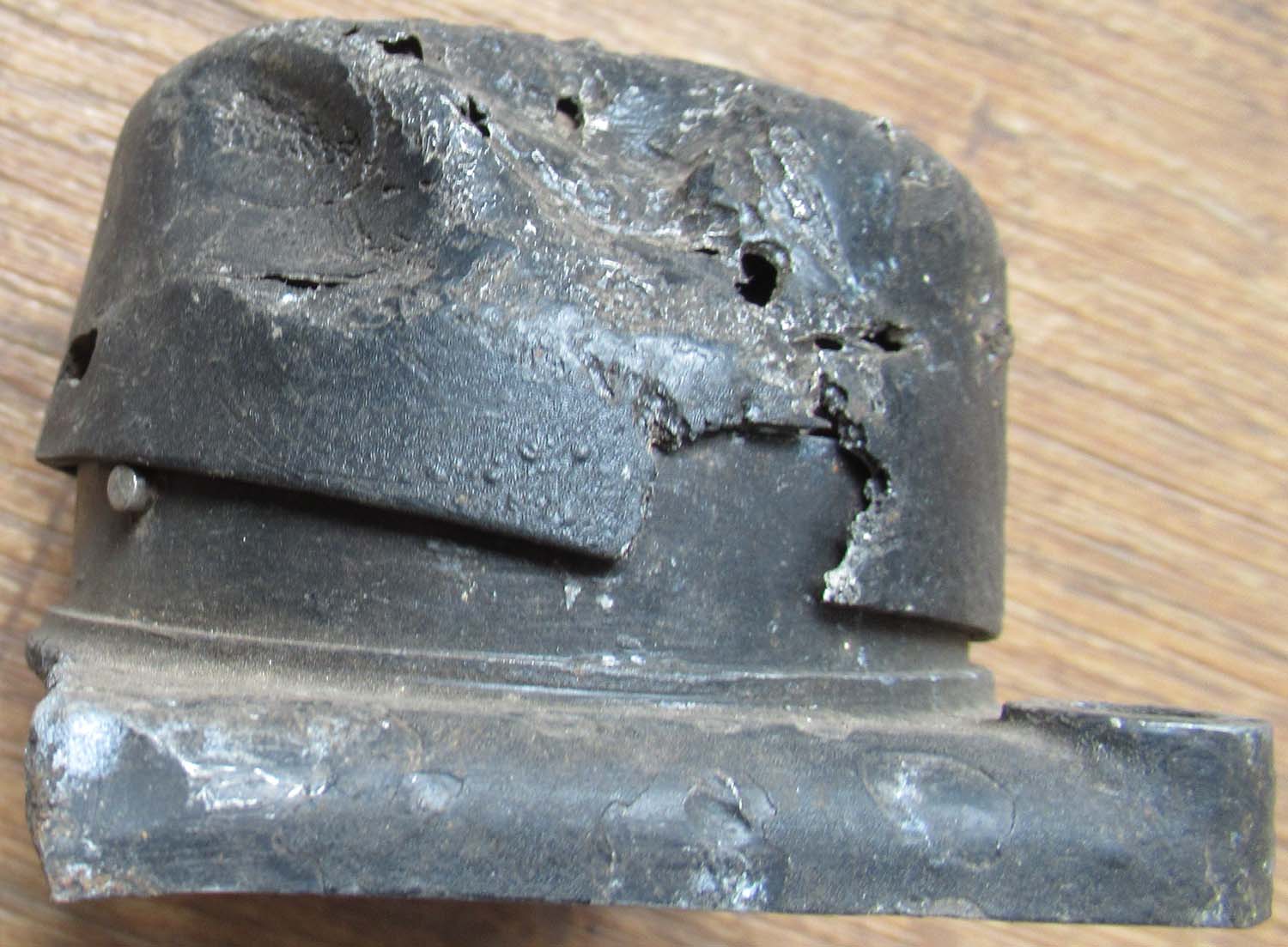
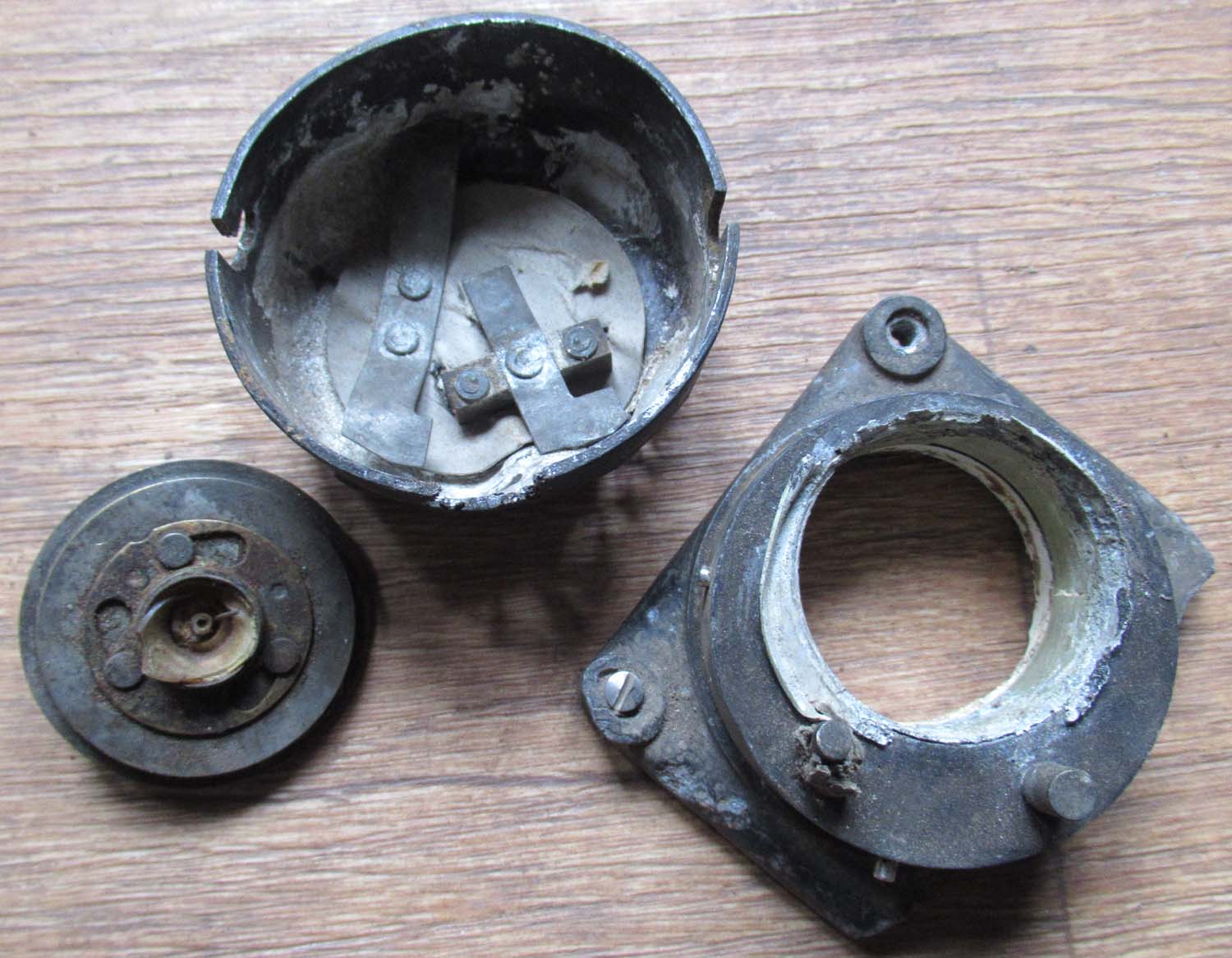
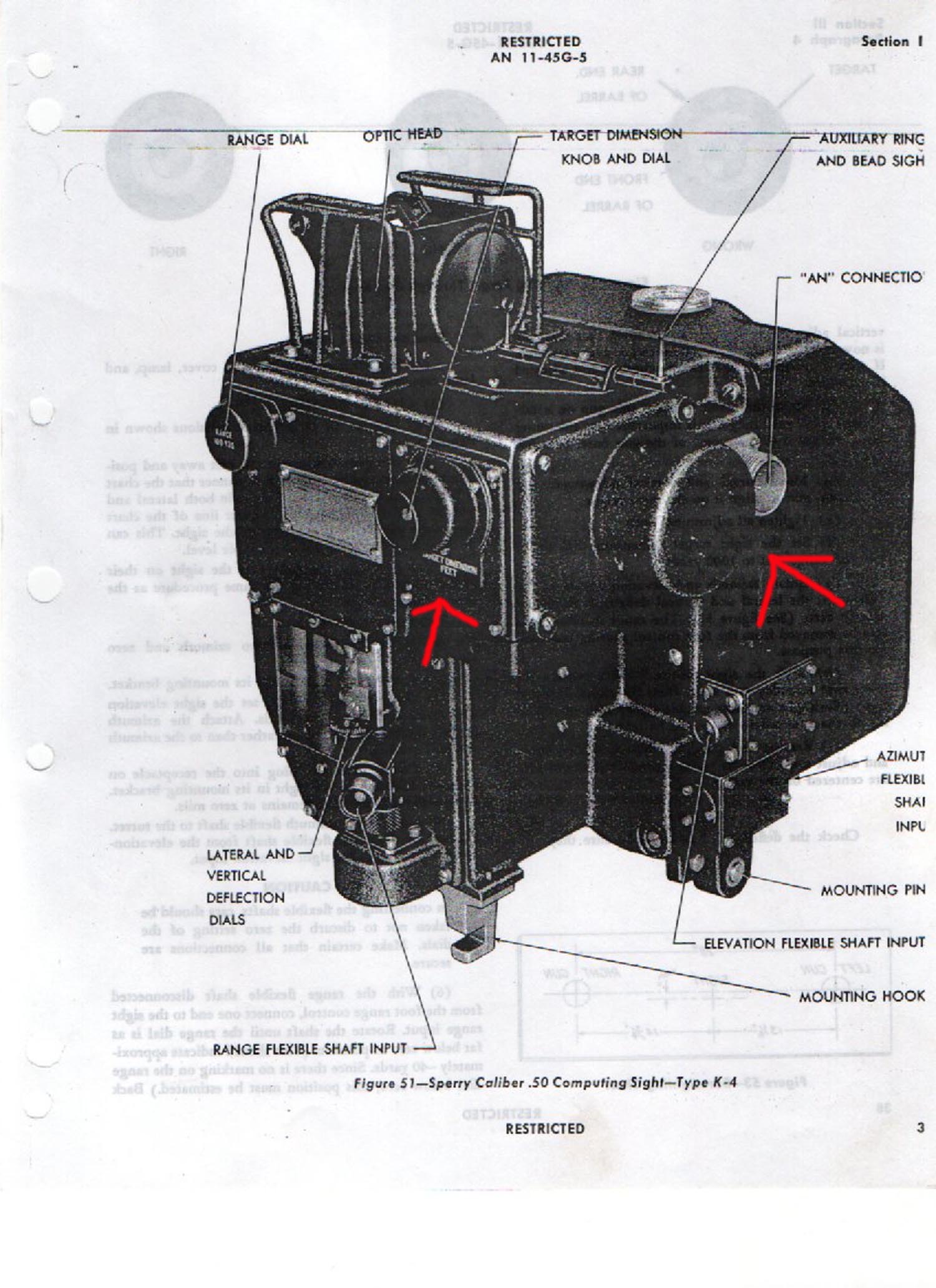
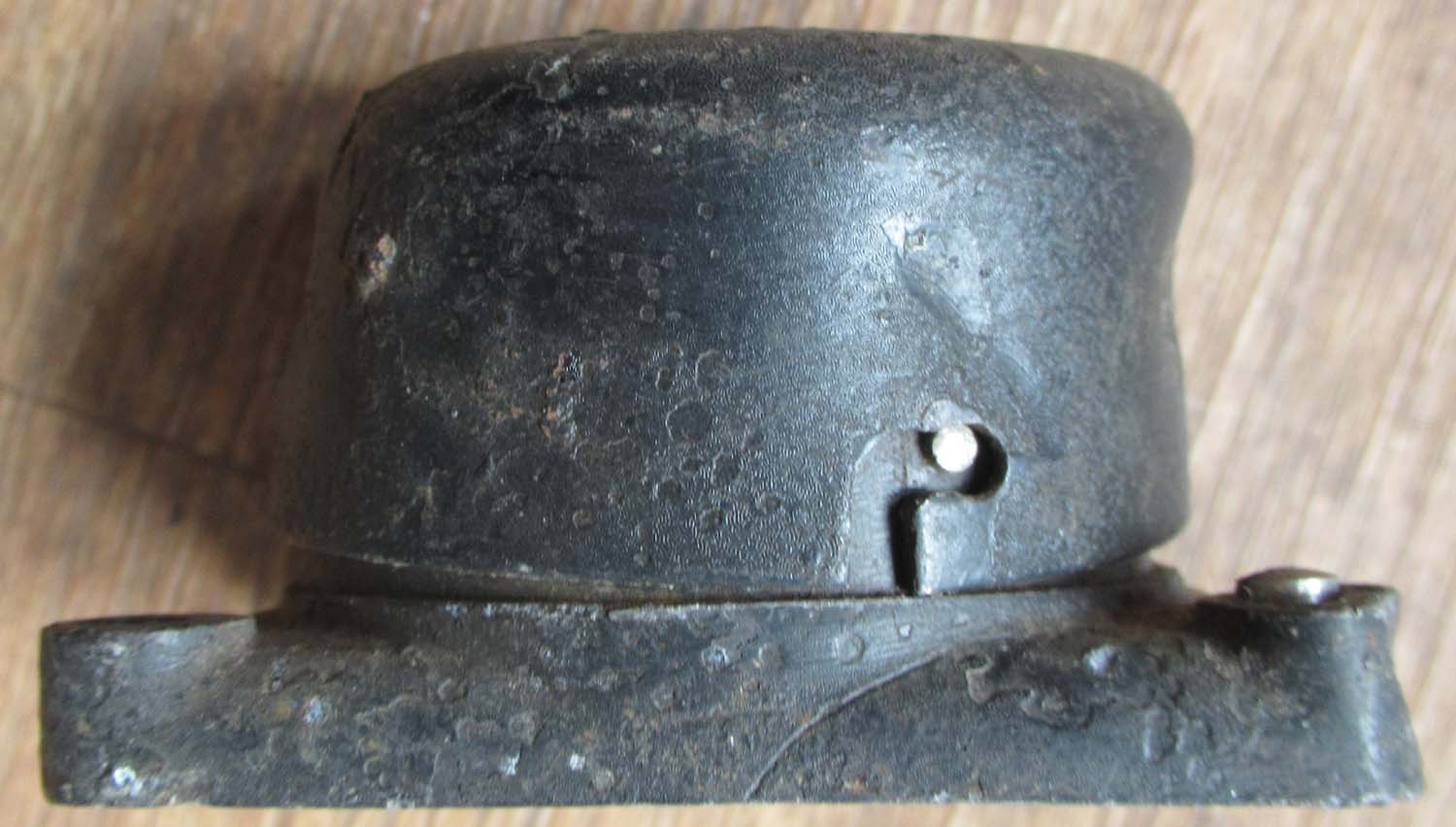
You can see the
paece above on the drawing of the K3 Gunsight
£95


|
|
Click on pictures to enlarge

Out of stock
|
B17 Hustling Sue Turret
part
(nos 1 pg 10
Relics ) This peace is
from the Mid upper turret of B17 Hustling Sue its part of the
flexible belt that one of the 50 cal the Guns poked through. You
can see it on the drawings far right under marked collar
connection plate.
Click on pictures to enlarge

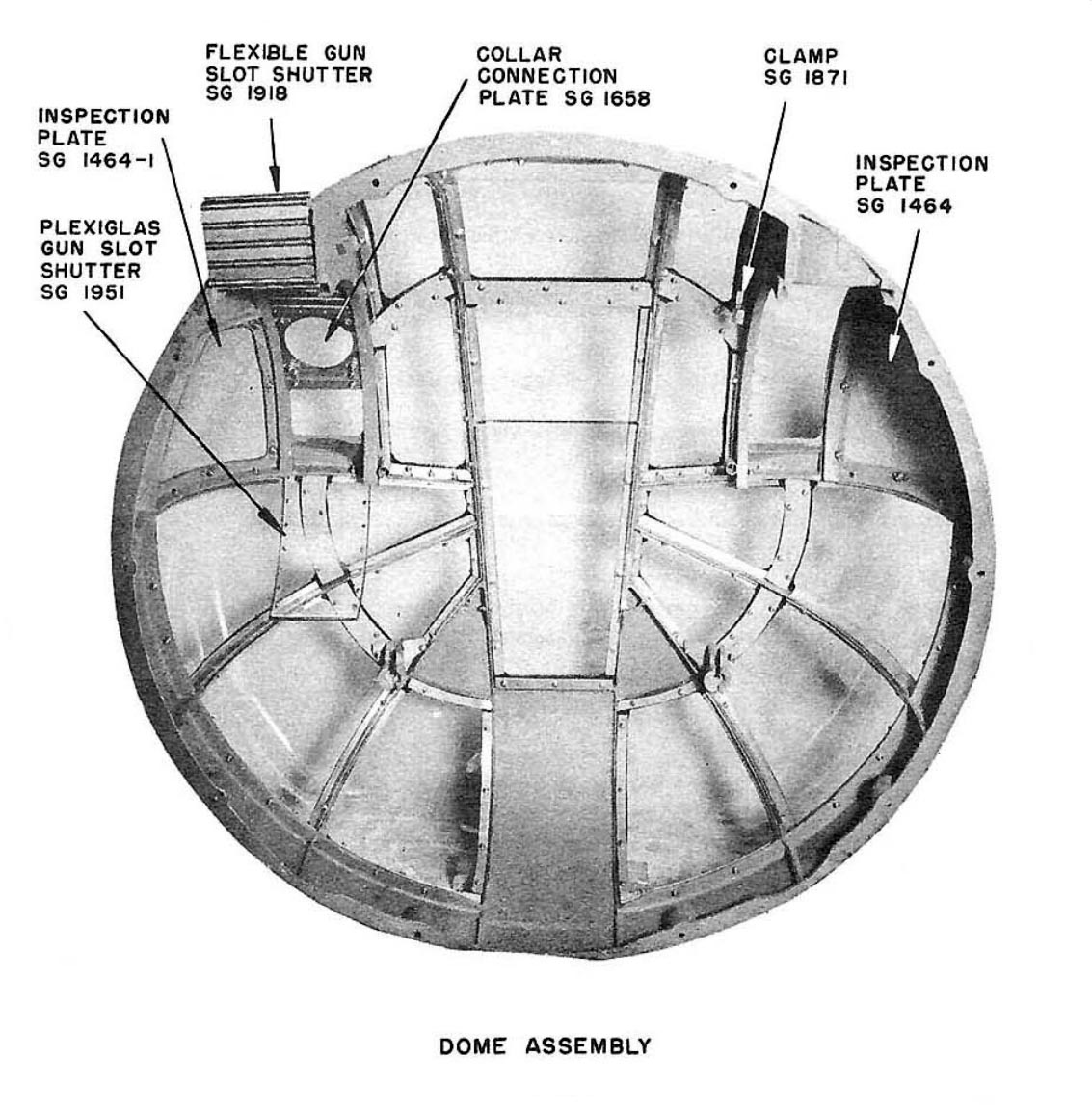
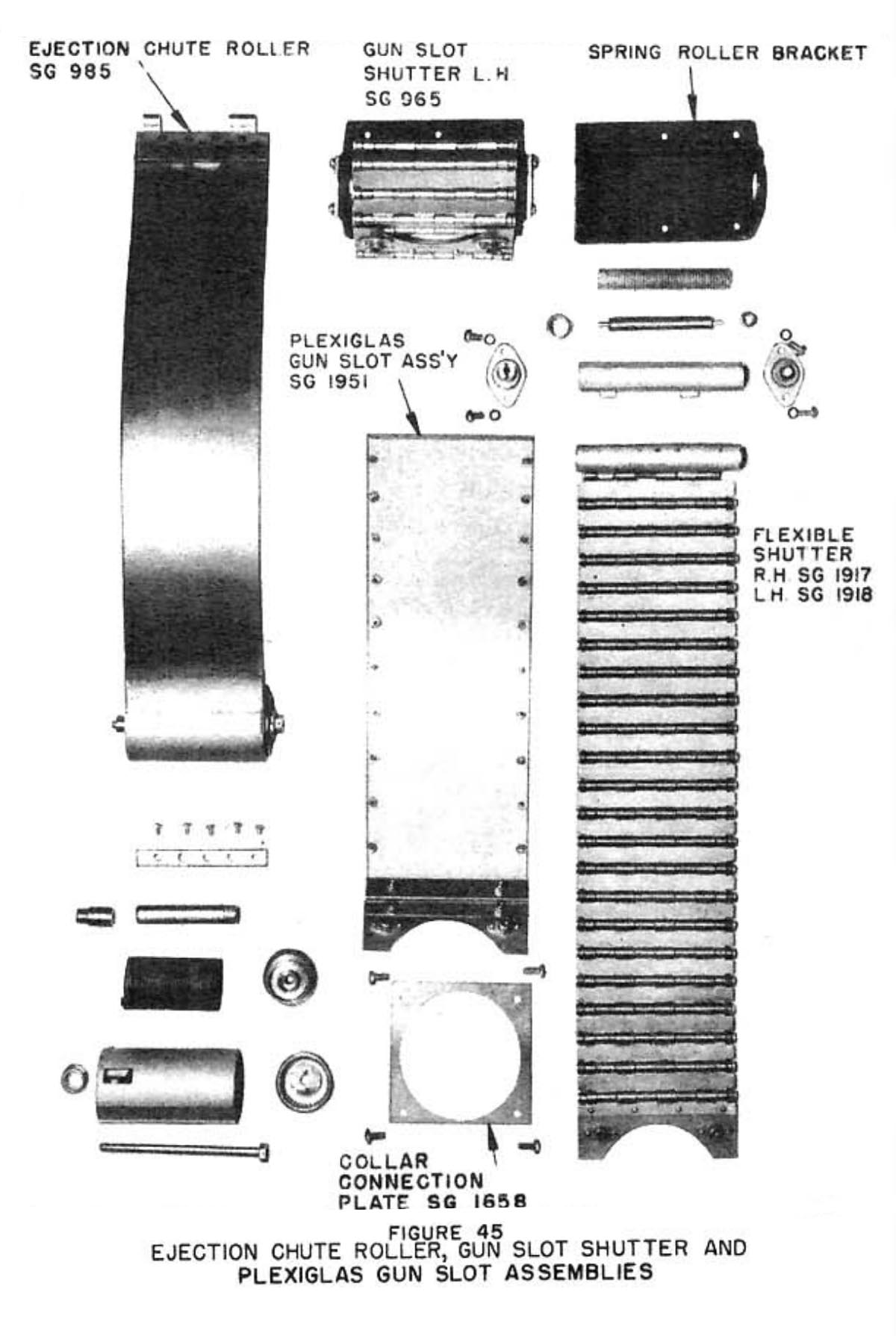

|
|
Click on pictures to enlarge


|
B17 Hustling Sue Turret
Turret Hydraulic unit plate
(nos 2 pg 10
Relics ) This plate was
part of the Hydraulic unit that powered one of Hustling Sues Gun
turrets seen in the drawing under far right.
Click on pictures to enlarge


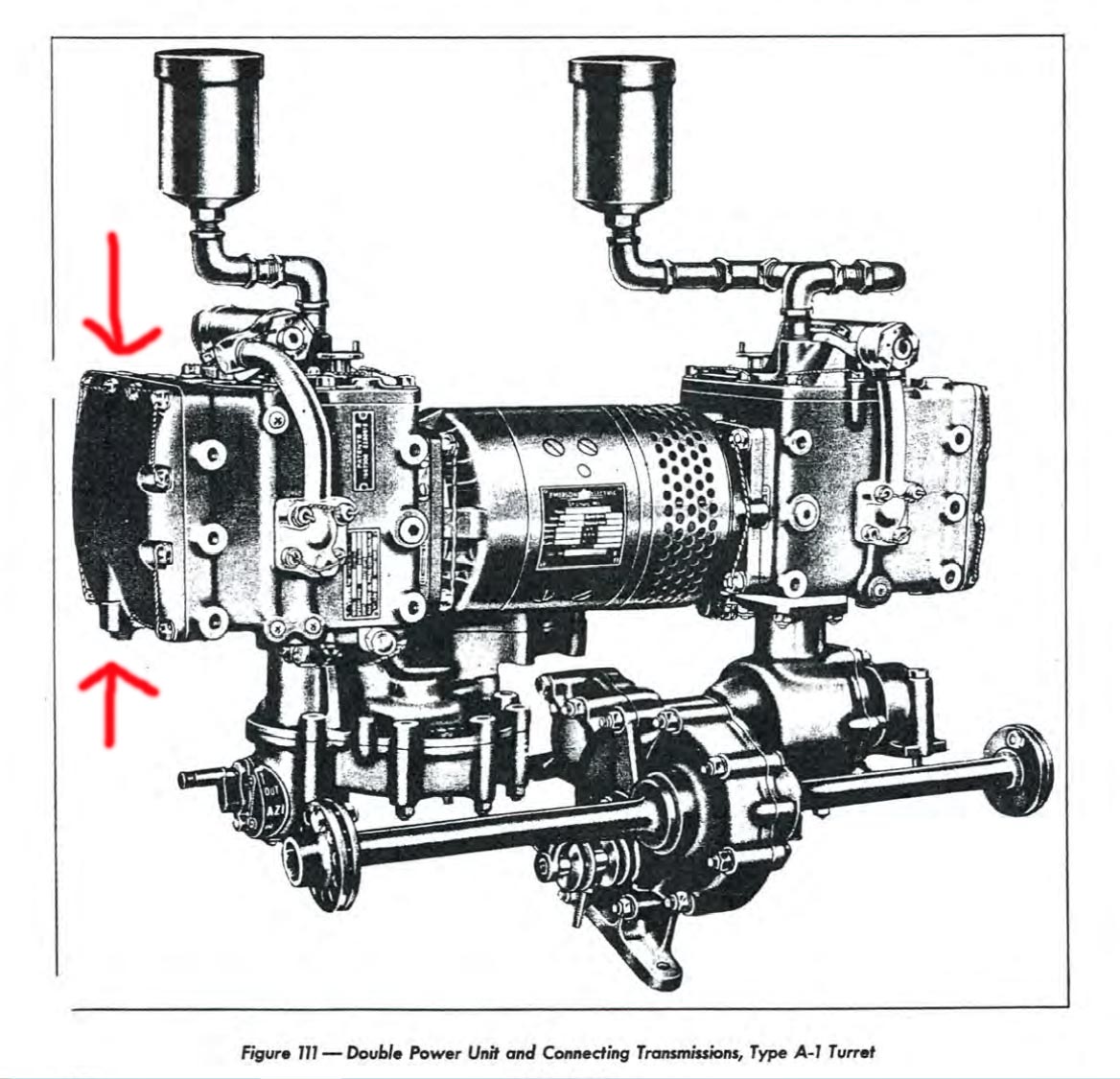
Out of stock |
|
Click on pictures to enlarge



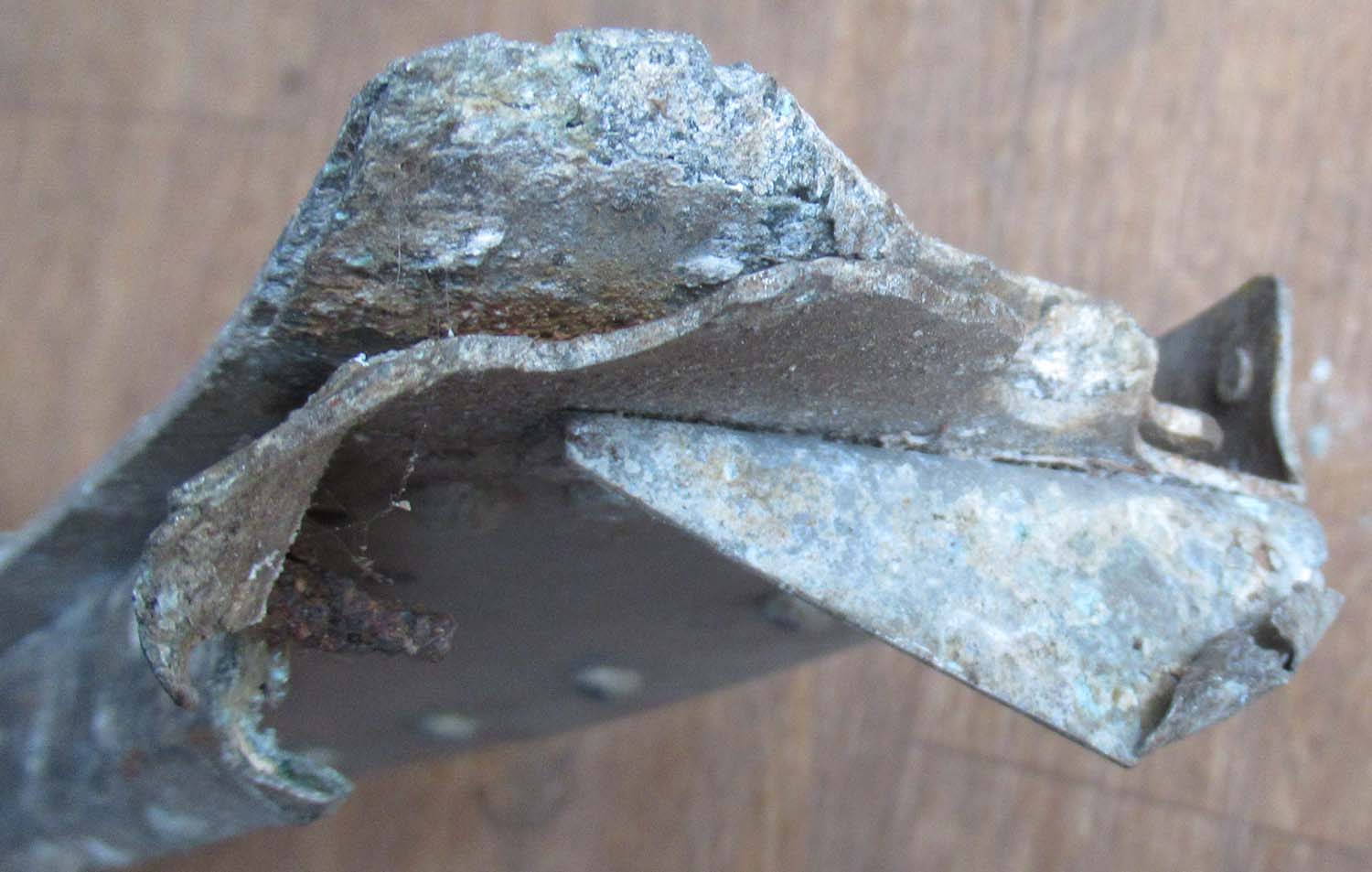 |
B17 Hustling Sue
station 2 airframe part (nos 5 pg 10
Relics )
This is a peace from station 2
of the B17 Hustling Sue approximately 70 cm/ 28 inches wide.
You can see its location by expanding the drawing shown under by
clicking on the drawing.
Click on pictures to enlarge
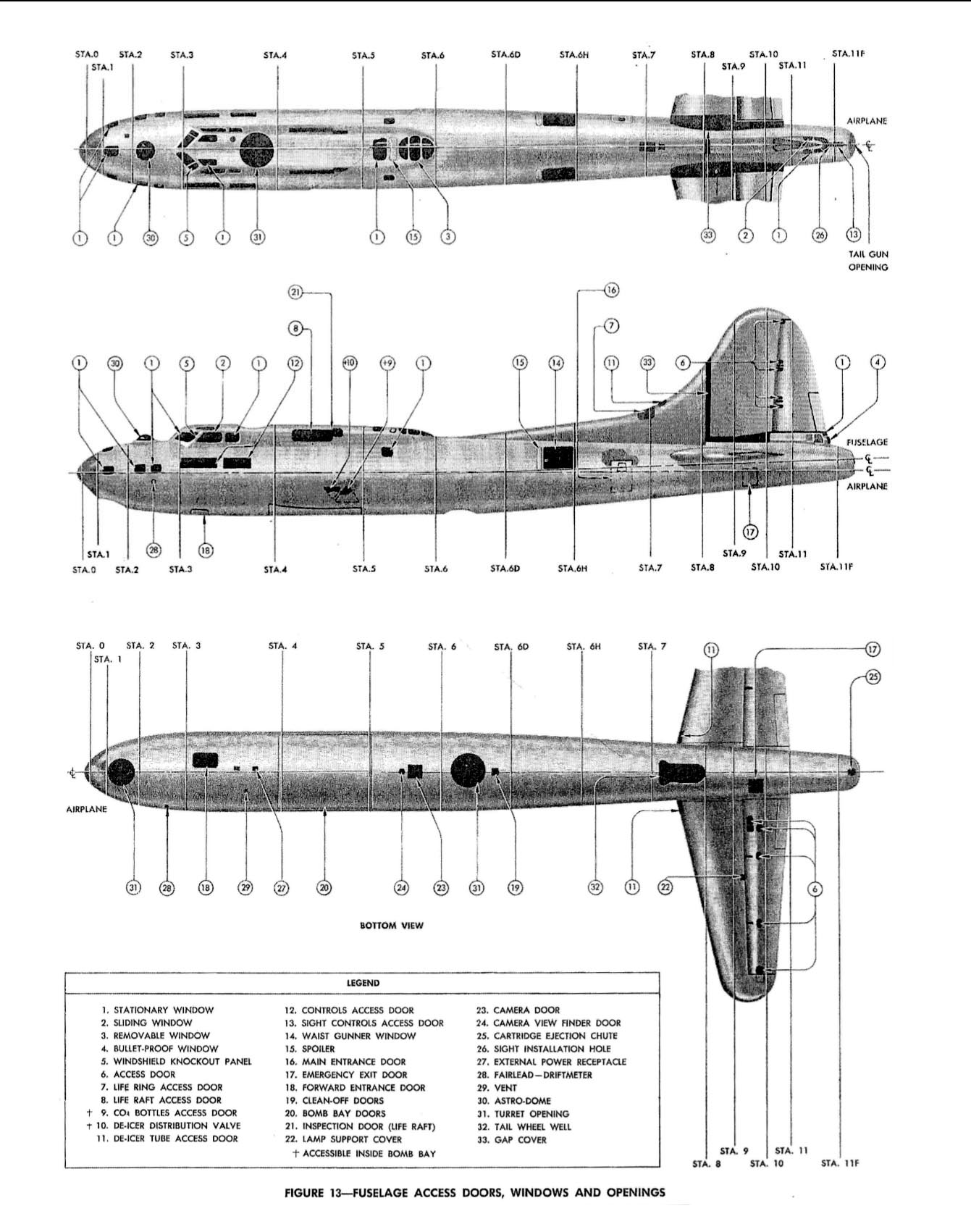
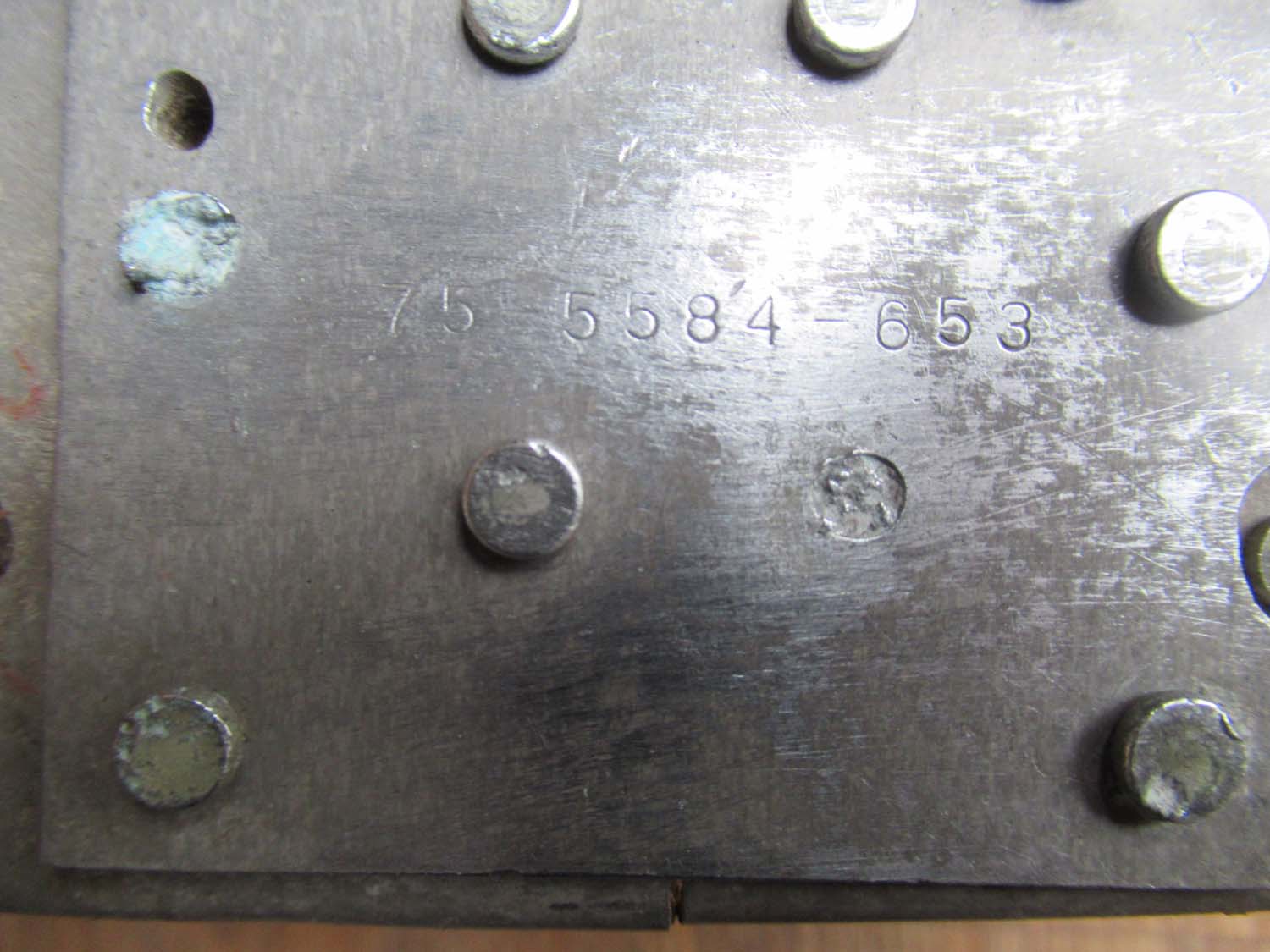
Out of stock
|
|
|


|
|
